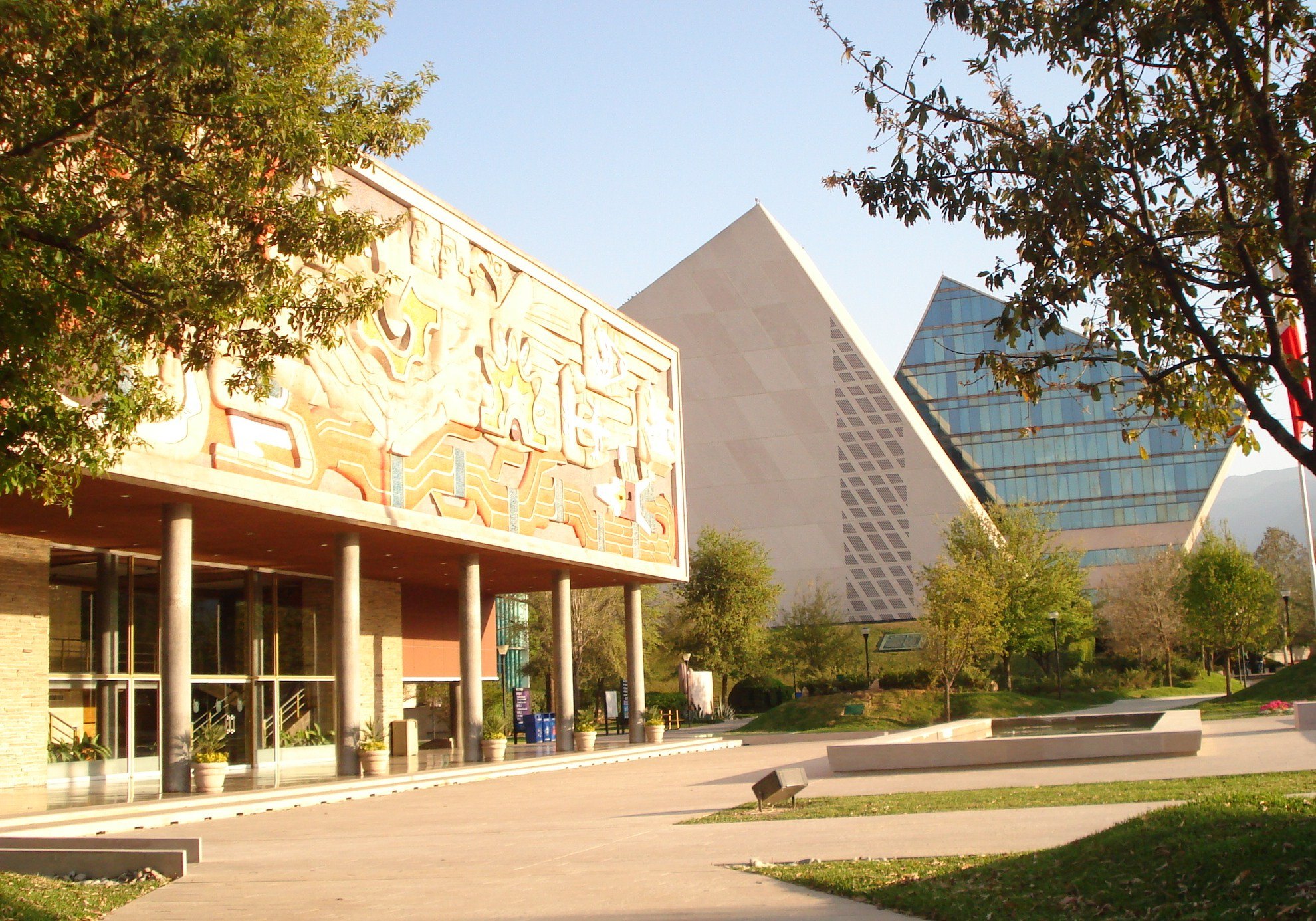
WUN welcomes new member Tecnológico de Monterrey
WUN expands its global network to Latin America.

CUHK Appoints New Vice-Chancellor and President
Prof. Rocky S. Tuan, an eminent biomedical scientist from the University of Pittsburgh, will become the eighth Vice-Chancellor of CUHK effective 1 January 2018, succeeding Prof. Joseph Sung.

Research strengths secure global challenge funding
Two research projects led by the University of Leeds have been awarded £16million to build resilience in African businesses and communities.

Research Development Fund 2017 Round is open
The Research Development Fund 2017 Round is open.

Developing a Role for the Arts
There’s increasing recognition within science, engineering and medicine that arts and humanities involvement in development projects is essential,

CUHK to Host ACU Summer School 2018
CUHK has been selected to play host to the next Association of Commonwealth Universities Summer School on 1-9 July 2018.
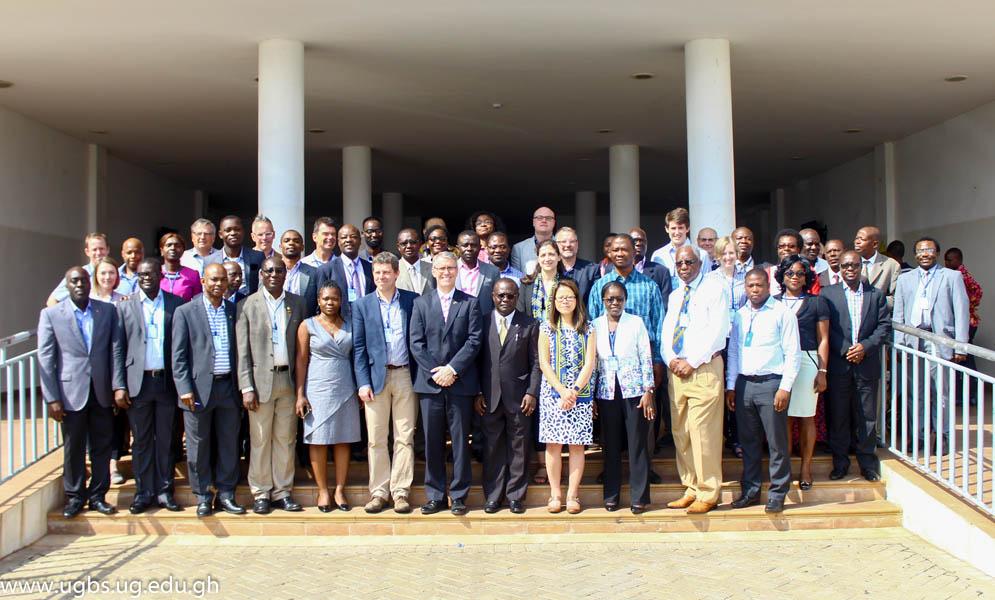
WUN Global Africa Group Inaugural Strategic Workshop
The World Universities Network Global Africa Group launched its inaugural Strategic Research Workshop, hosted by the University of Ghana, in July 2017.
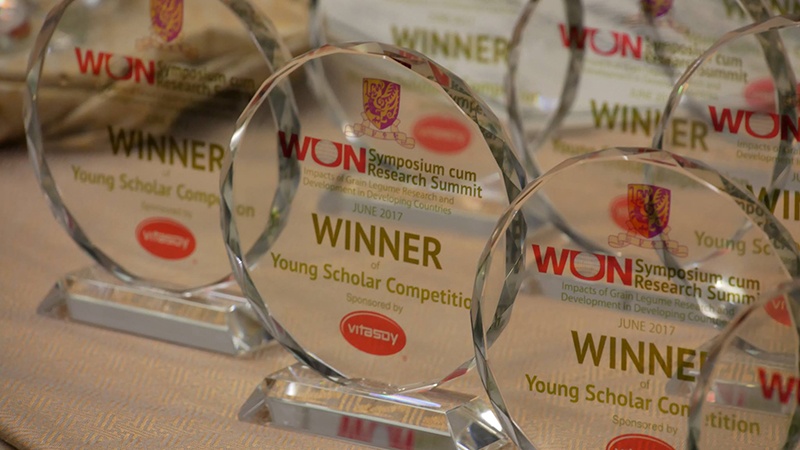
CUHK Legumes Symposium Facilitates Collaboration between Young and Senior Researchers
The WUN Symposium cum Research Summit on Impacts of Grain Legume Research and Development in Developing Countries held at CUHK on 8-17 June 2017 brought together over 100 participants from six continents to exchange knowledge and ideas on the development of legumes research.
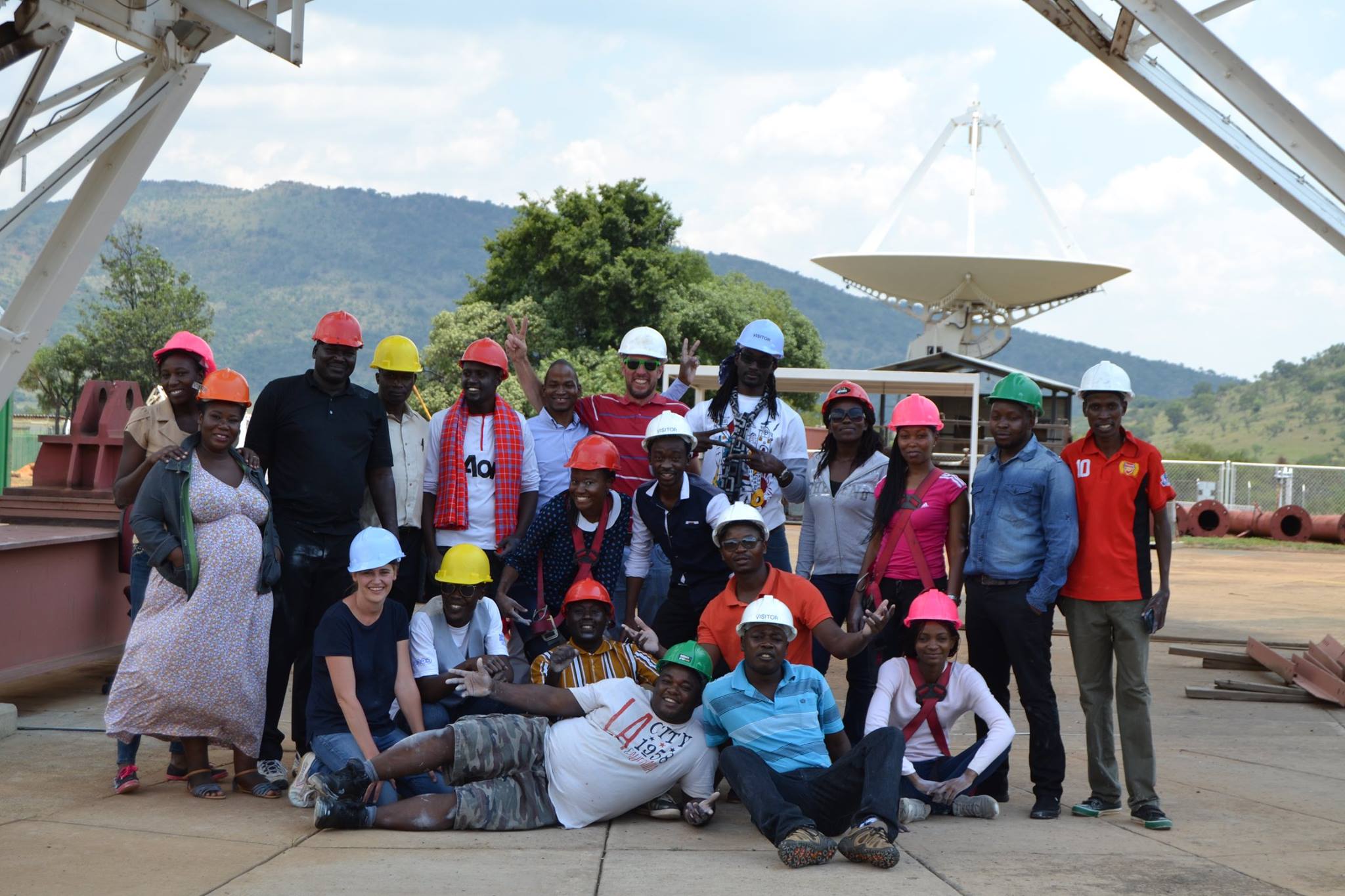
Space For Development
Eight countries across Sub-Saharan Africa are set to take part in the world’s largest ever radio astronomy initiative – and the University of Leeds is spearheading a project aimed at ensuring they can make the most of this opportunity.
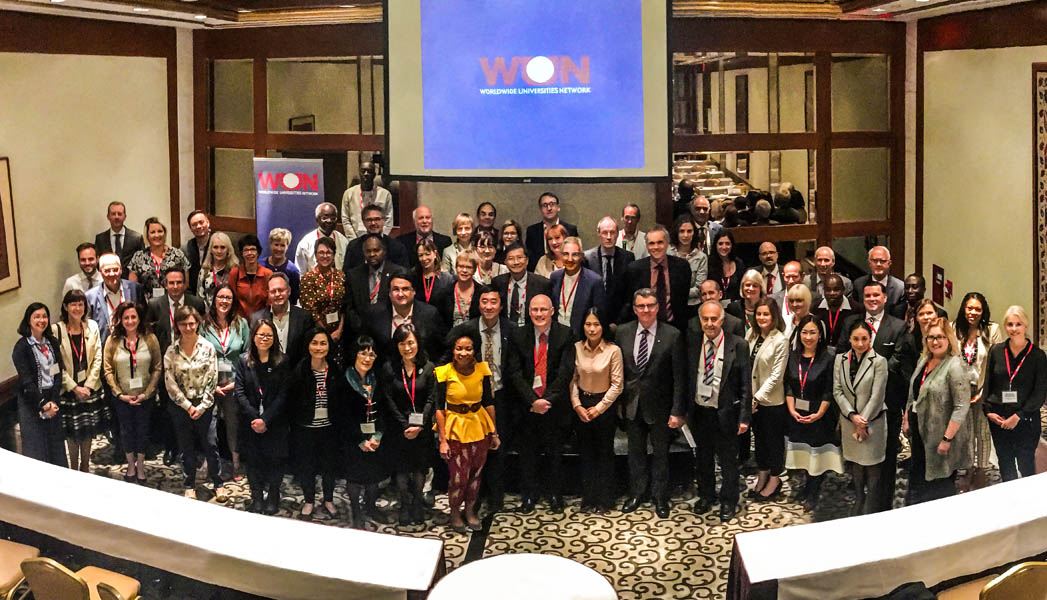
WUN Conference and AGM 2017
This year’s AGM provided a key opportunity for all stakeholders to form a fit-for-purpose strategic plan to carry WUN into the next decade.

University of Cape Town Vice-Chancellor’s message on values, free speech and silencing
5 May 2017 Dear colleagues and studentsVC Desk: UCT values, free speech and silencing It feels to many of us that in the last year, the space for free speech
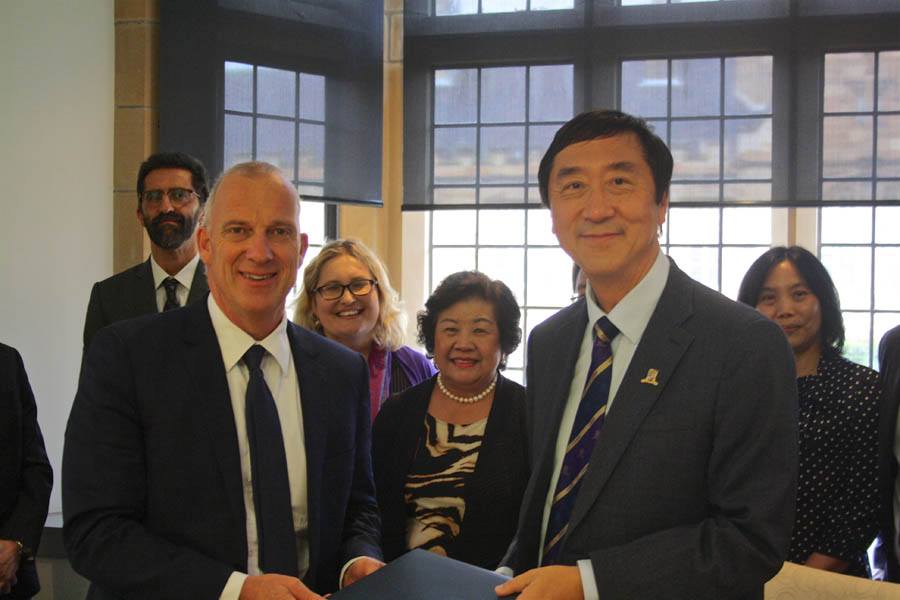
CUHK and the University of Sydney Join Hands to Advance Integrative Medicine Research
CUHK and the University of Sydney established a joint laboratory to share the best of information technology, data analysis, and clinical research for the advancement of evidence-based integrative medicine.
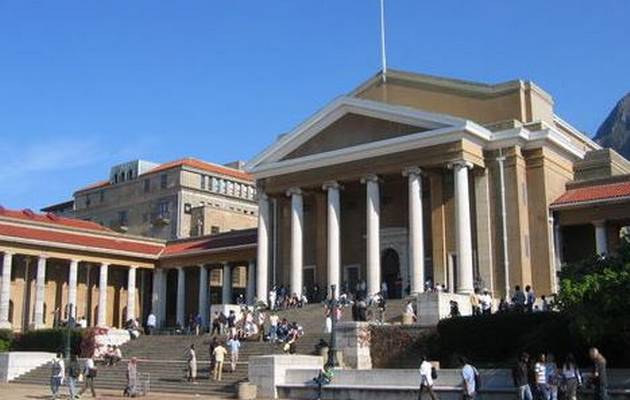
UCT calls on all to commit to finding solutions to the current situation in South Africa
A statement from the Senior Leadership Group of the University of Cape Town.
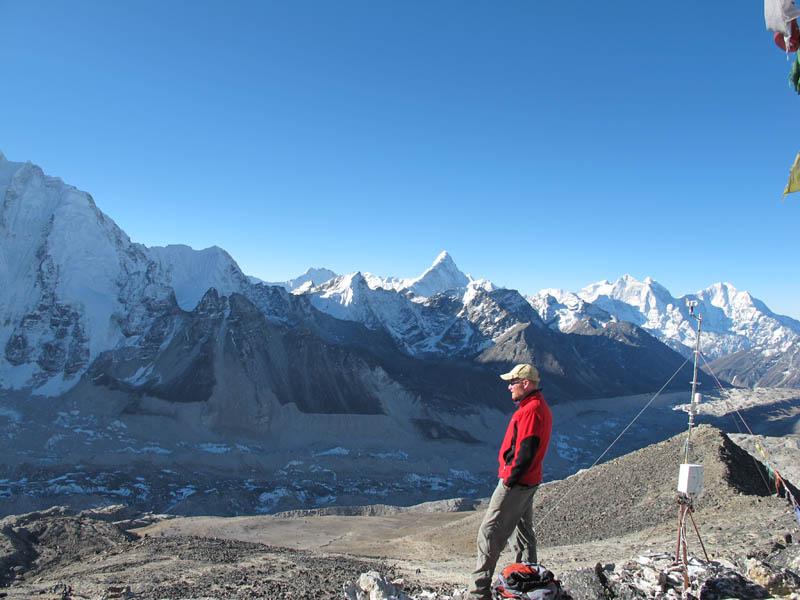
Drilling down into the mysteries of the world’s highest glacier
Climate change scientists are heading to the Himalayas in a bid to become the first to successfully drill through the world’s highest glacier. An international research team will spend up
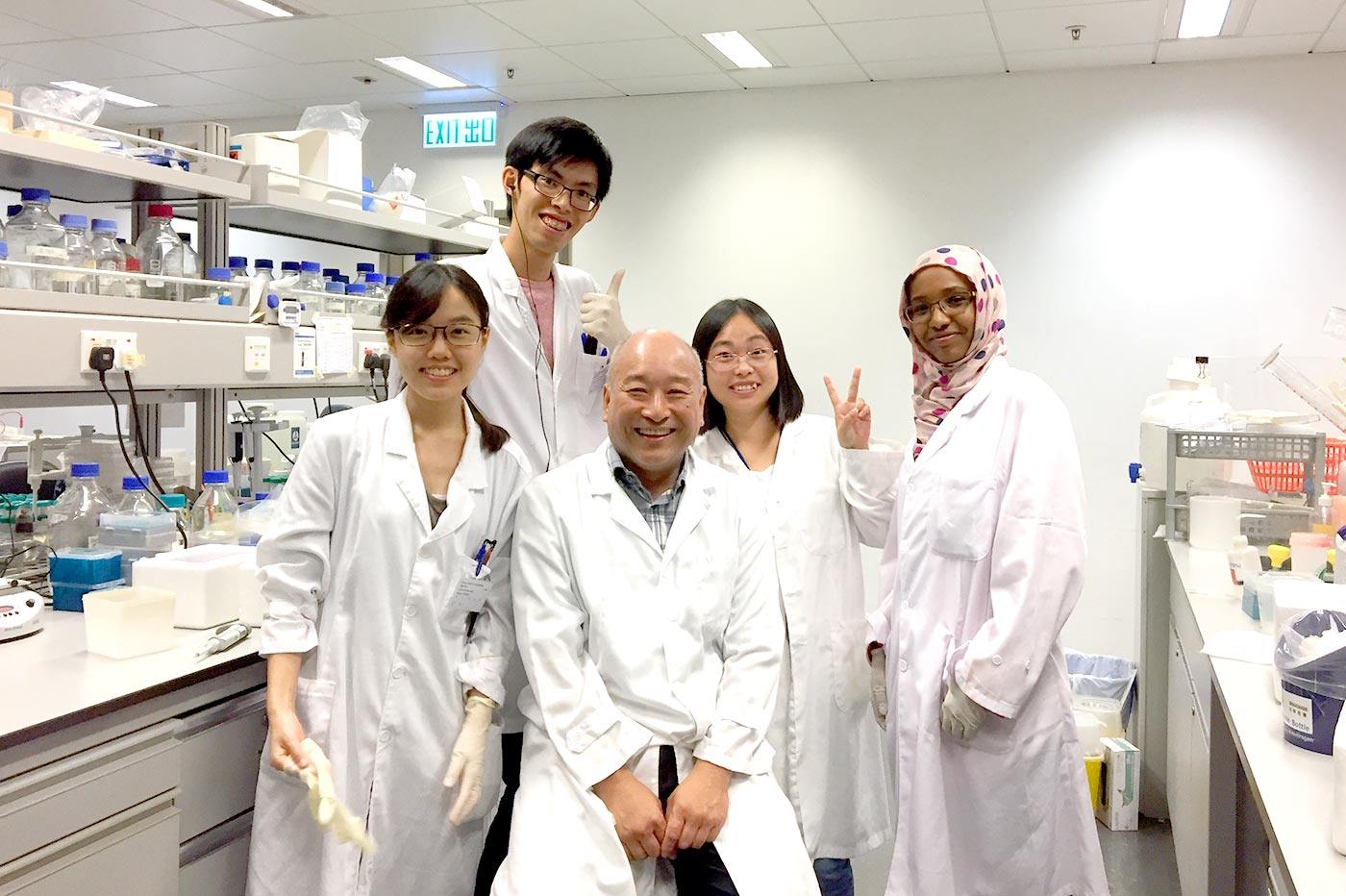
CUHK-Southampton Joint Laboratory for Stem Cell and Regenerative Medicine Formed
CUHK and the University of Southampton formed a joint laboratory to conduct high impact research in the areas of stem cells, developmental biology and regenerative medicine.

Brexit: a chance for universities to leave their ivory towers behind
Professor Dr Martin Paul reflects on the consequences of Brexit for higher education.
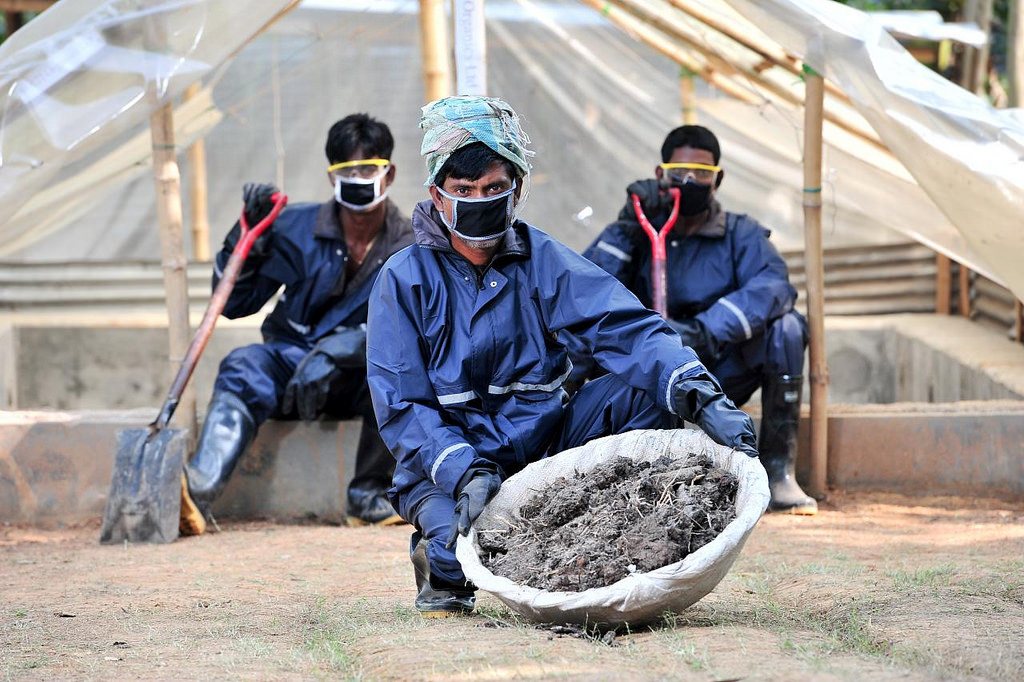
Spreading the cost to transform sanitation
Developing countries struggling to cope with huge volumes of human waste may finally get some relief – and a new business opportunity.
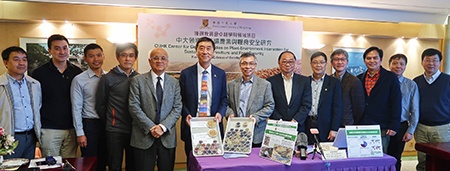
CUHK Launches New AoE Centre on Plant-Environment Interaction
The Chinese University of Hong Kong has been awarded some HK$8m from the Hong Kong University Grants Committee to lead the AoE Centre for Genomic Studies on Plant-Environment Interaction for Sustainable Agriculture and Food Security from 2017 to 2025. The new AoE Centre will develop new plant and agricultural technology with a view to striking a better balance between sustainable agriculture and food security.

How WUN builds bridges over BREXIT
Objectives, discussion and outcomes of the WUN “Bridges over BREXIT” Workshop, attended by 40 invited experts from universities, government, business, agencies and media.
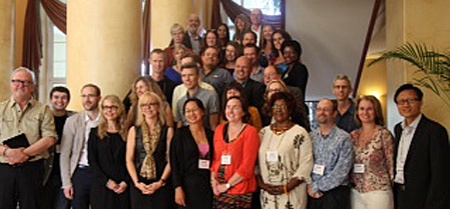
Research in Focus: in-FLAME
Research in Focus: in-FLAME

‘I feel truly ashamed.’ Keith Burnett on Theresa May’s trade mission to India
Sir Keith Burnett reflects on what he learned about international students while in India with the UK prime minister.
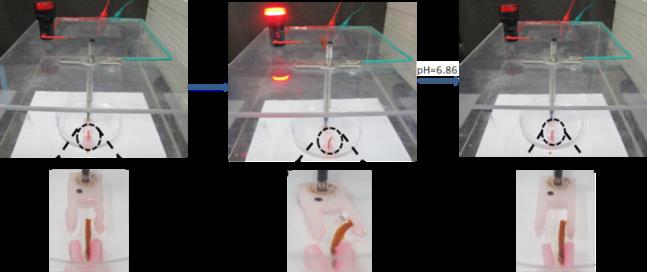
Novel Glucose-Responsive Hydrogels for Glucose Detection
WUN supported research group has introduced novel Glucose-Responsive Hydrogels for Glucose Detection.

CUHK Develops First Local Platform for Urban Big Data Integration & Analysis
The Institute of Future Cities at CUHK has developed the first platform in Hong Kong for integrating and analysing urban big data in an effort to help Hong Kong to become a smart city in the areas of personalized health monitoring, urban planning, air quality, and social care.

2016 Research Development Fund
WUN announces the results of the 2016 Research Development Fund round.
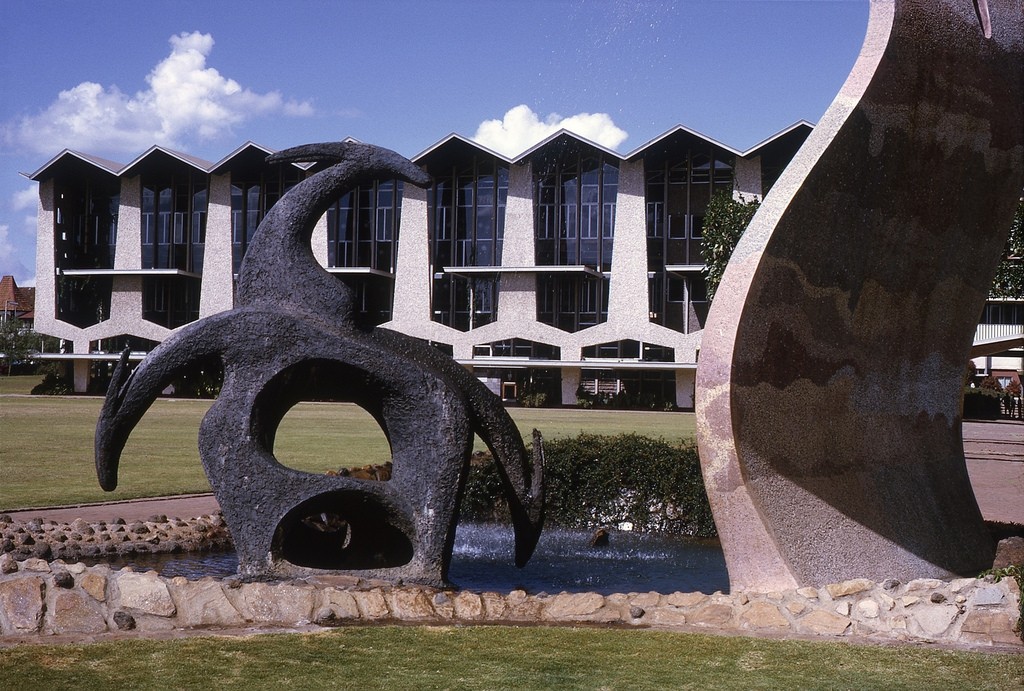
WUN welcomes new member the University of Nairobi
WUN is delighted to announce that the University of Nairobi (UoN) has joined the Worldwide Universities Network. We welcome Vice Chancellor Professor Peter Mbithi and his colleagues to the WUN Board, research teams and programs. The Worldwide Universities Network looks forward to a valuable and productive partnership.

COP22 WUN panel explains tie between climate resiliency and natural disasters
“Loss and damage in the Paris Agreement context is about much more than just environmental damage. It is a matter of losing a community’s dignity for many”, said Prof Petra Tschakert during a COP22 side event hosted by the Worldwide University Network.

Hidden Migration Symposium in Bristol, 9-10 March 2017
International symposium involving MDGT group to be held in Bristol in March 2017.

A science of loss
Opinion & comment The following article, relevant to policy in climate change, was written by WUN researchers Jon Barnett and Petra Tschakert and two others, and appeared in Nature Climate Change
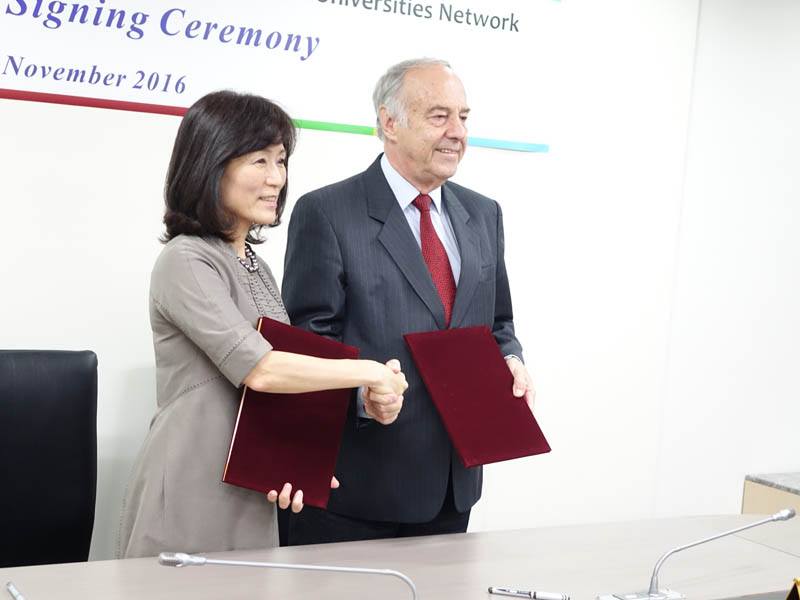
WUN welcomes new member National Cheng Kung University
We are delighted to announce that National Cheng Kung University (NCKU) has joined the Worldwide Universities Network.

test
nnnn

New study on asthma provides strong argument for focusing on the environment of young men
“It has been very difficult to get these [results] published, because the concept of adolescent boys, having impact on their offspring born years later is new and editors could not believe our findings. I think that the WUN can inspire further research to support our findings and convey the new concepts to public health policy makers…”
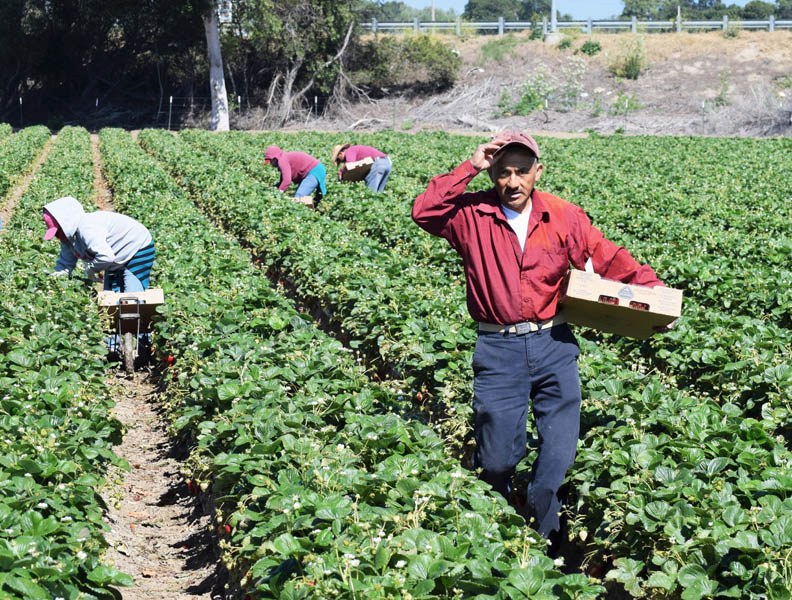
WUN project adresses migrants’ lack of labour and social rights
Migration governance continues to fail in several key areas such as labour rights, employment opportunities and social protection.

China OPERA Workshop premieres in Chongqing
On 12 November 2016

CUHK Invents Asymmetric Supercapacitors and New Flow Batteries
CUHK engineers have invented the most efficient asymmetric supercapacitors and the flow batteries with the highest volumetric capacity reported to date.

NERC grant for Himalayan Climate Change project
Congratulations to the WUN international team that has achieved this highly competitive support.

CUHK Ranked Top Innovative University in Hong Kong
CUHK was ranked the most innovative university in Hong Kong and 21st in the Asia-Pacific region by the latest “Reuters Top 75: Asia’s Most Innovative Universities”.
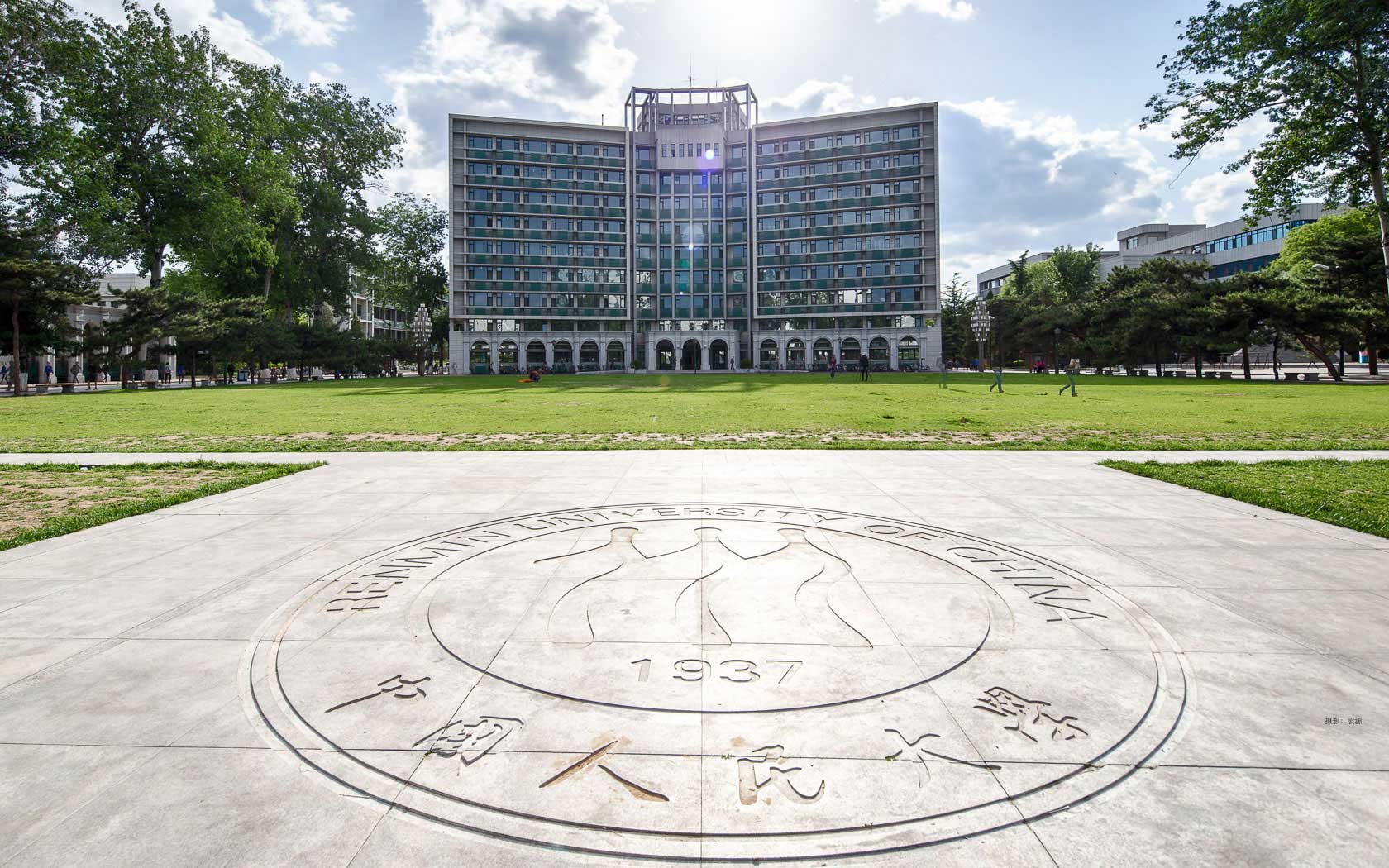
WUN welcomes new member Renmin University of China
We are delighted to announce that Renmin University has joined the Worldwide Universities Network.

Food security needs social-science input
The Climate- Resilient Open Partnership for Food Security project (CROP-FS) published in Nature magazine.
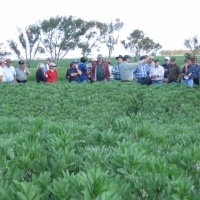
WUN Legumes Group publishes in Nature Plants
Multi-disciplinary team from the Worldwide Universities Network (WUN) publishes in Nature Plants.
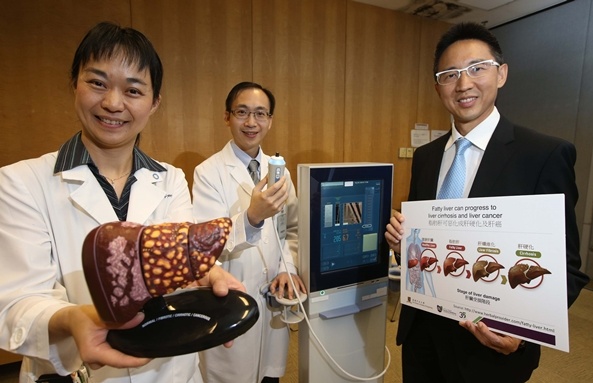
CUHK Conducts World’s Largest Study on Epidemiology of NAFLD in Diabetic Patients
CUHK has conducted the world’s largest study that examines the prevalence and progression of non-alcoholic fatty liver disease (NAFLD) in diabetic patients, in order to determine whether screening should be recommended.
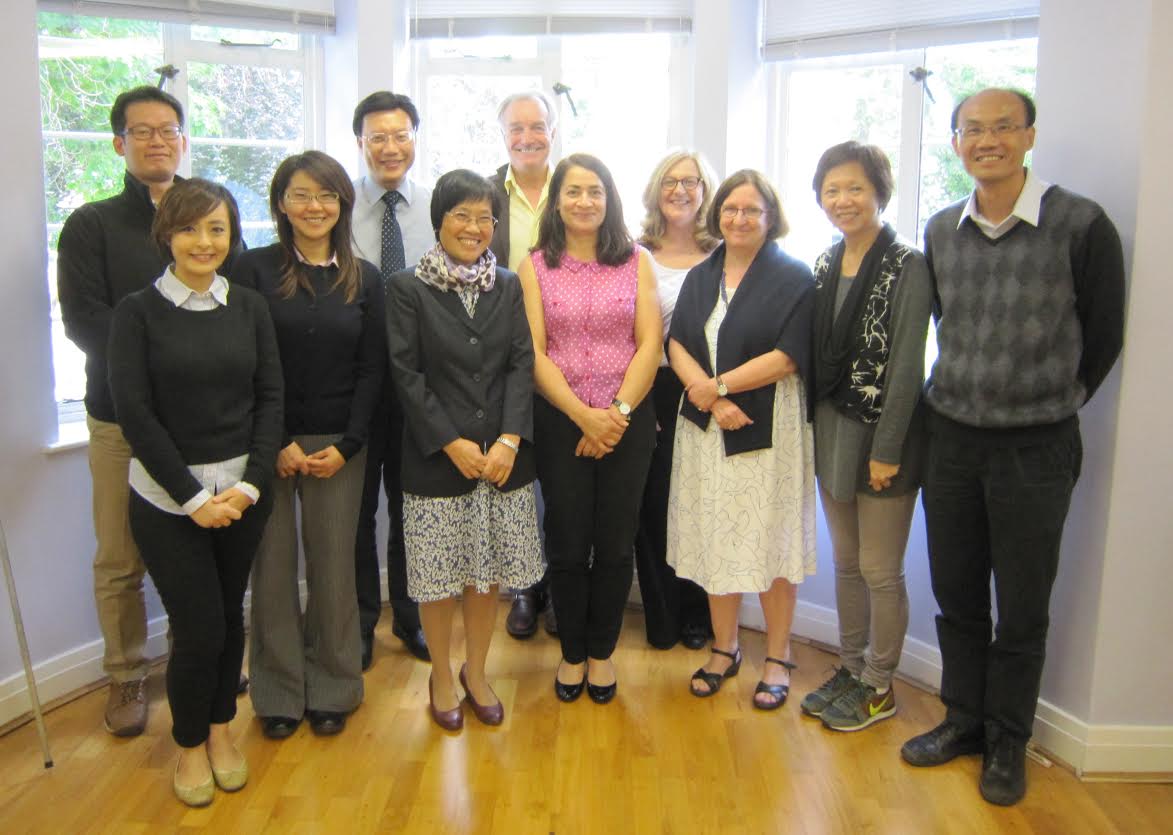
WUN facilitates closer cooperation between University of Bristol and Chinese University of Hong Kong
A delegation of senior academics from the Chinese University of Hong Kong (CUHK) led by Professor Steven Ngai (Departmental Chairperson) from the Department of Social Work, made an important visit

CUHK Recommends Best Practices and Strategies for Low-carbon Urban Transport System
The Institute of Future Cities at CUHK has conducted a comprehensive research on low-carbon transport practices and policies with the objective of formulating a strategy for Hong Kong’s future low-carbon transport system initiatives.
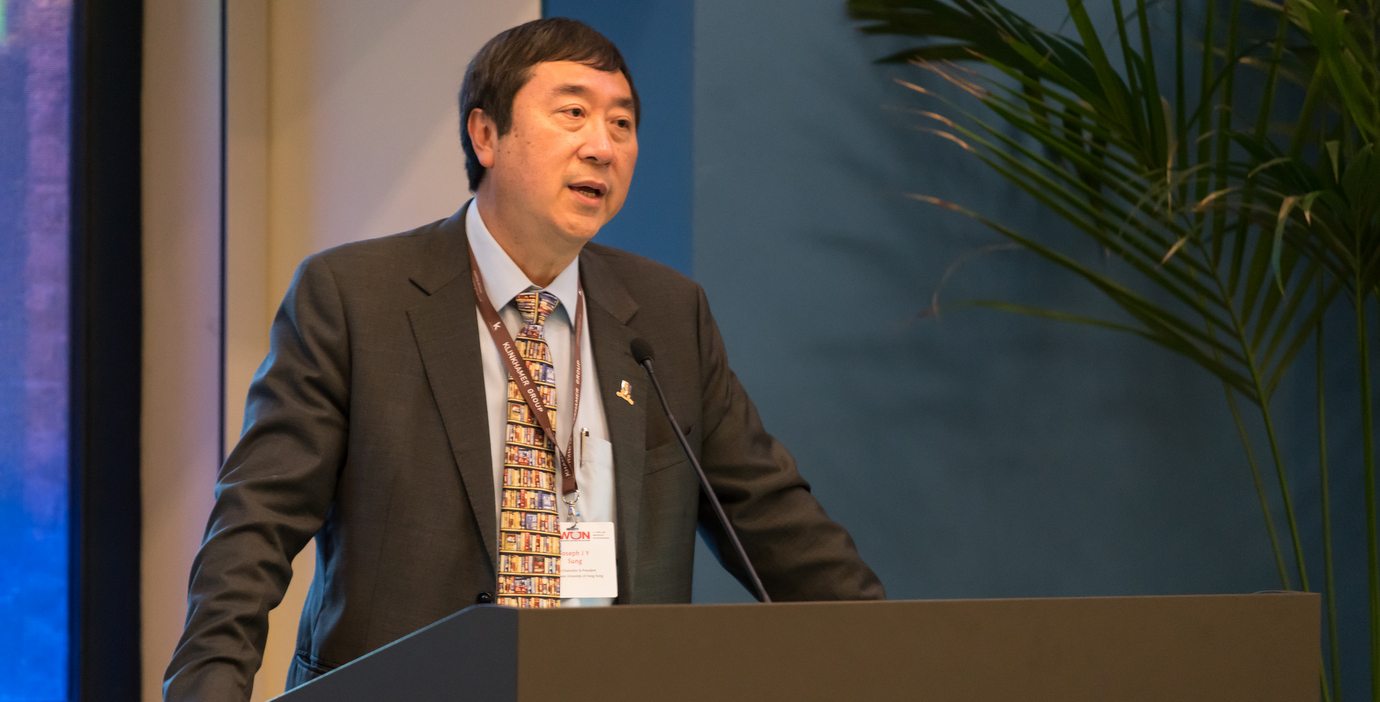
CUHK to Chair the Worldwide Universities Network
Prof. Joseph J.Y. Sung, Vice-Chancellor and President of CUHK, recently took the helm of the Worldwide Universities Network (WUN) as Chair of its Partnership Board, a role elected from among the presidents of member universities.

Global innovation networks: The anatomy of change
Higher education and research are no longer privileged pursuits pursued by high priests in isolated ivory towers. That history and stereotype, itself only partly true, has given way to the increasing catalysis of change. The change is fuelled by rapid development and competition, and by a concert of factors and global dynamics affecting the international research universities that are the subject of this discussion.
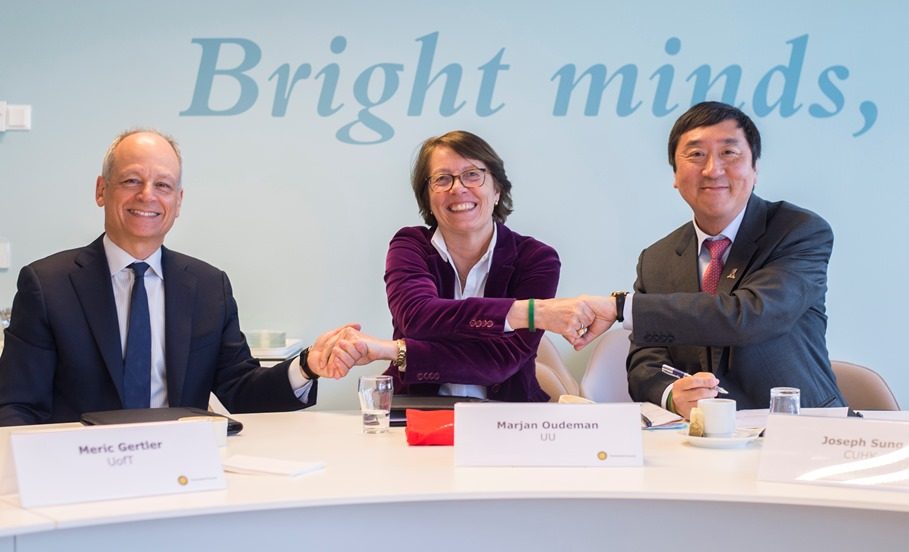
A Triumvirate from Three Continents: CUHK partners with University of Toronto and Utrecht University
CUHK forms tri-continental partnership with the University of Toronto and Utrecht University for innovative solutions on urban issues

Dinosaur families chose to exit Europe
Researchers have used ‘network theory’ for the first time to visually depict the movement of dinosaurs around the world during the Mesozoic Era – including a curious exodus from Europe. The research, led by the University of Leeds and published in the Journal of Biogeography, also reaffirms previous studies that have found that dinosaurs continued to migrate to all parts of the world after the ‘supercontinent’ Pangaea split into land masses that are separated by oceans.
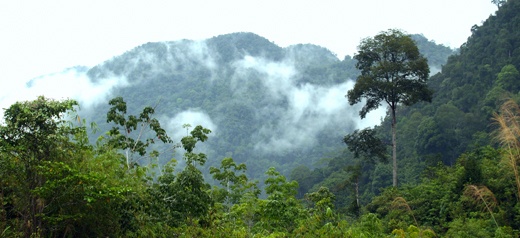
Animals’ role in mitigating climate change varies across forests
Large animals play a key role in mitigating climate change in tropical forests by spreading the seeds of large trees that have a high capacity to store carbon, new research has found. The research, co-led by the University of Leeds and published in the journal Nature Communications, sheds important new light on the role seed dispersal by animals plays in mitigating climate change, and how this role can vary in tropical forests across the world.
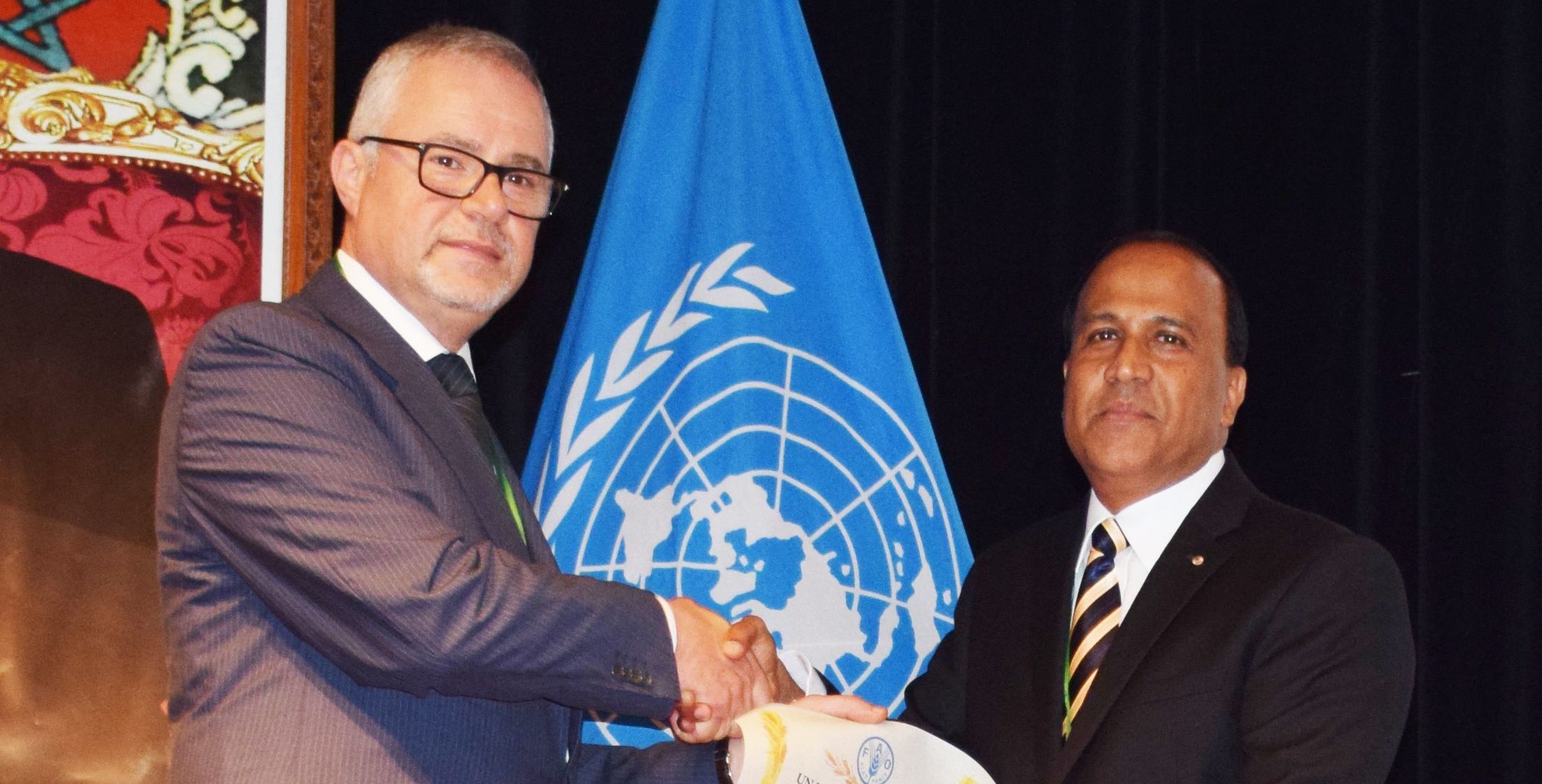
UWA Professor named FAO Special Ambassador for Pulses
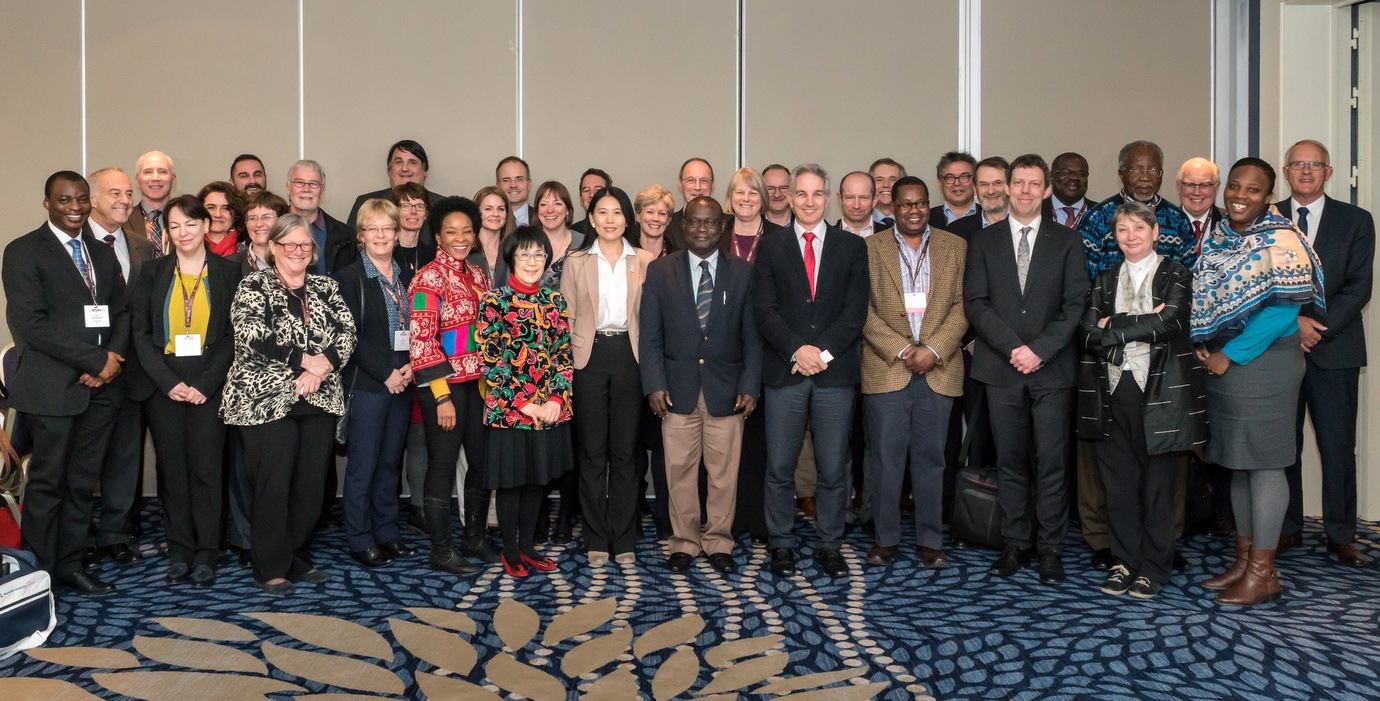
Bridging Policy and Academia at the Sixth Annual Presidents Forum
On 7 April, WUN Presidents, as well as distinguished representatives from the European Parliament, European Commission, European Research Council and national embassies, convened in Brussels for the sixth annual WUN Presidents Forum. Titled ‘Open Doors: European Opportunities in Research & Education,’ the Forum took place alongside the WUN Conference and AGM 2016.
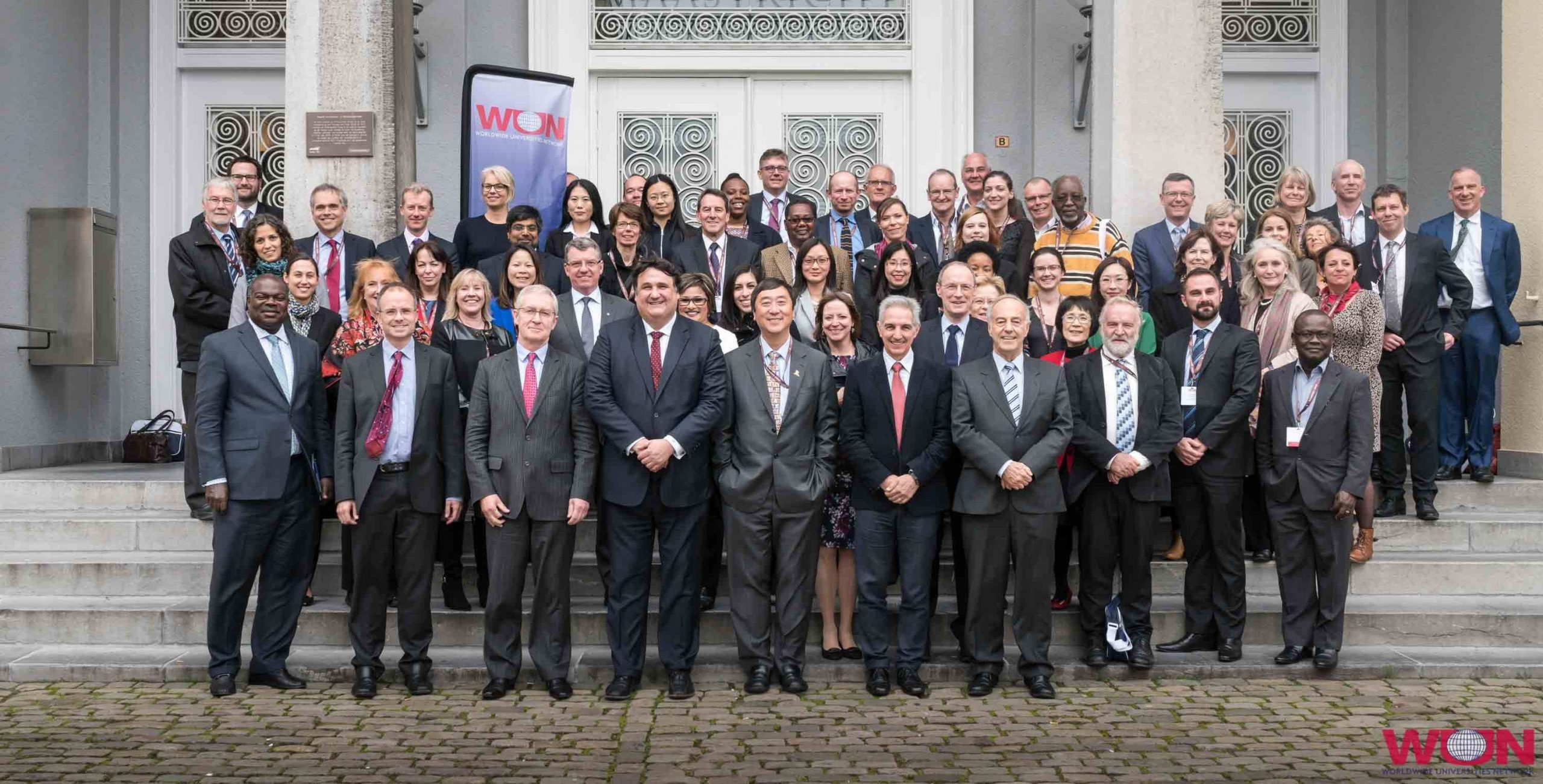
WUN Conference & AGM 2016 Takes Place at Maastricht University
From 2-7 April, close to 400 academics and university leaders from around the world participated in the WUN Conference & AGM 2016, hosted by Maastricht University.
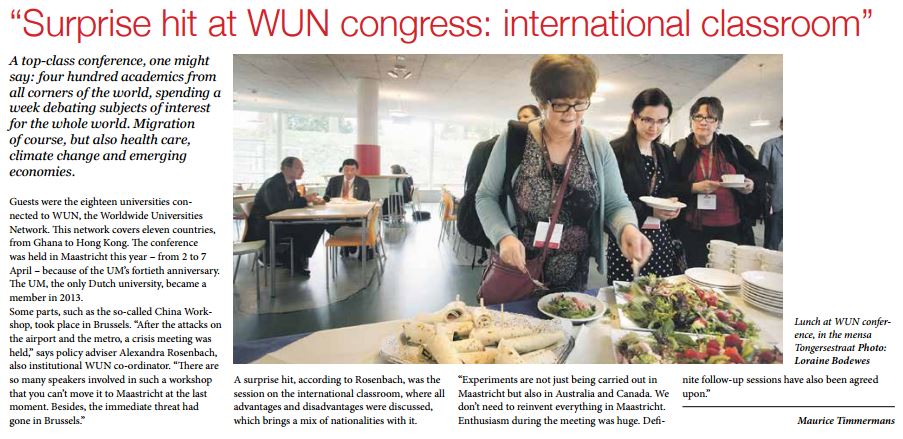
Surprise hit at WUN congress: international classroom
A top-class conference, one might say: four hundred academics from all corners of the world, spending a week debating subjects of interest for the whole world. Migration of course, but also health care, climate change and emerging economies.
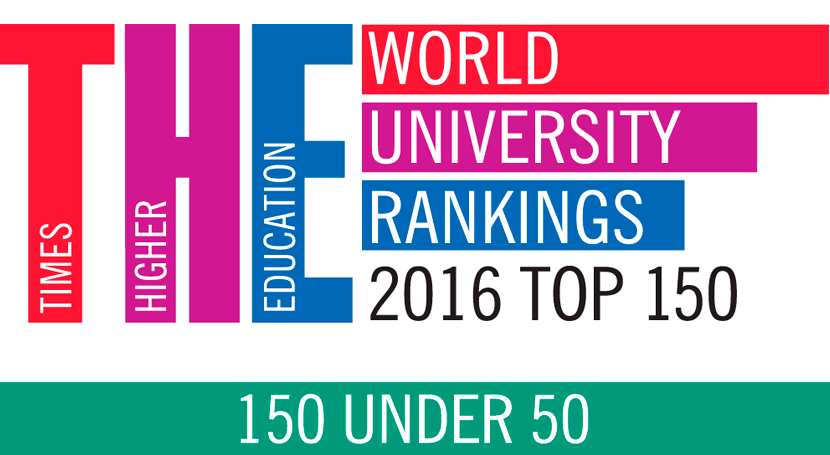
Maastricht University Ranked as World’s Fourth Best Young University
Maastricht University (UM) has climbed to the fourth place in the Times Higher Education (THE) 150 Under 50 ranking for best young universities in the world. After maintaining the sixth place since 2013 in the former THE 100 under 50, this fourth place can be considered as a compliment and congratulations in Maastricht Universities 40th anniversary year. The list has been published at the Young Universities Summit in Barcelona on April 6th.

The Sixth Annual WUN Presidents Forum to Convene in Brussels
On 7 April, WUN Presidents, as well as distinguished representatives from the European Parliament, European Commission and European Research Council, will convene in Brussels for the sixth annual Presidents Forum.
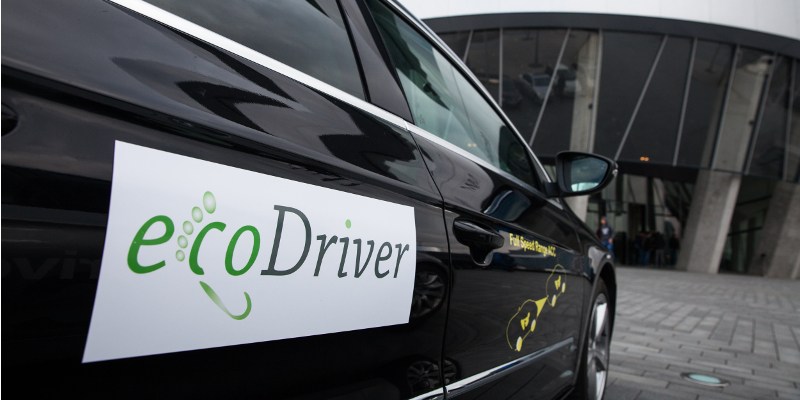
Cutting fuel costs and CO2 emissions
Cars of the future which advise how to drive more safely and economically could bring significant cuts in fuel consumption and emissions. Eco-driving systems offer visual guidance to drivers, usually built in to satellite navigation systems or via smartphone apps. The systems are not yet widely available, but manufacturers are looking at installing them in their next generation of cars.The ecoDriver project, led by the Institute for Transport Studies at Leeds with industry partners including BMW, Daimler, CRF (Fiat-Chrysler) and TomTom Telematics, showed that drivers of cars which had such systems installed saved an average of 4.2% in fuel and CO2 emissions, with an even higher saving of 5.8% on rural roads.
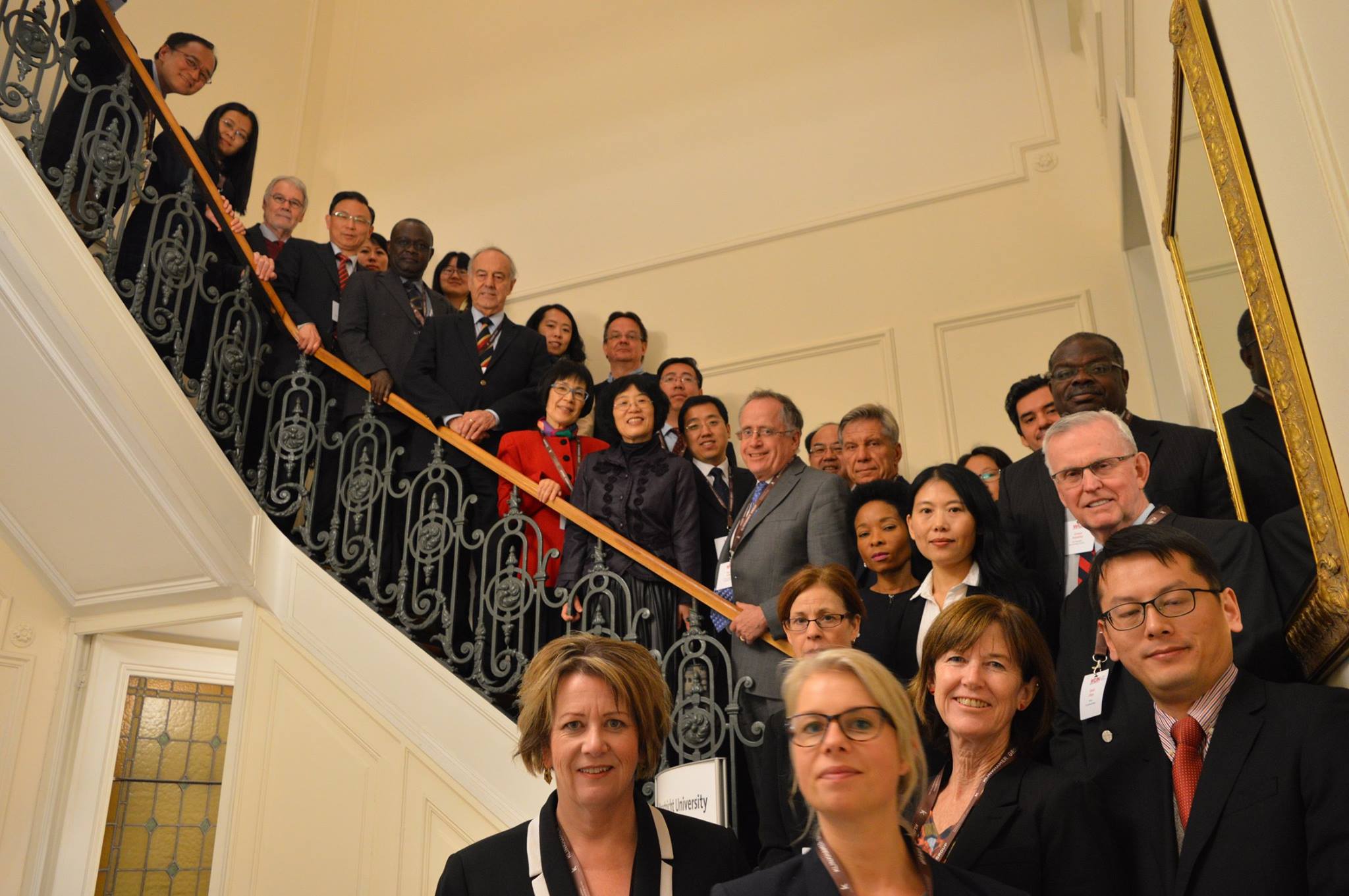
Building Bridges Between China and the World
On 4 April, # international researchers came together at the second WUN China FDI Workshop to examine the progress of President Xi Jinping’s Belt and Road Initiative, which is designed to build knowledge and innovation partnerships and accelerate business development.
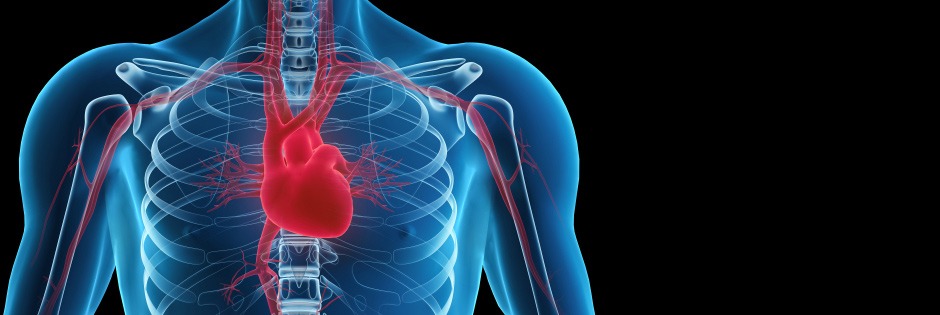
New study finds vitamin D3 improves heart function
A daily dose of vitamin D3 improves heart function in people with chronic heart failure, a five-year University of Leeds research project has found. Dr Klaus Witte, from the School of Medicine and Consultant Cardiologist at Leeds Teaching Hospitals NHS Trust, led the study, known as VINDICATE. He said: “This is a significant breakthrough for patients. It is the first evidence that vitamin D3 can improve heart function of people with heart muscle weakness – known as heart failure. These findings could make a significant difference to the care of heart failure patients.”
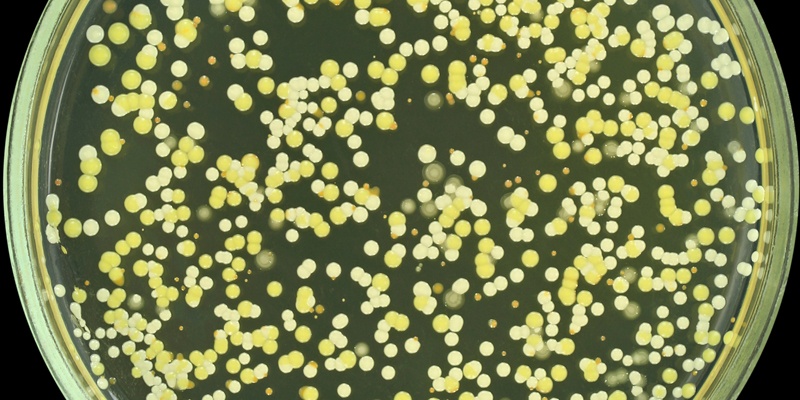
Unravelling the secret of antibiotic resistance
Scientists from the University of Leeds have solved a 25-year-old question about how a family of proteins allow bacteria to resist the effects of certain antibiotics. Proteins of the ABC-F protein family are a major source of antibiotic resistance in ‘superbugs’ such as Staphylococcus aureus, a group of bacteria that includes MRSA. The findings, published in the American Society for Microbiology journal mBio, provide the first direct evidence of how this family of proteins ‘protect’ the bacterial ribosome, the protein makers in cells, from being blocked by antibiotics.
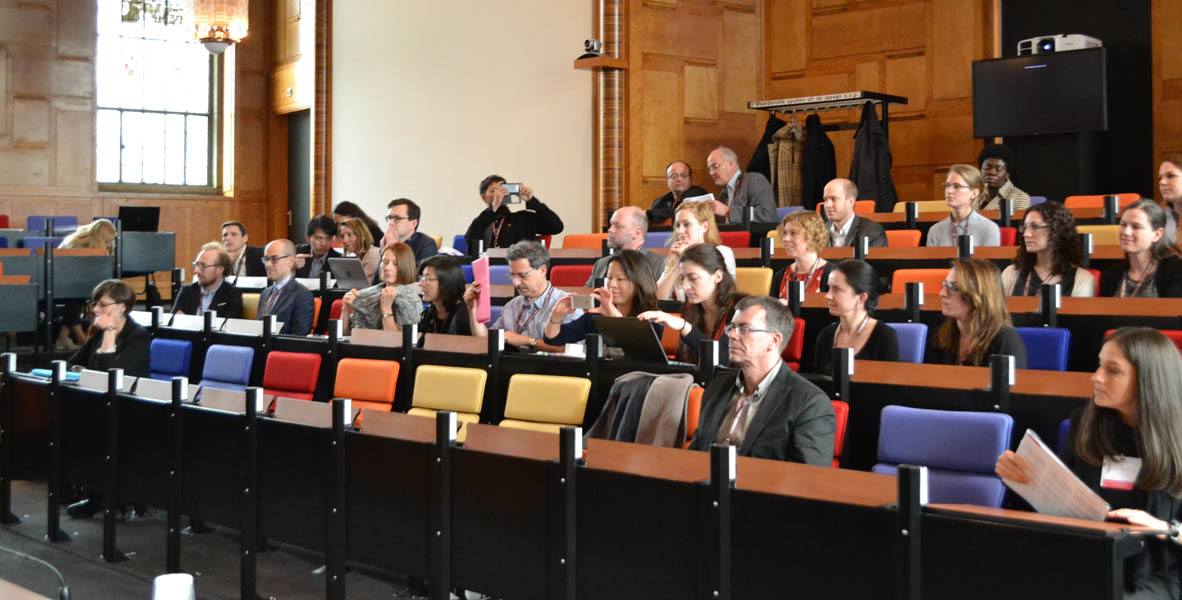
WUN Contributes to Global Policy Agenda in Maastricht
On 2-7 April, close to 400 academics and university leaders from around the world will descend on Maastricht for the WUN Conference & AGM 2016, hosted by Maastricht University.
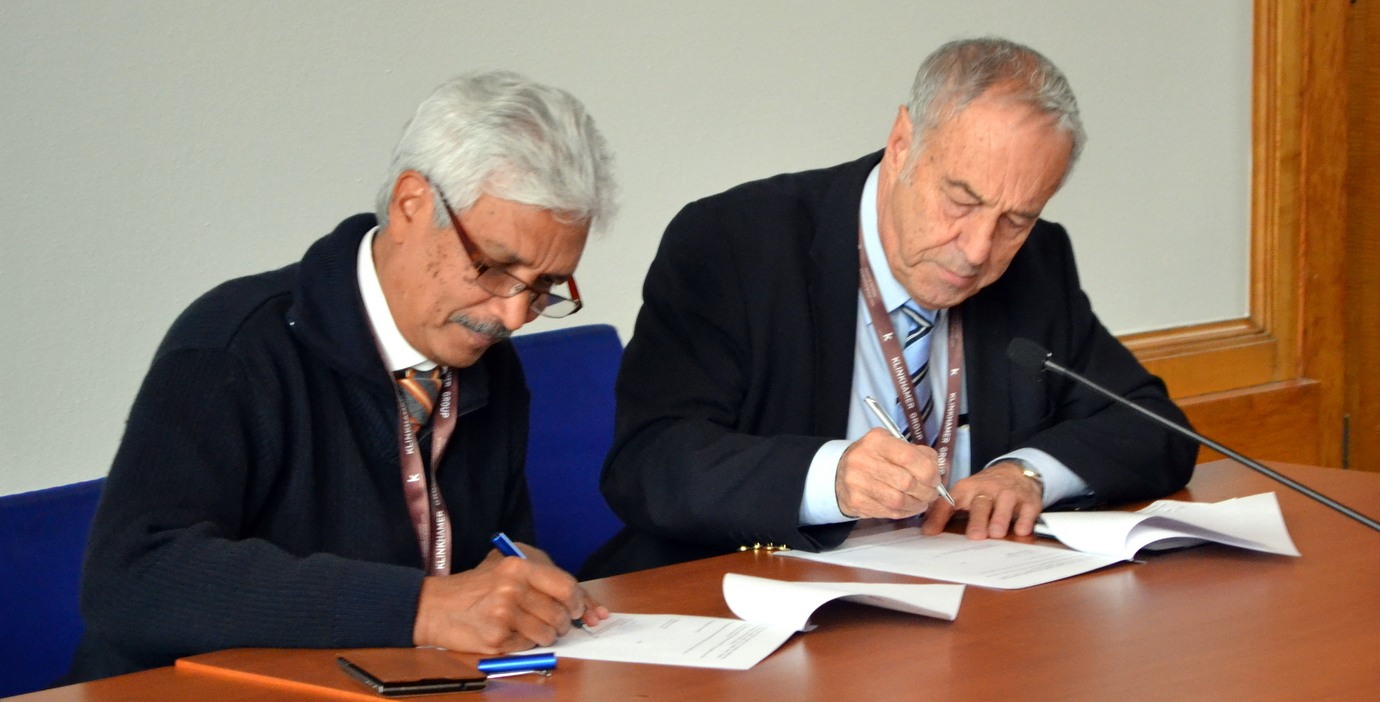
WUN Forms Strategic Alliance with International Organization for Migration (IOM)
On 2 April, the Worldwide Universities Network (WUN) and the Global Migration Data Analysis Centre in Berlin of the International Organization for Migration (IOM GMDAC) signed a collaboration agreement at the second WUN Migration Conference in Maastricht.

WUN Global ‘Air Sensors Everywhere’ Campaign Launched
Environmental health science researcher Richard Peltier at the University of Massachusetts Amherst, with others around the world, is launching a series of webinars and events for a Do-It-Yourself, citizen science campaign called “Air Sensors Everywhere.” It aims to bring small air pollution sensors to the developed and developing world “to empower people everywhere to use low-cost pollution sensors to reduce pollution-linked disease.”
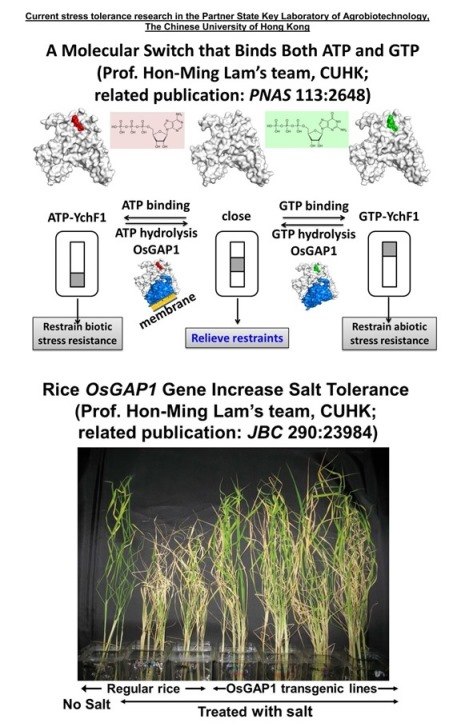
CUHK Uncovers Structure and Functions of the Rice YchF-type G Protein
Prof. Hon-Ming Lam, Director of the Centre for Soybean Research of the Partner State Key Laboratory of Agrobiotechnology at The Chinese University of Hong Kong, and his team have uncovered the structure and functions of the Rice YchF-type G Protein for the first time. The new findings help improve plants’ defense response and stress tolerance, and maintain a higher agricultural productivity under adverse conditions.

New Pro-Vice-Chancellor (International) appointment at the University of Leeds
Professor Hai-Sui Yu has been appointed as the University of Leeds’ first Pro-Vice-Chancellor (International).

‘Quantum dots’ light the way for new HIV and Ebola treatment
A research team led by the University of Leeds has observed for the first time how HIV and Ebola viruses attach to cells to spread infection. The findings, published in the journal Angewandte Chemie, suggest a new way of treating these viruses: instead of destroying the pathogens, introduce a block on how they interact with cells.
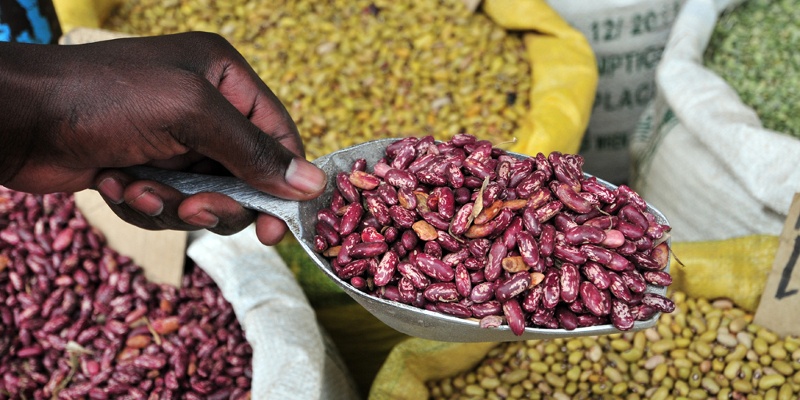
Urgent need to transform key food producing regions in Africa
Agriculture in parts of sub-Saharan Africa must undergo significant transformation if it is to continue to produce key food crops. A new study, published in Nature Climate Change, shows that maize, beans and bananas are most at risk from climate change. The research is the first to allocate timeframes for changes in policy and practice in order to maintain production levels and avoid placing food security and the livelihoods of smallholder farmers at risk. Study lead author Dr Julian Ramirez-Villegas from the University of Leeds, who is working with the CGIAR Research Program on Climate Change, Agriculture and Food Security (CCAFS), said: “This study tells where and, crucially, when interventions need to be made to stop climate change destroying vital food supplies in Africa.
“We know what needs to be done and, for the first time, we now have deadlines for taking action.”
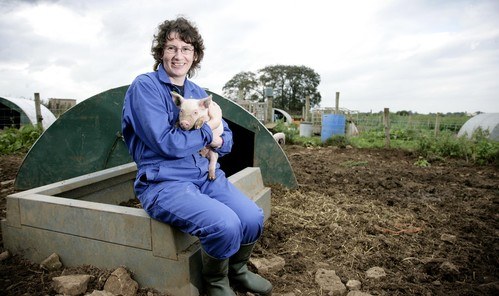
New funding for livestock research centre
A new government and industry-backed £70million livestock innovation centre has been launched, supported by University of Leeds investment. Bringing together the food industry and researchers, the government has awarded £27.7 million to set up Centre of Innovation Excellence in Livestock (CIELivestock). It aims to transform the productivity of the UK livestock industry by providing a “one-stop-shop” to drive innovation. The University of Leeds investment has been match-funded by government, giving a total of £7m to help develop its specialist pig research facility. Funding from other industry and research institutions makes up the £70 million.
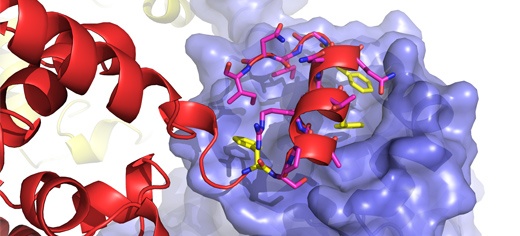
Using old drugs to treat new viruses
A group of drugs already in everyday use to treat psychosis or depression may also be used to defeat deadly and emerging viruses. Researchers from the University of Leeds found that common drugs in everyday use were successful in preventing a particular virus from infecting cells, by blocking the ion channels that regulate potassium levels in those cells.

Air quality success, but what about the impact of Brexit?
New research celebrates the success of EU air quality policy, at a time when such policies face an uncertain future because of Britain’s European referendum.
The study, led by the University of Leeds, has found that about 80,000 deaths are prevented each year due to the introduction of European Union (EU) policies and new technologies to reduce air pollution. Published in the journal Environmental Research Letters, it is the first study to look into the effectiveness of specific EU policies to reduce air pollution across Europe. It reveals that the policies have led to a 35% reduction of fine particles in the atmosphere over the period 1970 to 2010, which has improved public health across Europe. The good news, however, comes at a time when such policies face an uncertain future in light of a potential Brexit.
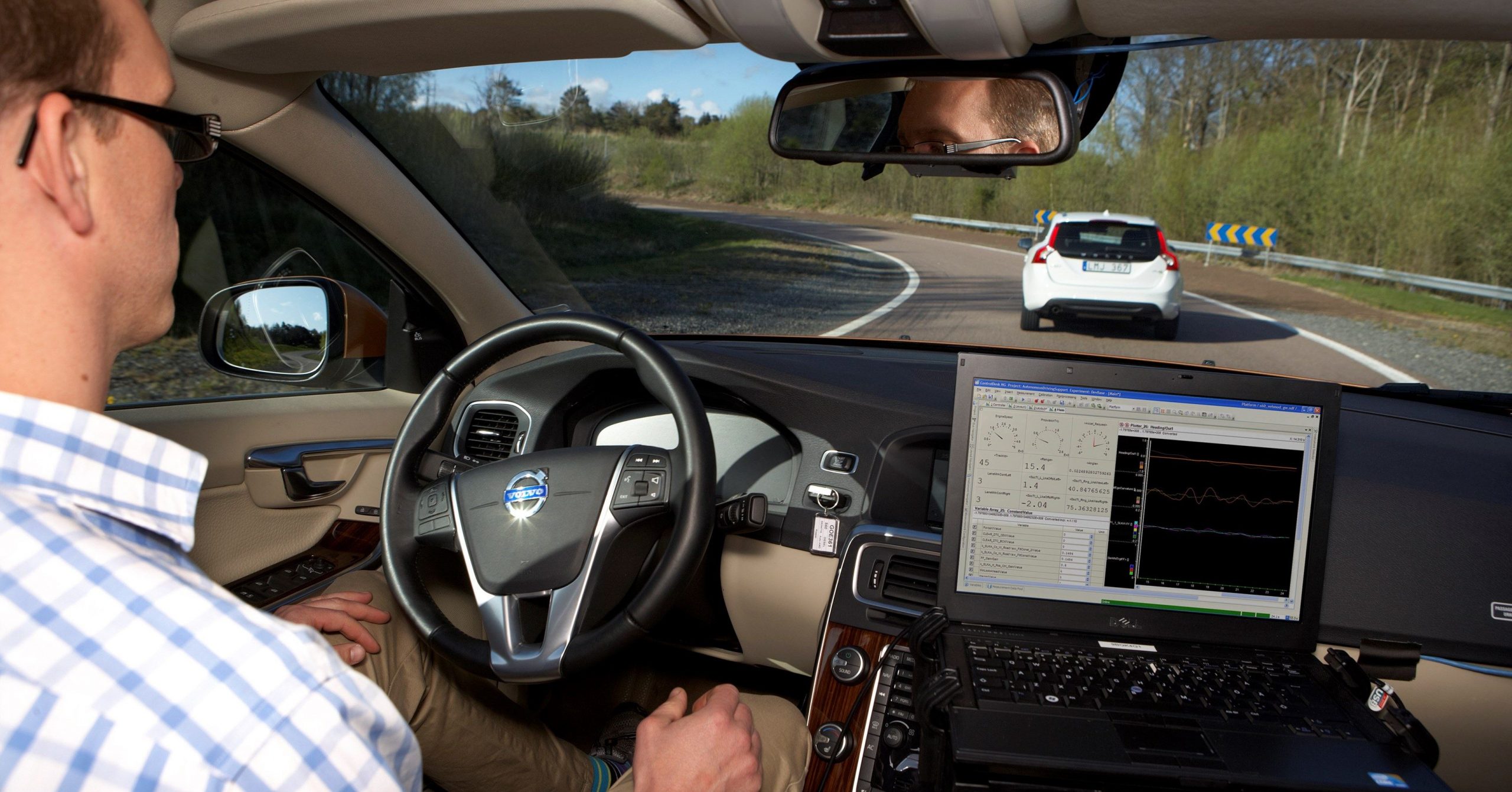
Will driverless cars increase reliance on roads?
Researchers warn that driverless vehicles could intensify car use, reducing or even eliminating promised energy savings and environmental benefits. Development of autonomous driving systems has accelerated rapidly since the unveiling of Google’s driverless car in 2012, and energy efficiency due to improved traffic flow has been touted as one of the technology’s key advantages. However, new research by scientists from the University of Leeds, University of Washington and Oak Ridge National Laboratory, says its actual impact may be complicated by how the technology changes our relationship with our cars. The research, published in the journal Transportation Research Part A, was led by Dr Zia Wadud, Associate Professor in the University of Leeds’ Faculty of Engineering and a research group leader in the University’s Institute for Transport Studies.
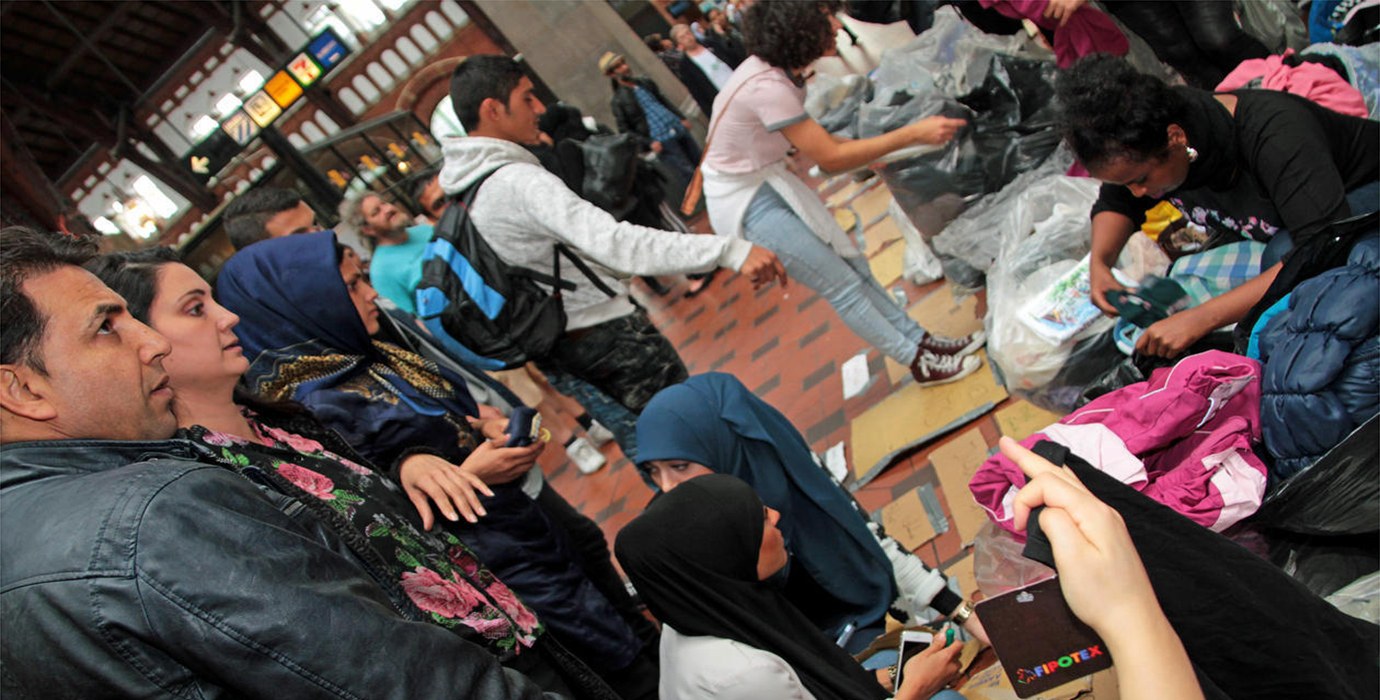
Researchers to Look at Effects of Migration Policies
The research community know little about the new types of immigration in the world. A new, international project seeks to find the answers to difficult questions in the migration debate.

Improving rainfall and flooding predictions
The University of Leeds is a partner in a new research project to improve our understanding of rainfall and flood predictions in Scotland. Scientists from the University will work alongside the Scottish Environment Protection Agency (SEPA), the National Centre for Atmospheric Science (NCAS), Scottish Water and the Met Office. The Radar Applications in Northern Scotland (RAINS) project will involve the deployment of NCAS’ Mobile X-band Radar to Kinloss, Scotland, from January to July 2016, to observe clouds and measure rainfall. The observations from the NCAS radar will be used alongside the existing Met Office radar network to study precipitation and flooding. This will be the first in-depth study of clouds, precipitation and how they link to flooding in Scotland. The NCAS radar is capable of measuring clouds and precipitation in remote locations and is the only one of its kind in the United Kingdom.
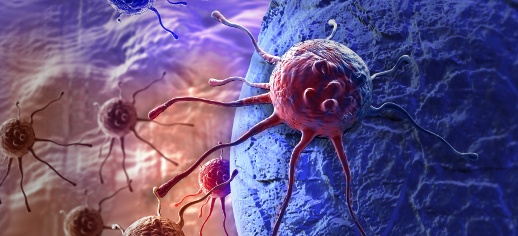
Finding the best treatment for bowel cancer patients
A new test could help patients with advanced bowel cancer get the best treatment for their disease. A Cancer Research UK clinical trial, run from the University of Leeds and St James’s University Hospital, studied almost 1,200 patients at hospitals all over the UK with advanced bowel cancer.
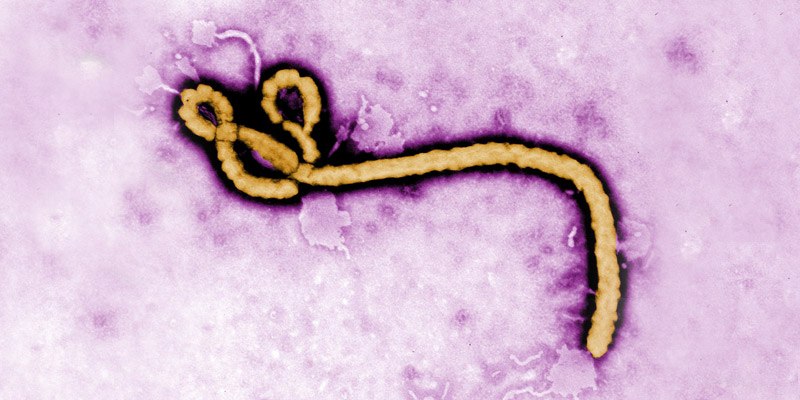
Researchers to use supercomputer to ‘hack’ Ebola
Scientists at the University of Leeds will run the equivalent of password cracking software to find the chemical keys to defeating the Ebola virus. A team from the University’s schools of Chemistry and Molecular and Cellular Biology have secured a £200,000 grant from the Wellcome Trust to find drugs to cure the disease. Although several Ebola vaccines are being developed, there are currently no effective anti-viral drugs to treat people once they get infected. This is a particularly serious issues because of barriers to implementing vaccine programmes in the most at-risk communities and the difficulty of predicting where the disease will strike next. The University of Leeds researchers will focus on finding anti-viral drugs.
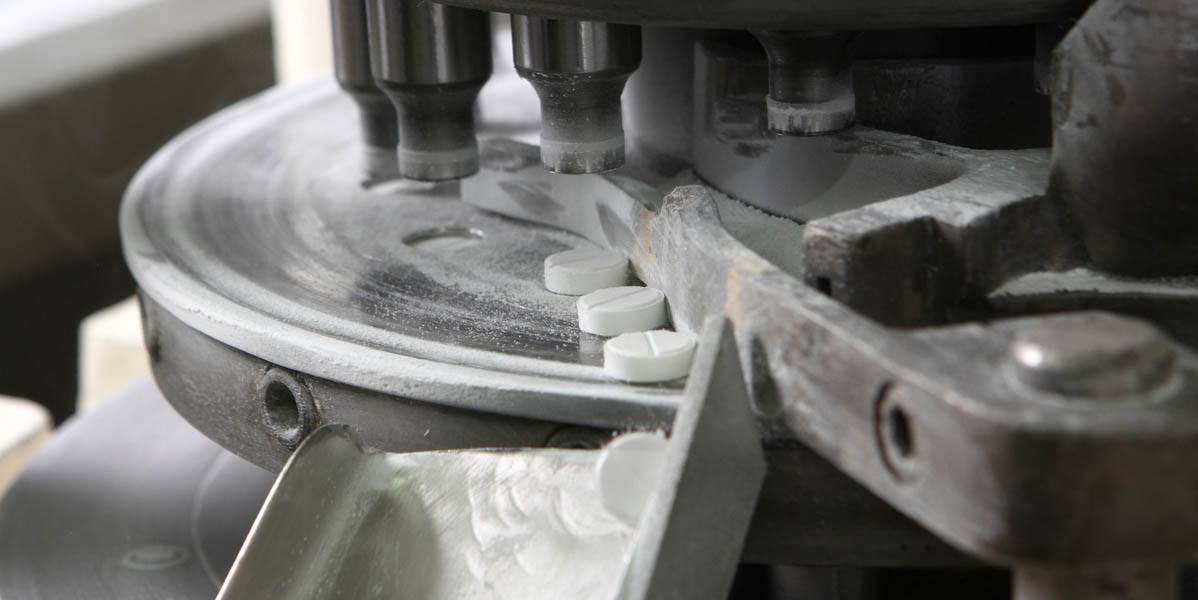
Digital design to boost pharmaceutical industry
University of Leeds researchers are part of a project to transform the UK’s pharmaceutical industry by introducing new digital design processes. The £20.4 million ADDoPT (Advanced Digital Design of Pharmaceutical Therapeutics) project is a major four-year collaboration between the Government, industry and universities. It is expected to reduce the development time and cost of innovative medicines and improve the competitiveness of the UK’s pharmaceuticals sector.
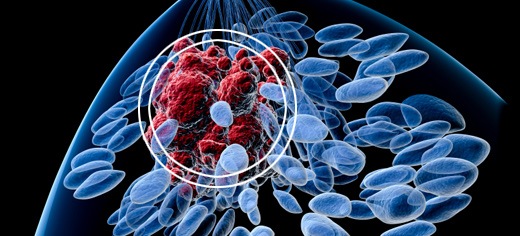
Breast cancer survivors could be vulnerable to common illnesses
Breast cancer survivors treated with chemotherapy could be vulnerable to common illnesses because of the long-term impact on the body’s immune response, according to new research findings. Chemotherapy is used to treat 30% of breast cancer patients and whilst previous studies have investigated its effects on immune systems during the therapy itself – and up to a short period after the last treatment – little is known about the long-term impact on immunity. Researchers from University of Leeds and Leeds Teaching Hospitals NHS Trust measured the levels of lymphocytes, a group of white blood cells involved in the body’s immune response, together with antibodies. They found that chemotherapy reduced levels of some immune system components for at least nine months after treatment.

‘Big Data’ generates need for ‘Data Diplomacy’
“Data Diplomacy” seeks to better understand the role that data sharing plays as an agent in social and political relationships around the world. Examples of data diplomacy can include: negotiations between two competing health systems to enable access to electronic medical records of shared patients; cross-national sharing of outbreak data, such as ownership of and access to information about people impacted by Ebola virus; or the impact on diplomatic relationships among nations due to systematic “leakages” of data, evidenced by the Edward Snowden case.

Leeds researchers conduct new training programme in Africa
A team of researchers led by the University of Leeds is conducting a new and innovative training programme in Africa. The Development in Africa with Radio Astronomy (DARA) project, led by Professor Melvin Hoare, seeks to provide people in the targeted countries with training to use radio telescopes. It also has an outreach programme to encourage young people to study the technological aspects of radio astronomy and pursue STEM (science, technology, engineering and mathematics) subjects. The project is funded by the Newton Fund – a novel initiative that aims to promote the economic development and social welfare of developing countries through scientific collaboration.

A kink in the fault line explains why the Himalayas keep growing
An international team of scientists has shed new light on the earthquake that devastated Nepal in April 2015, killing more than 8,000 people. In a study published in the journal Nature Geoscience, the scientists show that a kink in the regional fault line below Nepal explains why the highest mountains in the Himalayas are seen to grow between earthquakes. The researchers, from the UK’s Centre for the Observation and Modelling of Earthquakes, Volcanoes and Tectonics (COMET), as well as academics from the USA and France, also demonstrate that the rupture on the fault stopped 11km below Kathmandu.
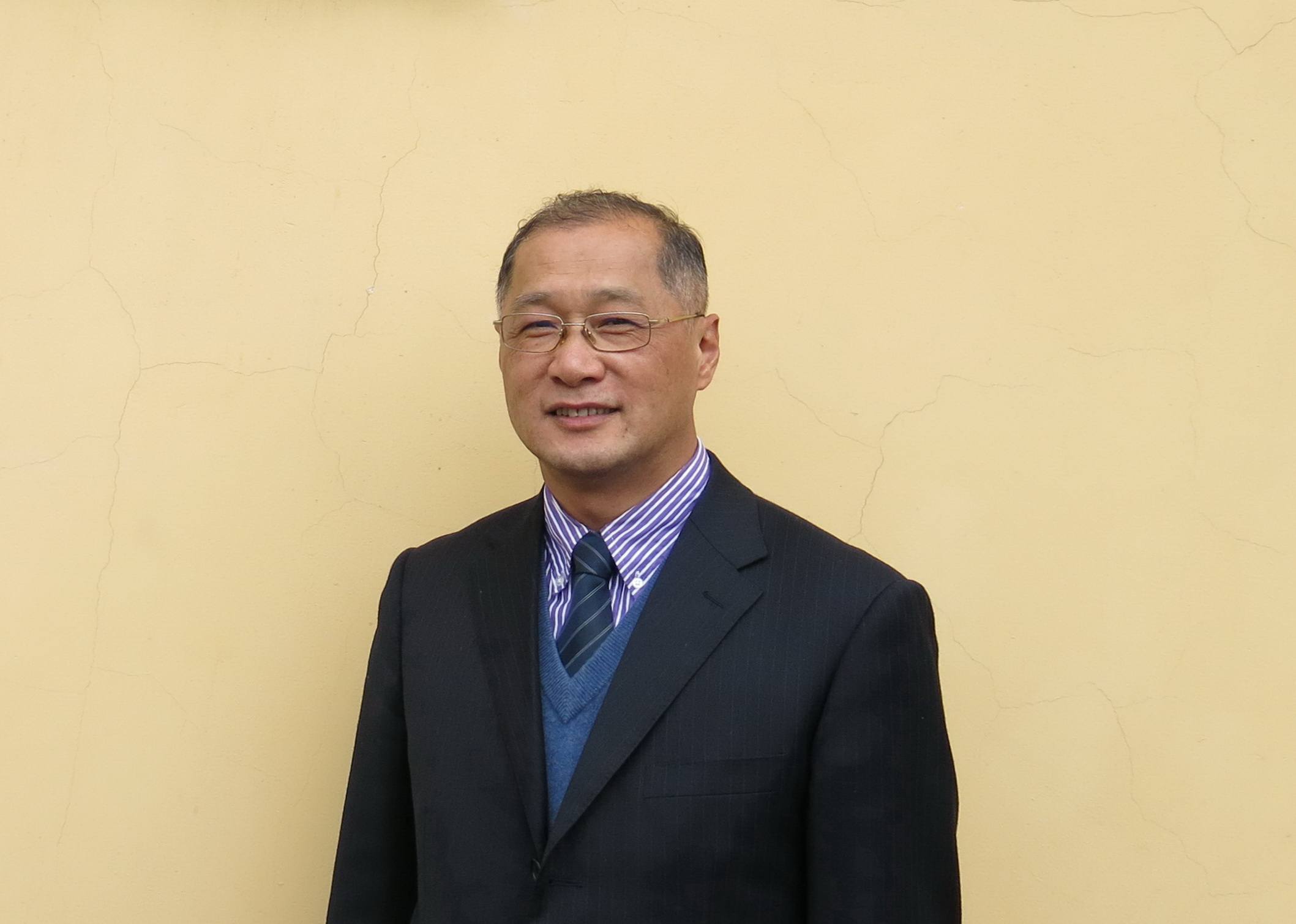
Study on Novel Glucose-Responsive Materials for GOX-Free Glucose Sensors
The researchers of the joint team from Zhejiang University, University of Leeds and University of York are currently exploring novel glucose-responsive materials for GOX-free glucose sensors which will be more sensitive and stable.
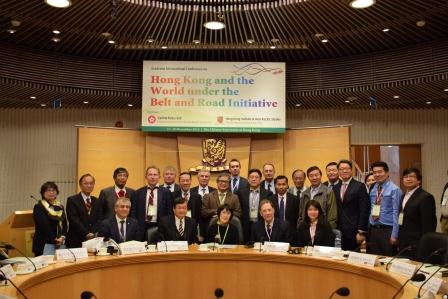
CUHK Launches Global China Research Program
The Chinese University of Hong Kong (CUHK) recently launched the Global China Research Program with the goal of understanding China’s global presence and international relations, as well as the global reception of China’s outward engagements.
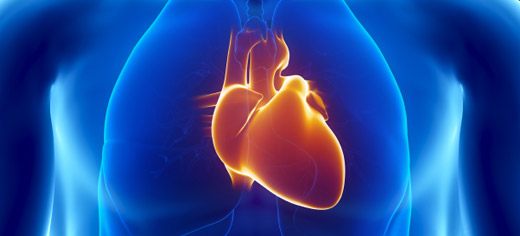
A fighting chance of survival: life-saving stents for heart attacks
A study of 300,000 heart attack patients, led by the University of Leeds, has found rapid rates in the uptake of a treatment which improves a patient’s chances of survival after a major heart attack. The research, part-funded by the British Heart Foundation and the National Institute of Health Research, showed the uptake of heart attack treatment gives nine in ten patients fighting chance of survival. The use of emergency stenting treatment (PPCI) increased from 0.1% in 2003 to 86% in 2013 for patients with STEMI – a heart attack caused by a complete blockage of a coronary artery which accounts for 25-40% of all heart attack cases in Europe.
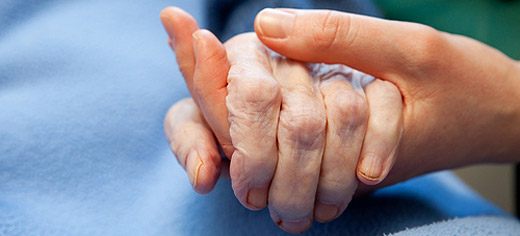
Many colorectal cancer survivors struggle to cope with daily life
Around 7,000 colorectal cancer survivors in the UK struggle to cope with daily life years after their diagnosis, according to new analysis led by University of Leeds researchers. The study, recently published in the Journal of Clinical Oncology and partly funded by Macmillan Cancer Support, shows that just under 1 in 6 (15%) people who survive a year to three years after a colorectal cancer diagnosis in England experience ‘social distress’, perceiving their daily social interactions to be severely negative or distressing.
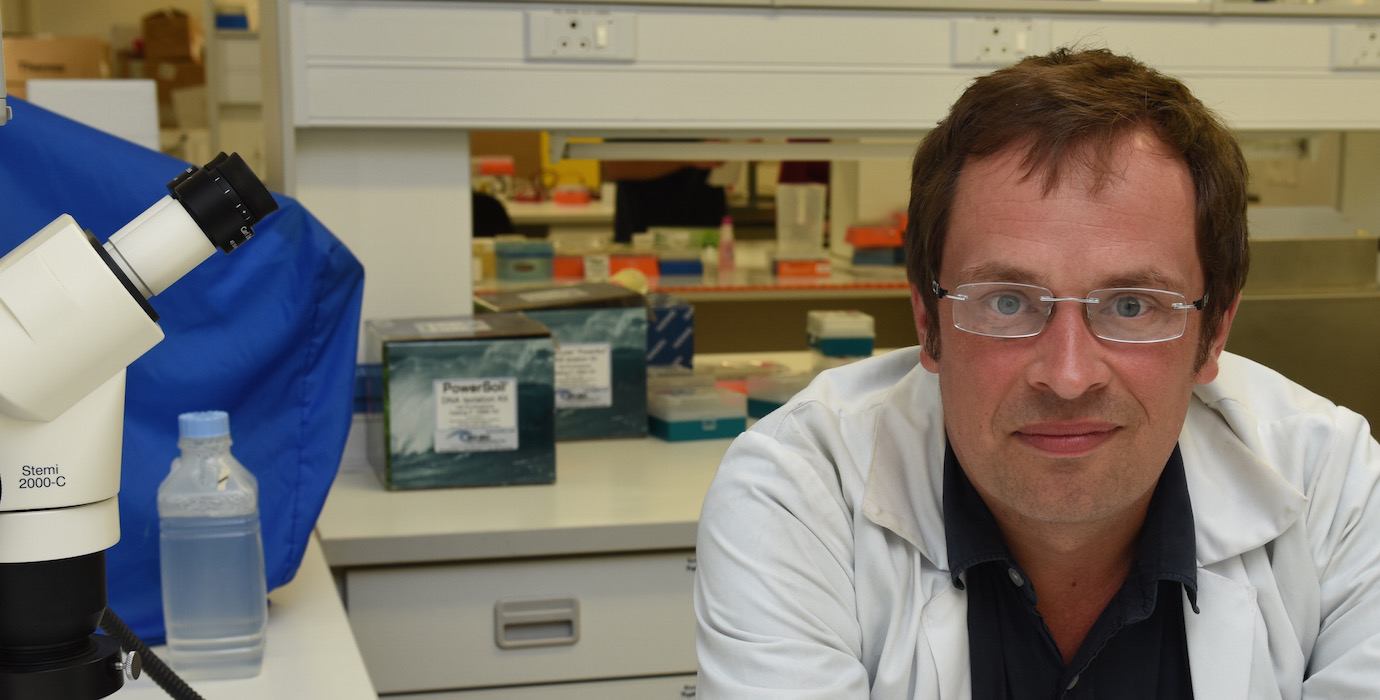
Parasitic worms: friends or foes?
Meet the UCT researcher discovering how parasitic worms can benefit human health.

Researchers uncover the key to the rise of the animal kingdom
A new study may have resolved a fundamental question concerning the development of Earth as a planet on which animals could flourish: what came first, increasing levels of oxygen or complex animals? Before now it was not known how quickly Earth’s oceans and atmosphere became oxygenated and if animal life expanded before or after oxygen levels rose. The new study, published in Nature Communications, shows the increase in oxygenation began significantly earlier than previously thought and occurred in fits and starts spread over a vast period.
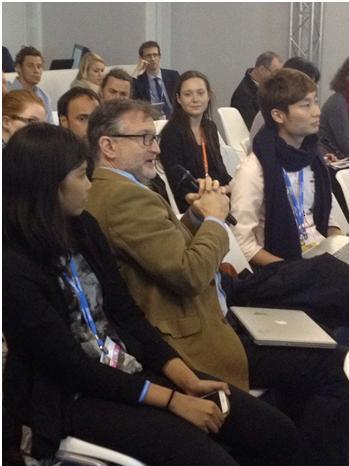
WUN Sustainability Grant for Global Platform
The WUN Sustainability Grant realizes the potential of the Global Farm Platform by facilitating the exchange of ideas and by supporting two international funding bid writing workshops to draft proposals
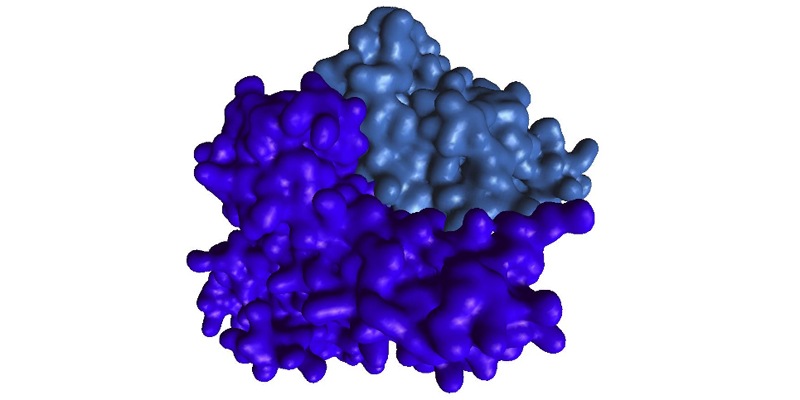
Controlling the ‘social life’ of proteins aims to transform drug discovery
A new £3.4 million programme will develop new tools to understand which interactions between proteins in the human body are relevant to disease. Currently, only a handful of drugs in clinical use work by targeting protein-protein interactions. The new project, which will launch on 1 February, 2016, will involve researchers from the University of Leeds, the University of Bristol and three drug discovery organisations: the Northern Institute for Cancer Research, Newcastle University; AstraZeneca; and Domainex.
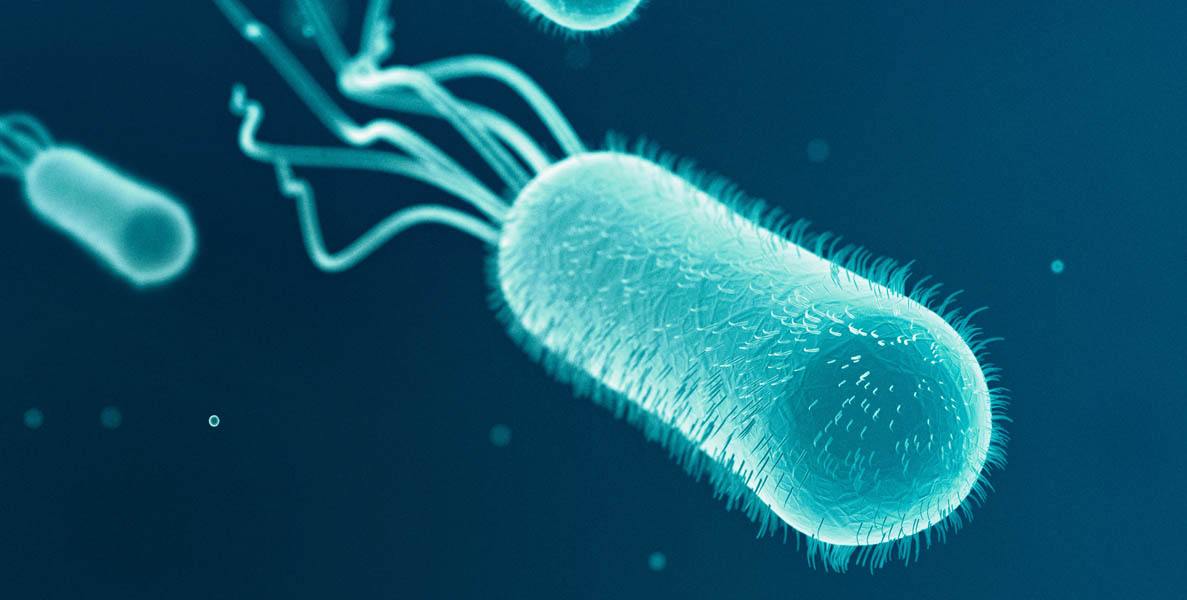
Antibiotic resistance could help find drugs for some of the most intractable diseases
Scientists have developed an innovative way of using one of the biggest problems facing health services—antibiotic resistance—to develop drugs to combat some of the most intractable diseases. The new study, from research led by Professor Sheena Radford from the University of Leeds and published in Nature Chemical Biology, outlines a way of using antibiotic resistance to find chemicals capable of stopping amyloid formation.
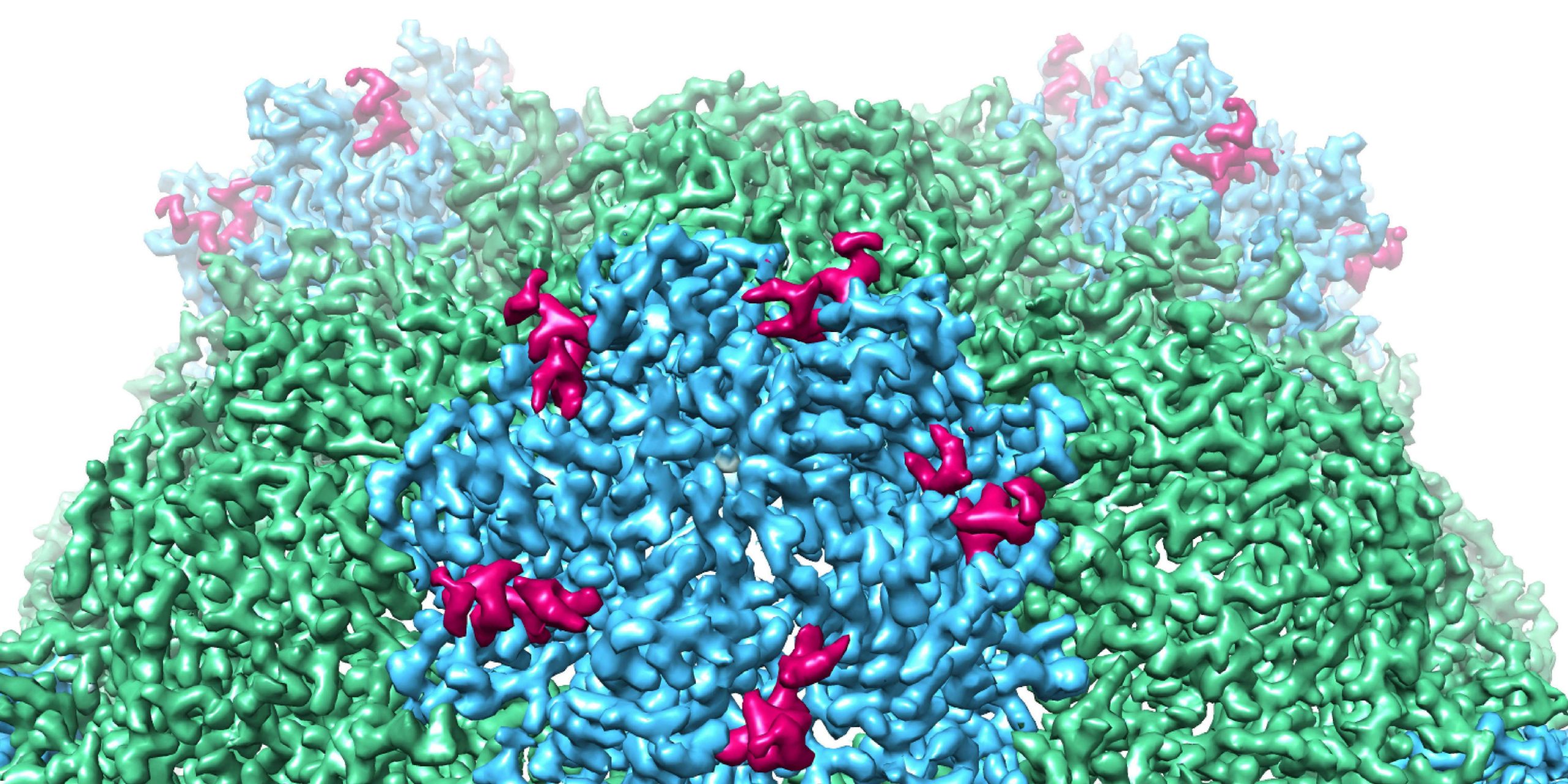
Groundbreaking microscopy unlocks secrets of plant virus assembly
New research into how a plant virus assembles could lay the groundwork for future use to carry drugs into the human body. The study, by a team from the University of Leeds’ Astbury Centre for Structural Molecular Biology and the John Innes Centre in Norwich, describes the structure of an empty version of Cowpea Mosaic Virus (CPMV) and the molecular “glue” that allows the virus to build itself and encapsulate its genome. The findings, published in the journal Nature Communications and based on revolutionary new electron microscopy, may be a crucial step to eventually allowing scientists to build custom versions of the virus that can carry medicines into the body and target disease.
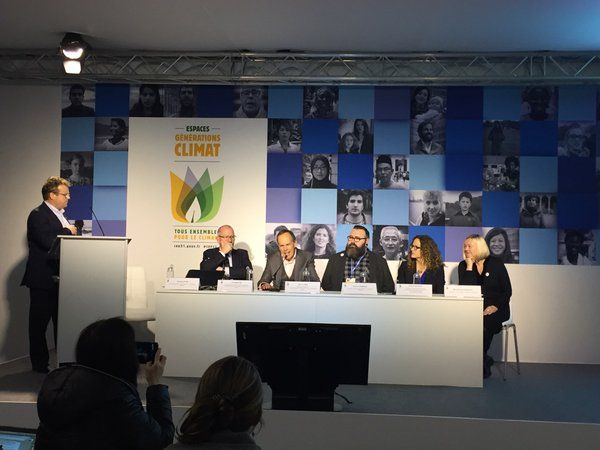
Moving Toward a Sustainable Future Following COP21
After many years of failed attempts, world leaders have finally signed a comprehensive deal to address climate change at COP21 in Paris. WUN was there.

WUN investing in research that matters
The Worldwide Universities Network (WUN) announced today the results of the 2015 round of the annual Research Development Fund, marking a direct investment in international, interdisciplinary research of £156,213.

Millions in funding for young Bergen researchers
Four young scientists recently received over 80 million NOK from Bergen Research Foundation and the University of Bergen, making world class research possible.
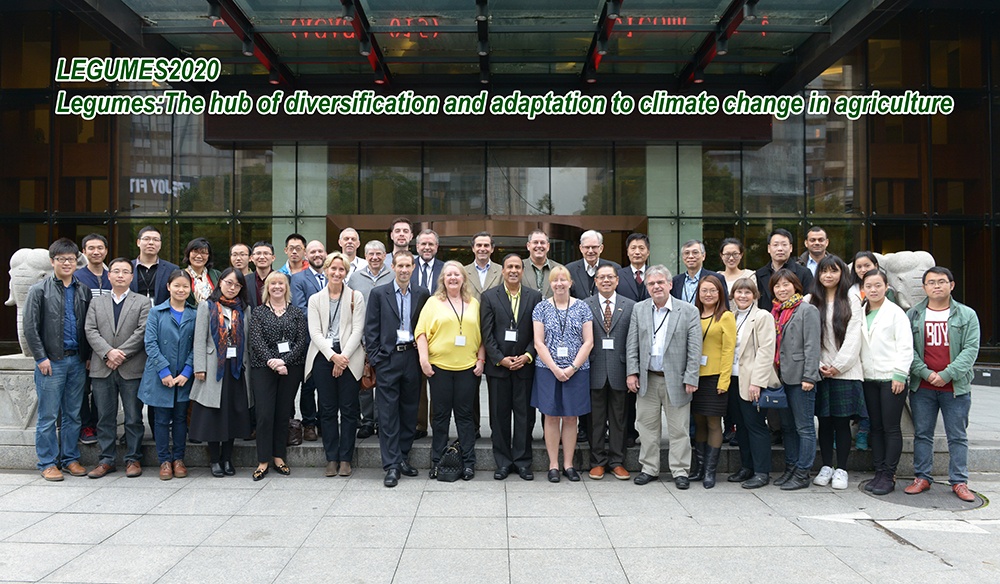
Legumes: the Solution to Human Health and Agricultural Sustainability
As the world’s population continues to grow and the effects of global warming and climate change begin to affect crop yields, new and existing crops must be developed that are resilient to temperature extremes, drought and salinity, while also being cheap to produce. The UN Secretary-General, Ban Ki-Moon, himself, noted the scale of the problem saying “diversification of crops with legumes and other practical measures must be scaled up to end hunger while meeting the challenge of climate change”.

Proactive in Paris: Researchers head to Paris for crucial climate change talks
Scientists and world leaders are convening in Paris to tackle climate change, and the University of Leeds is well represented at the talks, offering a wealth of expertise in climate change science. Students and alumni of the University of Leeds have also created a short documentary film about the path to Paris and why this COP should be different to previous years, which failed to reach an agreement on how to address climate change. The film, called Atmosphere, is directed by postgraduate student Nick Roxburgh from the University’s School of Earth and Environment and is the result of a successful crowd-funding campaign.
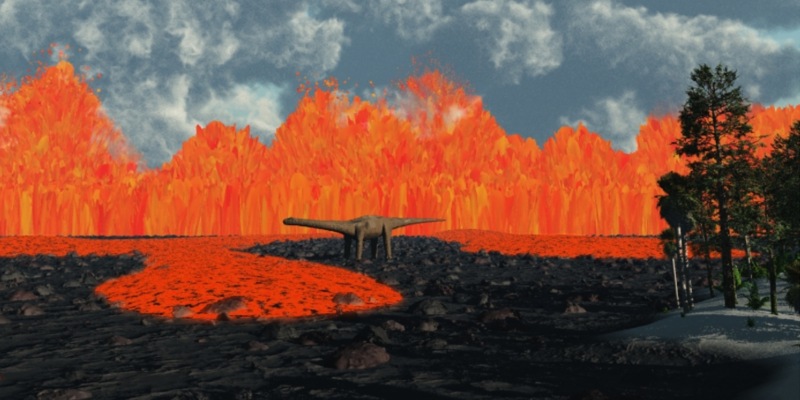
Drawing a ‘curtain of fire’ on dinosaur extinction theory?
Earth’s early history is likely to have been much less severe than previously thought, according to a study led by the University of Leeds. Asteroid impacts and long-lasting volcanic eruptions called continental flood basalts – the two most commonly cited possible causes of mass extinction events – would have propelled gas and dust into the atmosphere and altered climate for years. But, until now, the impact of years of sulphur dioxide emissions from continental flood basalts was unknown. In a study published online on 23 November in Nature Geoscience, researchers have provided for the first time a quantitative estimate of the degree and nature of the effects that such eruptions had on the Earth’s climate, vegetation and oceans.
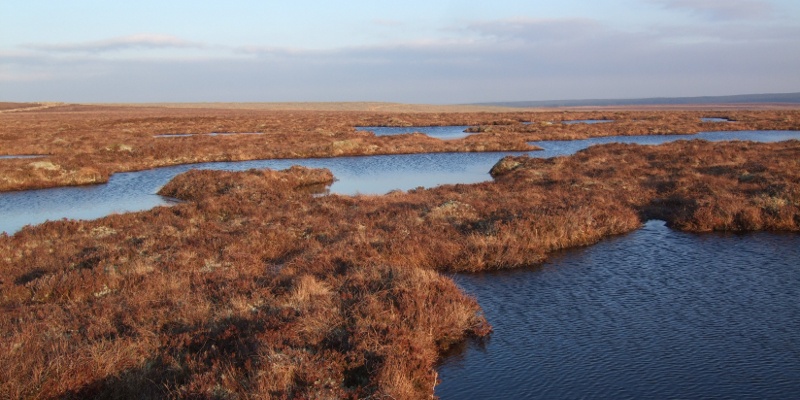
Peatland Code could significantly cut greenhouse gas emissions
A new Government-backed code has been launched that could slash UK carbon dioxide emissions by 220 million tonnes and protect rare wildlife by restoring moors, bogs and mires. The Peatland Code is unveiled at the World Forum for Natural Capital in Edinburgh on 23 November following a successful two-year trial, which has seen businesses fund peatland restoration projects in southwest England, the Lake District and Wales. The Code is based on research by academics at the University of Leeds and Birmingham City University, which revealed that sustainable business investment could reverse the degradation of peatlands and significantly cut greenhouse gas emissions.

Half of all Amazonian tree species may be globally threatened
More than half of all tree species in the world’s most diverse forest – the Amazon – may be globally threatened, according to a new study. But the study, published on Friday 20 November, in the journal Science Advances, also suggests that Amazonian parks, reserves and indigenous territories will protect most of the threatened species, if properly managed. The findings were announced by a research team comprising 158 researchers from 21 countries, led by Dr Hans ter Steege of Naturalis Biodiversity Center in the Netherlands and Dr Nigel Pitman of the Field Museum in Chicago, USA. The pan-Amazon RAINFOR network led by the University of Leeds contributed hundreds of forest monitoring plots to the effort

Talking Climate Change – WUN on the world stage at UNFCCC COP21
The world will gather in Paris in early December for the 21st Conference of Parties (COP21) to develop solutions to climate change and WUN will join them as an official observer organisation.

Unpaid carers save UK £132 billion a year – the cost of a second NHS
A new report jointly written by University of Leeds experts reveals that the 6.8 million people who provide unpaid care for loved ones in the UK save the state £132 billion a year. The report for the charity Carers UK, Valuing Carers 2015 – the rising value of carers’ support, is the third in a series looking at the value of carers’ support to the UK economy. It shows a staggering increase in the value of carers’ support since 2001, almost doubling from £68 billion to £132 billion. Researchers attribute this rise to a dramatic increase in the number of hours people are caring for, combined with an increase in the cost of replacement care.
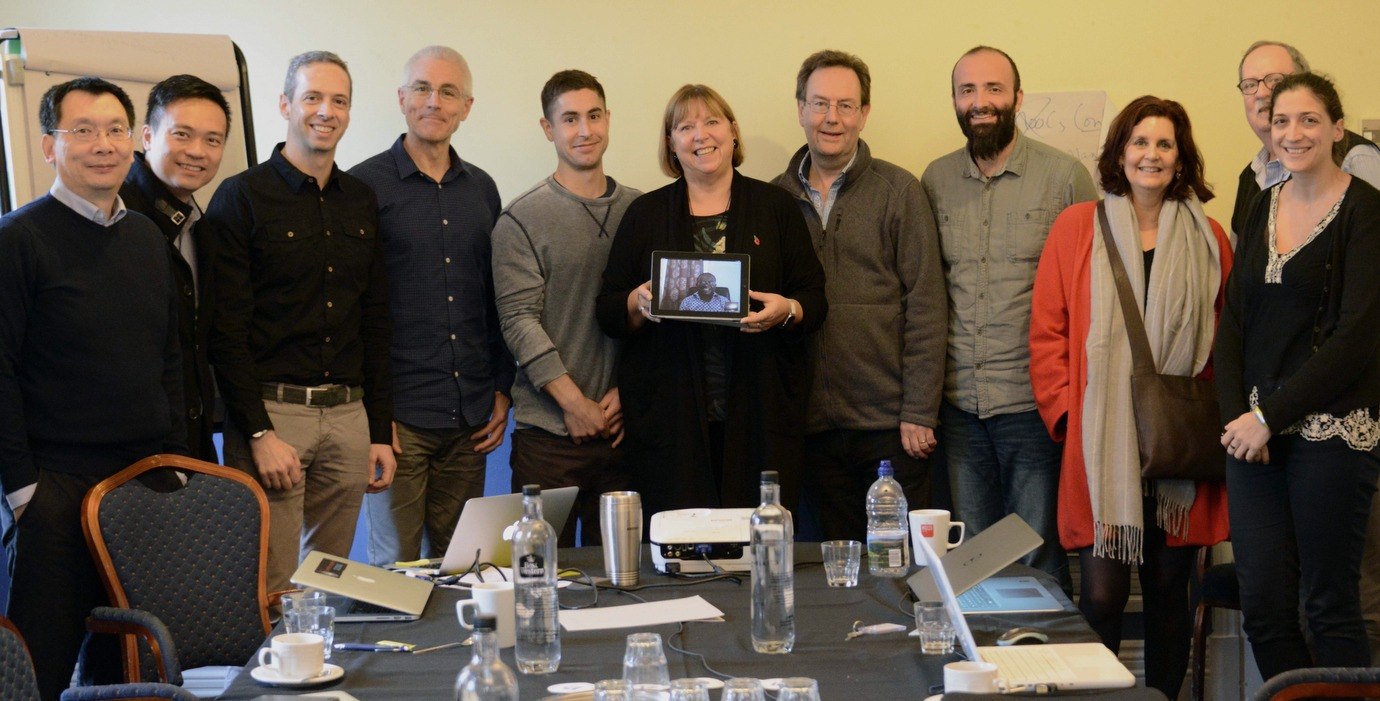
Inaugural Web Observatories Workshop Takes Place in Southampton
Much like the printing press, the invention of the world wide web has afforded us unprecedented opportunities for spreading information. Not only do we now have the capacity to share rich data sets online, we also have vast amounts of data about our online activity. However, without a proper framework in place, it is difficult to take full advantage of this rich information resource. There are currently multiple barriers to using this resource effectively, including accessibility of datasets, lack of comprehensive and shareable metadata, dataset identification and searching, access control and privileges, and analytics.
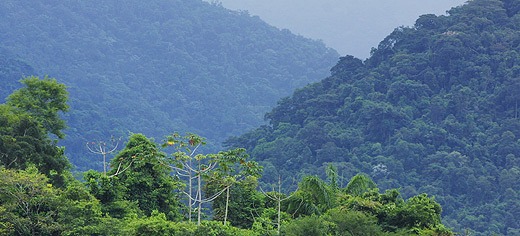
Increased deforestation and the Amazon basin rainfall
Researchers report that continued deforestation of the Amazon rainforest could diminish rainfall levels in the Amazon River basin, which may impact the region’s climate, ecosystems and economies.
A new study, published on Thursday 12 November in Geophysical Research Letters, predicts that by the middle of the century annual rainfall in the Amazon could be less than the yearly amount of rain the region receives during drought years if deforestation rates revert back to pre-2004 levels.
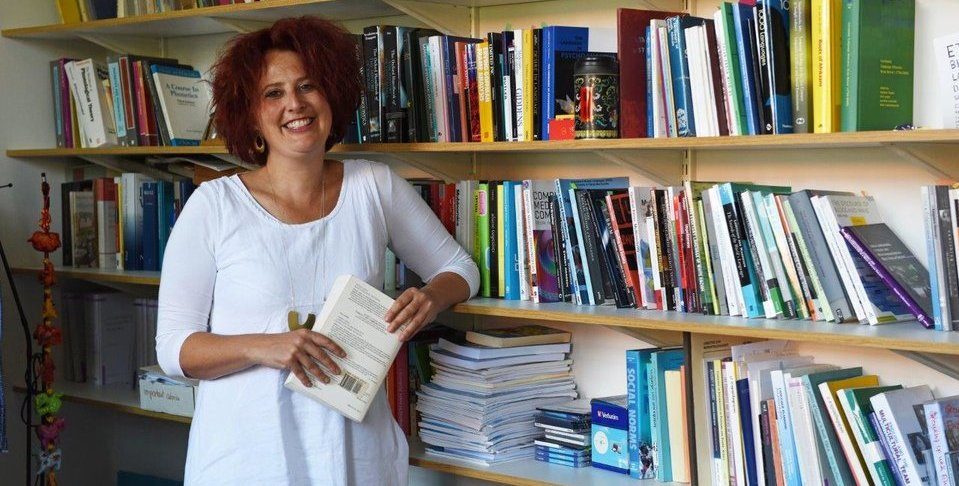
Understanding Globalisation: Margins and Peripheries
The local and the global have become entangled in rural and peri-urban areas, not only in South Africa, but around the world. And understanding these entanglements is the aim of the the WUN-sponsored project Understanding Globalisation – Margins and Peripheries. This project, led by Associate Professor Ana Deumert, seeks to study globalisation in the so-called margins of the world system: areas never before considered to be heavily affected by globalisation, but which are increasingly shaped by larger social and cultural processes.

20 Benefits of Collaboration You Cannot Afford to Ignore
The Worldwide Universities Network aims to foster international research collaborations to address global challenges. WUN is in a joint venture with Global Academy Jobs (GAJobs) that links researchers with top research universities to enhance career prospects. The article below was recently featured on the GAJobs blog. Scott Wavers writes about how to invest your time wisely as a researcher and how to collaborate well. In his blog post he outlines the top 20 benefits of collaboration for a researcher.

‘One size fits all’ when it comes to unravelling how stars form
Observations led by astronomers at the University of Leeds have shown for the first time that a massive star, 25 times the mass of the Sun, is forming in a similar way to low-mass stars. The discovery, made using a new state-of-the-art telescope called the Atacama Large Millimeter/submillimeter Array (ALMA), which is based in Chile, South America, was published online on 29 October by The Astrophysical Journal Letters.
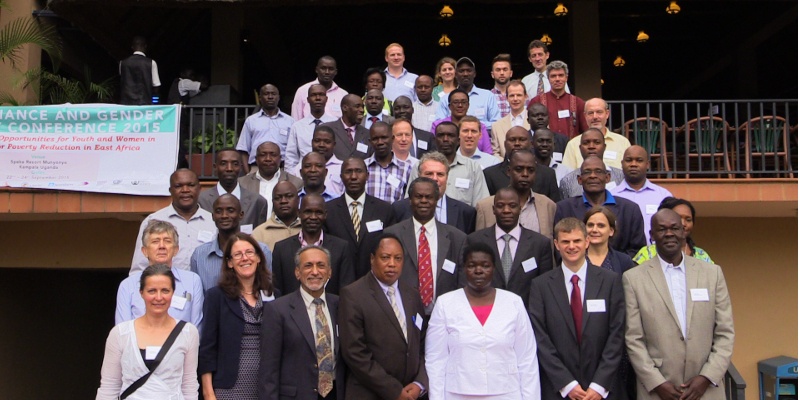
New £20 million research programme to deepen understanding of Africa’s changing climate
A UK government-funded initiative will put £20 million behind research to better understand Africa’s changing climate and the use of climate change information in decision-making across the continent. Future Climate for Africa (FCFA) is supporting five major research projects to develop better climate information for Africa and to test how the new information could be used in decision-making. Dr John Marsham from the University of Leeds is leading the HyCRISTAL project, which addresses East Africa, while fellow researchers from the University’s School of Earth and Environment are taking key roles in the projects addressing West Africa (AMMA2050), southern Africa (UMFULA) and modelling African climate (IMPALA). FCFA is a joint programme of the UK’s Department for International Development (DFID) and Natural Environment Research Council.
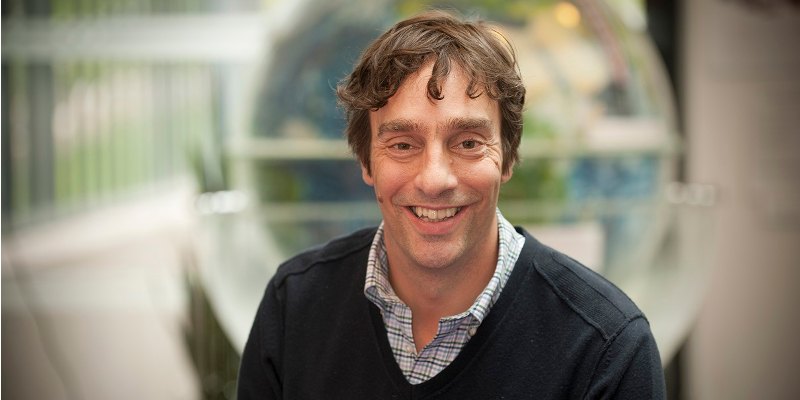
Climate research a highlight in new NERC funding
The University of Leeds has been awarded £3 million by the Natural Environment Research Council (NERC) to shed light on why the climate is warming at an uneven rate with pronounced pauses and surges. The project, which will be led by Professor Piers Forster from the School of Earth and Environment, is funded via NERC’s new ‘highlight topics’ – one of the research council’s new ways of funding strategic research.
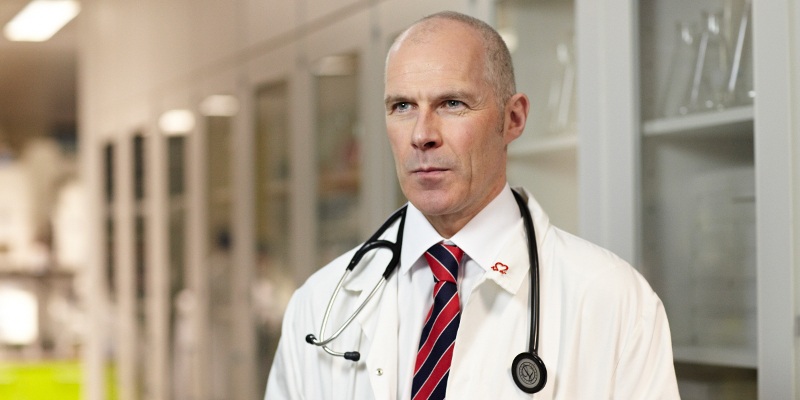
Reducing the risk of heart disease in people with diabetes
The British Heart Foundation (BHF) is investing £1.4 million in the University of Leeds to help counteract the risk of heart disease in people with diabetes. The new funding, announced on Friday 23 October, is part of the BHF’s new research strategy which commits to spending over half a billion pounds on research in the next five years. Professor Mark Kearney, from the School of Medicine, is leading a team looking at ways to help protect people with diabetes from an increased risk of cardiovascular disease.

Dreaming of a good night’s sleep
New research from the University of Leeds has revealed that some people are losing more than 15 day’s worth of sleep a year. The study showed that more than a quarter of the British population suffer from dangerously low levels of sleep – with many sleeping as little as five hours per night – and that it could harm their health. Despite aiming to undertake around eight – nine hours sleep a night, 30 to 50 year-olds were the most likely group for being in debt to their sleep body clocks.
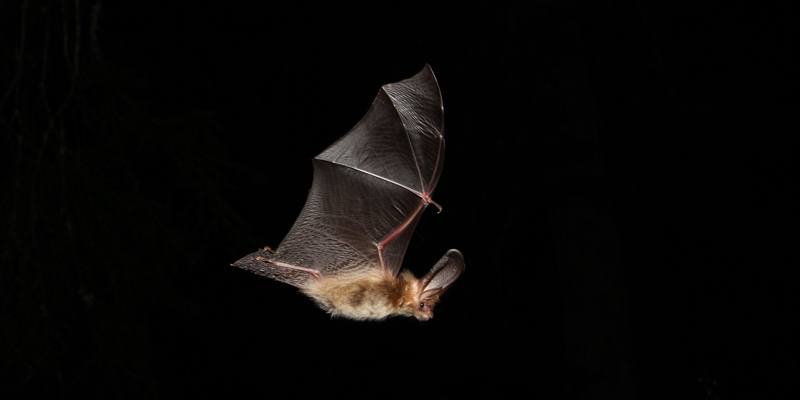
How can we build wildlife-friendly roads and railways?
Scientists behind new research into the effects of transport infrastructure on biodiversity have developed much-needed approaches to protect wildlife. A Defra-funded study, conducted by a team from the University of Leeds led by Professor John Altringham, sets out best practice principles for assessing the impact of new roads and railways on bats, as well as the effectiveness of mitigation measures installed to help them cross safely. These new survey methods should improve the efficiency of planning processes, thereby benefitting both developers and wildlife. The researchers’ report also highlights the need for a more rigorous, evidence-based approach to protecting wildlife during development.
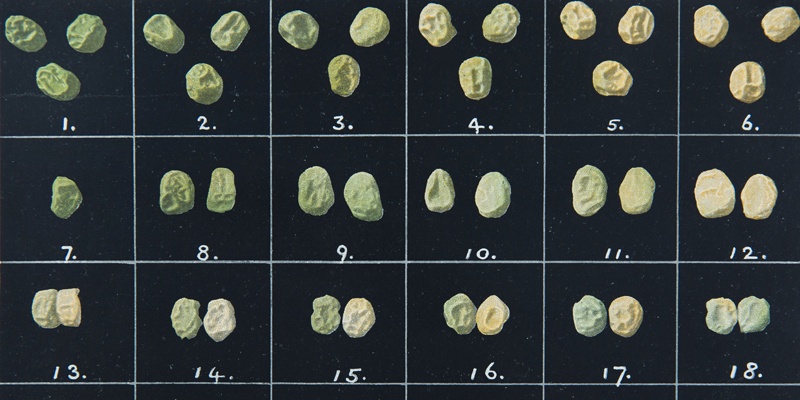
Learning the right lesson from Mendel’s peas
Biologists arguing about whether the results of experiments by the man hailed as the father of modern genetics are “too good to be true” have been distracted from a more important debate. In a new paper in Science about Gregor Mendel, the 19th century Austrian monk whose experiments on peas revealed the basic principles of heredity, University of Leeds science historian Professor Gregory Radick suggests the time has come for a different perspective on the controversy, which over the years has encompassed allegations of fraud and Cold War political pressure.

Leeds wins £4.2m funding to develop robot fixers of the future
The University of Leeds is leading a pioneering £4.2m national infrastructure research project with the vision of creating self-repairing cities. The project will develop small robots to identify problems with utility pipes, street lights and roads and fix them with minimal environmental impact and disruption to the public.The project is funded by the Engineering and Physical Sciences Research Council (EPSRC) and was announced on Friday 16 October by the Universities and Science Minister, Jo Johnson. The team also includes researchers from some of the UK’s other top universities including Birmingham, Southampton and UCL, with Nottingham, Sheffield, Oxford and Imperial as supporting partners.
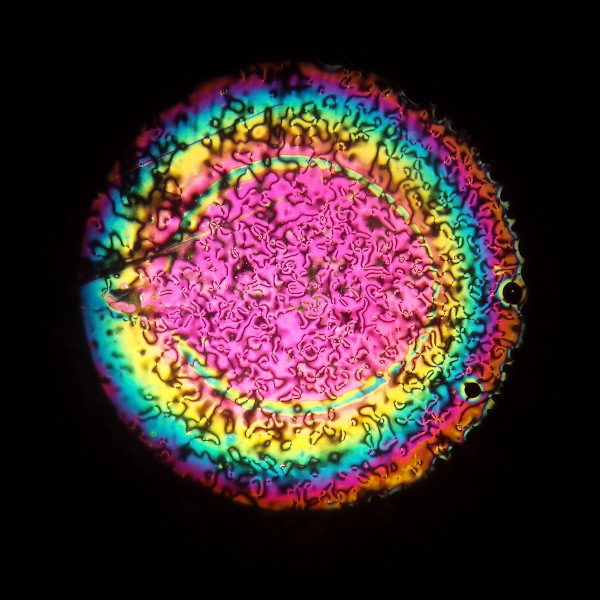
Is the end in sight for reading glasses?
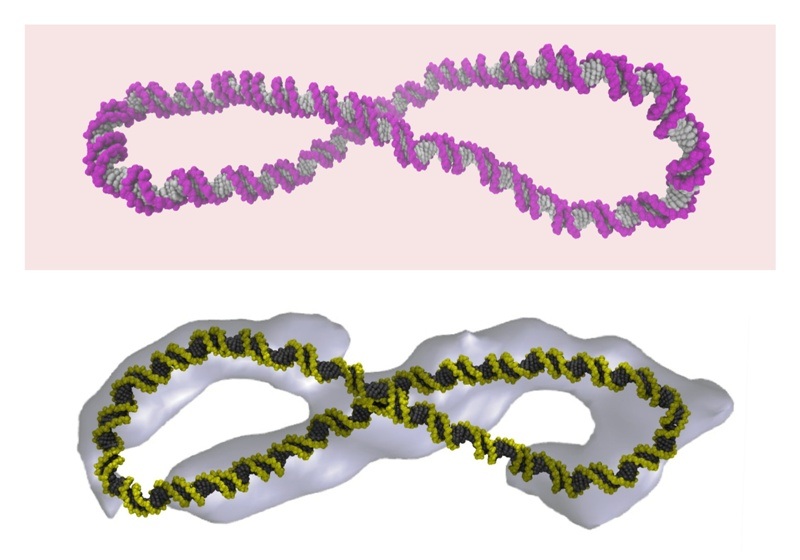
Supercoiled DNA is far more dynamic than the “Watson-Crick” double helix
Researchers have imaged in unprecedented detail the three-dimensional structure of supercoiled DNA, revealing that its shape is much more dynamic than the well-known double helix. Various DNA shapes, including figure-8s, were imaged using a powerful microscopy technique by researchers at the Baylor College of Medicine in the US, and then examined using supercomputer simulations run at the University of Leeds. As reported online on 12 October in the journal Nature Communications, the simulations also show the dynamic nature of DNA, which constantly wiggles and morphs into different shapes – a far cry from the commonly held idea of a rigid and static double helix structure.
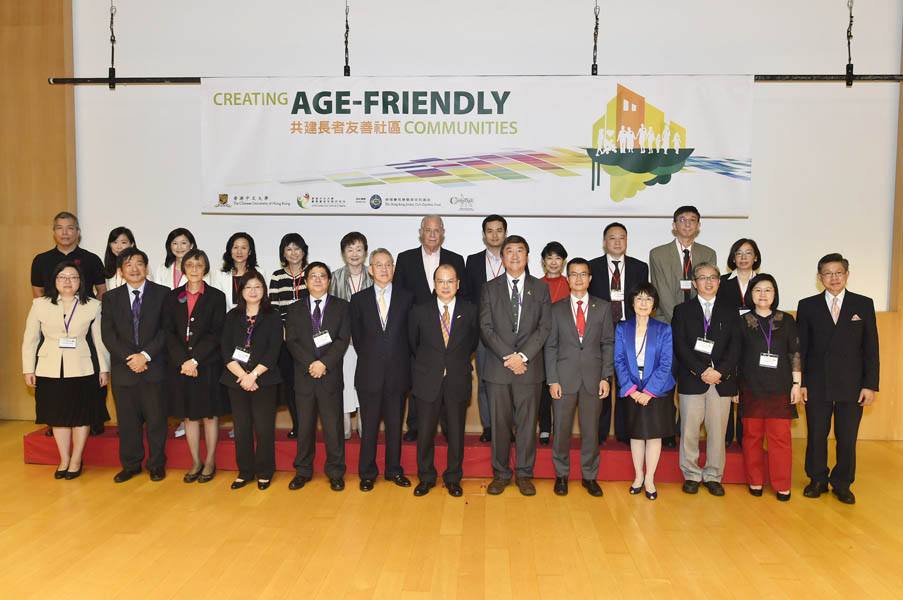
CUHK Jockey Club Institute of Ageing Holds Launch Conference on ‘Creating Age-Friendly Community’
The Chinese University of Hong Kong Jockey Club Institute of Ageing held a Launch Conference on ‘Creating Age-Friendly Communities’ on 8 October 2015 to enable experience sharing and discussion on various aspects of the theme. Topics covered in the conference included: Redesigning Communities for Aged Society, Frailty and Geriatric Syndromes, and Age-friendly Hospital and Service. The event attracted some 300 renowned academics in gerontology from the U.S., Singapore, Japan, mainland China and Hong Kong, as well as representatives from organizations working on improving seniors well-being and welfare.

Unlocking the secrets of consumer behaviour
The Consumer Data Research Centre (CDRC) launched its data services on Thursday 1 October, offering new data for researchers to garner unprecedented insights into consumer behaviour. The multi-million pound Consumer Data Research Centre (CDRC) initiative, commissioned by the Economic and Social Research Council (ESRC), is a collaboration between the UK’s leading universities and a growing list of industry partners to better understand the millions of data points we generate each day. Bringing together the universities of Leeds, Liverpool, Oxford and University College London, the CDRC has created a safe and secure data infrastructure which seeks to share these insights with academia, industry and the public at large. Whilst protecting privacy, data will – for the first time – be routinely collected and shared with the CDRC by major retailers, local government organisations and businesses across the UK to improve understanding of these complex patterns of consumer behaviour.
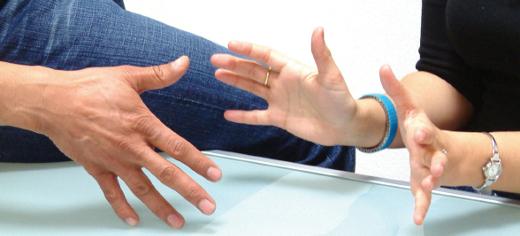
If you’re sitting down, don’t sit still, new research suggests
New research suggests that the movements involved in fidgeting may counteract the adverse health impacts of sitting for long periods. In a study published in the American Journal of Preventive Medicine, a team of researchers, co-led by the University of Leeds and UCL, report that an increased risk of mortality from sitting for long periods was only found in those who consider themselves very occasional fidgeters. They found no increased risk of mortality from longer sitting times, compared to more active women, in those who considered themselves as moderately or very fidgety.
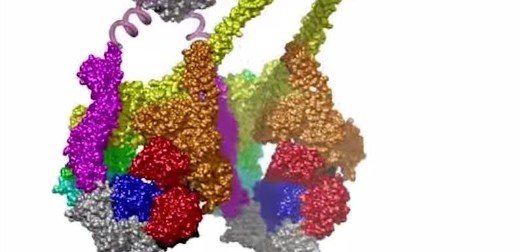
Swinging on ‘monkey bars’: motor proteins caught in the act
The first images of motor proteins in action were published in the journal Nature Communications on Monday 14 September 2015. These proteins are vital to complex life, forming the transport infrastructure that allows different parts of cells to specialise in particular functions. Until now, the way they move has never been directly observed. Researchers at the University of Leeds and in Japan used electron microscopes to capture images of the largest type of motor protein, called dynein, during the act of stepping along its molecular track.
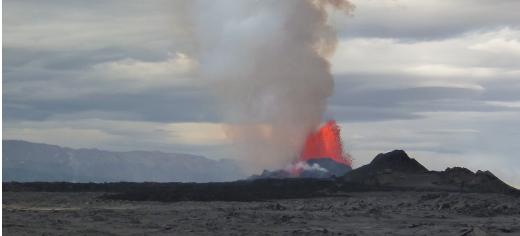
Icelandic volcano’s toxic gas is treble that of Europe’s industry
A huge volcanic eruption in Iceland emitted on average three times as much of a toxic gas as all European industry combined, a study led by the University of Leeds has revealed. Discharge of lava from the eruption at Bárðarbunga volcano, starting in August 2014, released a huge mass – up to 120,000 tonnes per day – of sulphur dioxide gas. These emissions can cause acid rain and respiratory problems. Researchers hope that their study, published by the Journal of Geophysical Research, will aid understanding of how such eruptions can affect air quality in the UK.
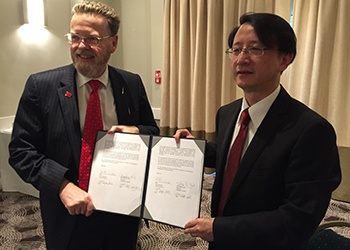
WUN members Sheffield and Zhejiang sign Memorandum of Understanding
A pioneering partnership has been signed between the University of Sheffield and Zhejiang University as part of ongoing commitments to work collaboratively in tackling some of the biggest global issues.

WUN Universities Use MOOCs to Expand Global Reach
The higher education sector is rapidly evolving as a result of new technologies and globalisation. WUN universities continue to innovate, using these new technologies to expand their offerings and global reach. The Massive Open Online Course (MOOC) is one such technology, allowing students from around the world to access world-class expertise from anywhere at any time. Below are ten free MOOCs, offered by WUN universities through FutureLearn, beginning over the coming months.

New Australian Advisory Group for Australia Africa Relations (AGAAR)
The Foreign Minister of Australia, the Hon Julie Bishop launched the new AGAAR on Friday 4thSeptember. She stated that the group would advise her and the Australian Government on economic diplomacy and development of Australian African mutual interests within Australia’s overall international engagement. These equal partnerships in mid-term programs and a long term framework for cooperation would inform the government and stakeholders with evidence based policy options. The Advisory Group was charged to help develop such a framework. The emphasis would be on sustainable and specific activities, with Australian African characteristics, in key sectoral areas and with key countries. The approach would build teamwork between governments, academic and business, along with NGO’s and international agencies.
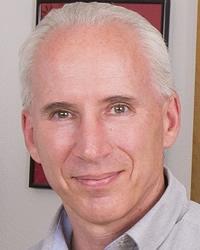
WUN announces new Chair of GHEAR Global Challenge
Professor John Hearn, Executive Director of WUN, today announced the appointment of Professor Joe Berger as the new Chair of the Global Higher Education & Research Global Challenge (GHEAR) to take effect from 1 October 2015.

CUHK Researcher Recognized by WMO for Global Food Security Study
Prof. Amos P.K. Tai of the Earth System Science Programme at The Chinese University of Hong Kong (CUHK) was recently conferred the World Meteorological Organisation (WMO) Research Award for Young Scientists for 2015. The award was presented to Prof.Tai for his paper in Nature Climate Change, Volume 4, 2014, titled “Threat to future global food security from climate change and ozone air pollution”. Prof. Tai is the first Hong Kong scientist receiving the Award.
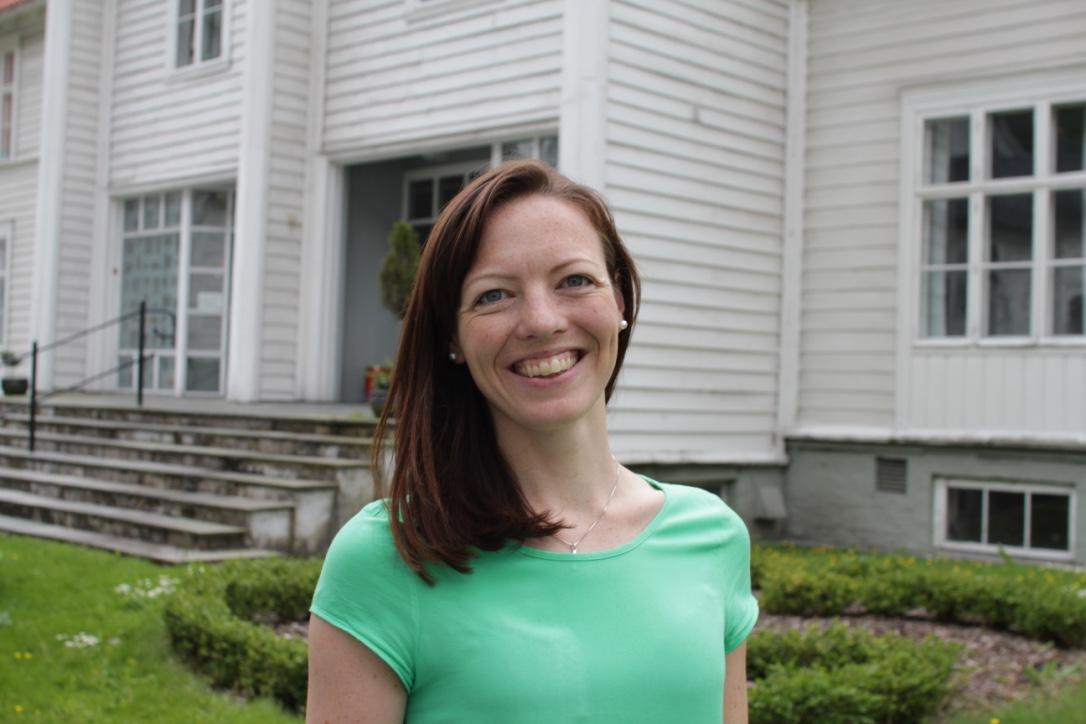
Unravelling the mystery of pain
Patients with chronic whiplash experience long-lasting pain, but doctors and researchers struggle to explain the causes. Solbjørg Makalani Myrtveit wants to help these often misunderstood patients.
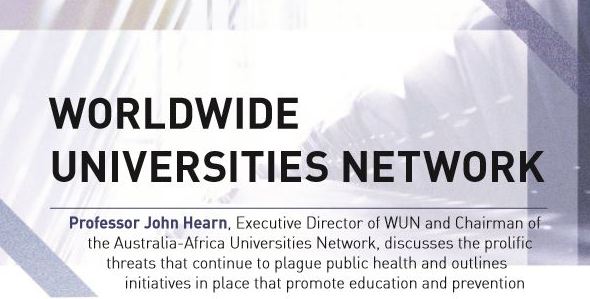
International Innovation: Promoting Education and Prevention in Public Health
Professor John Hearn, Executive Director of WUN and Chairman of the Australia-Africa Universities Network, discusses the prolific threats that continue to plague public health and outlines initiatives in place that promote education and prevention.
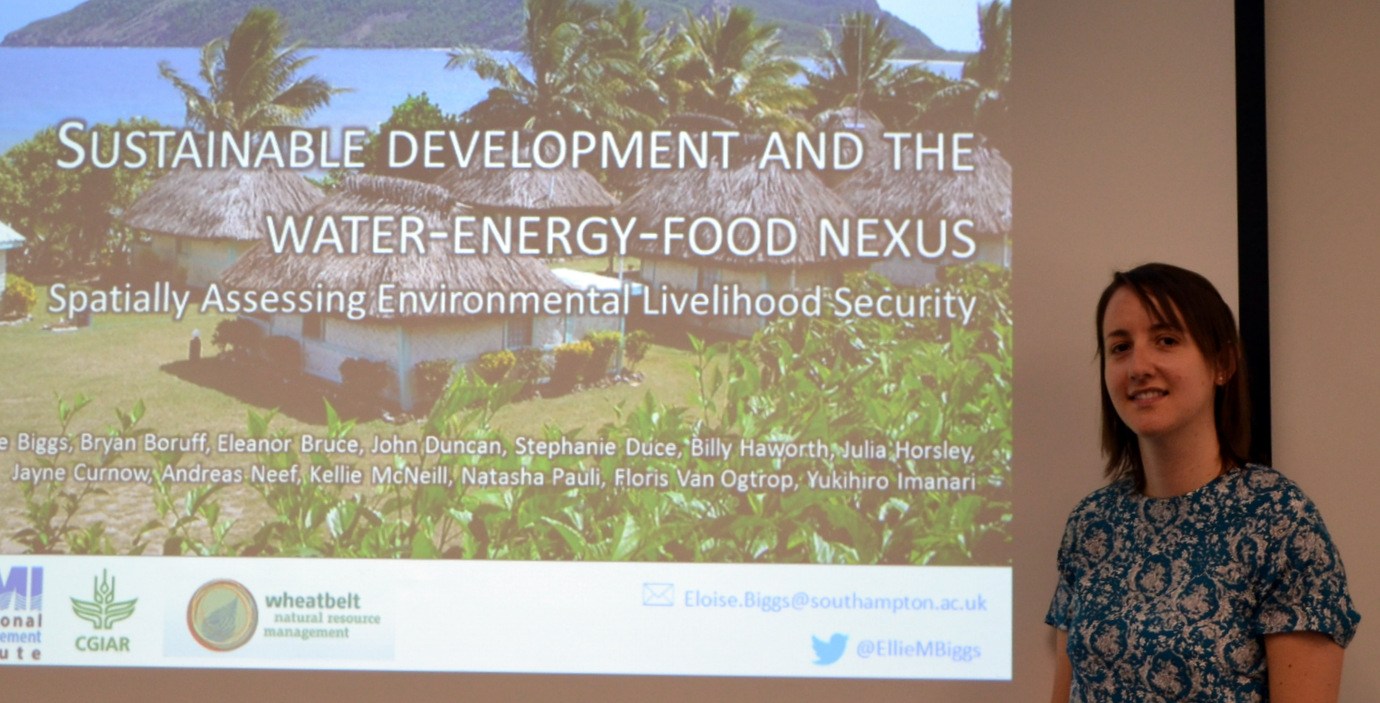
Ensuring Environmental Livelihood Security
In communities where livelihoods are linked to the land and sea, environmental security is of utmost importance. This is particularly true in the developing nations of the Asia-Pacific, where many localities have a high dependency on fisheries, tourism and agriculture. Moreover, global changes are increasingly resulting in challenging localised impacts, such as increased frequency of extreme events. Thus, understanding the social-environment system is imperative to providing solutions for responding to climate change.
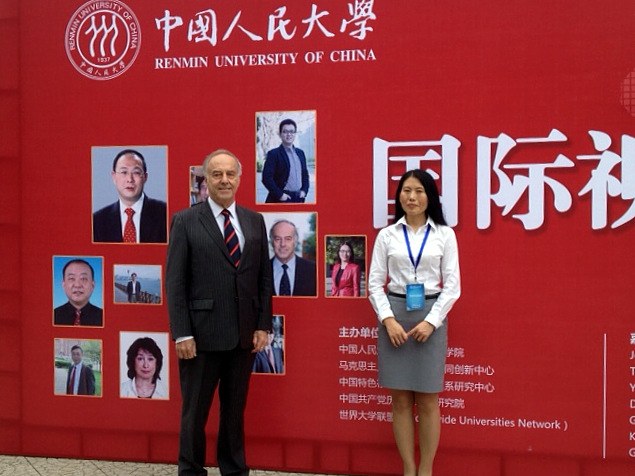
China’s Path in International Relations
Renmin University School of Marxism in Beijing held a high level international conference on “China’s Path in International Relations” at the end of June 2015. The purpose was to explore and develop the scholarly and practical concepts of “One Belt One Road” as articulated by President Xi Jinping. WUN Executive Director, Professor John Hearn, and WUN China Manager, Associate Professor Grace Liu, were among international speakers from Canada, USA, Russia and Europe invited to present papers.
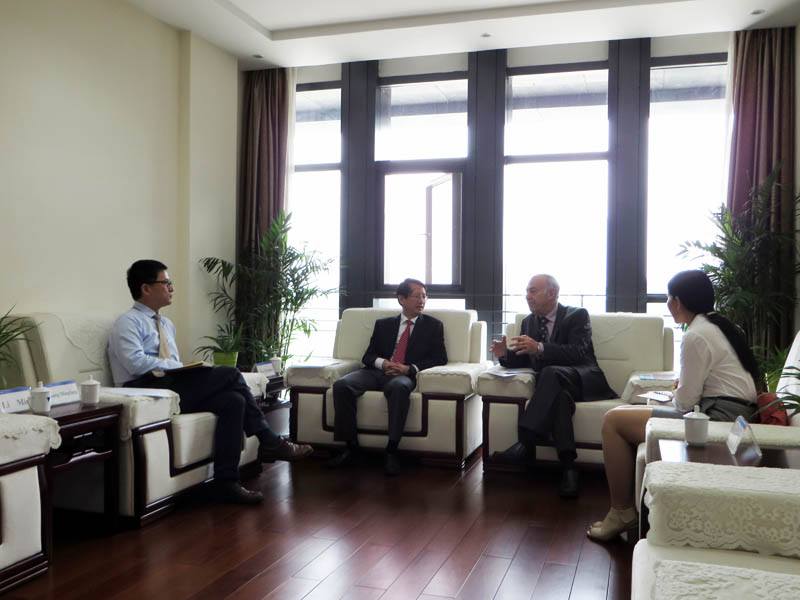
WUN and Zhejiang University Build a Stronger Partnership
WUN Executive Director, Professor John Hearn, and WUN China Manager, Associate Professor Grace Liu, visited WUN member Zhejiang University in June to meet with the new President Professor Zhaohui Wu, reviewing the WUN-Zhejiang Partnership and exploring greater engagement and teamwork. Zhejiang currently ranks in the top three Chinese universities and is a recognised international research leader.

Launch of the Leeds Institute for Data Analytics
A new institute set up to help public and private sector organisations meet the challenges and opportunities of the Big Data revolution opened its doors on Friday 10 July 2015. The Leeds Institute for Data Analytics (LIDA) offers state-of-the-art facilities in data analytics and will partner with researchers and organisations to help them make the most of the rapidly growing fields of consumer and medical data analysis.
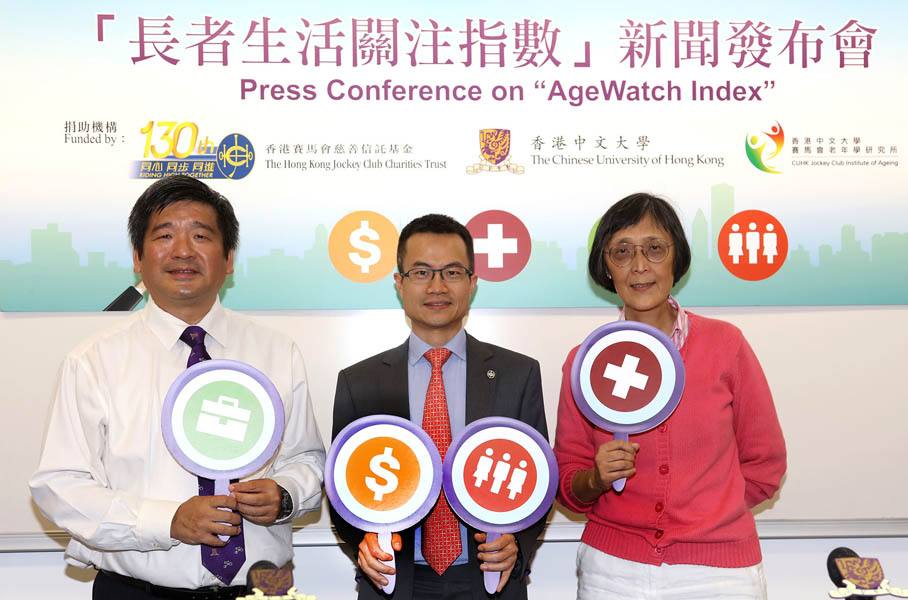
CUHK Jockey Club Institute of Ageing Ranks HK as 24th in the World in terms of Elderly Wellbeing
Based on the methods used to calculate the Global AgeWatch Index which measures the wellbeing of older people in the world, The Chinese University of Hong Kong (CUHK) Jockey Club Institute of Ageing, with support from The Hong Kong Jockey Club (HKJC) Charities Trust, revealed that Hong Kong ranked 24th among 97 countries or territories in 2014.
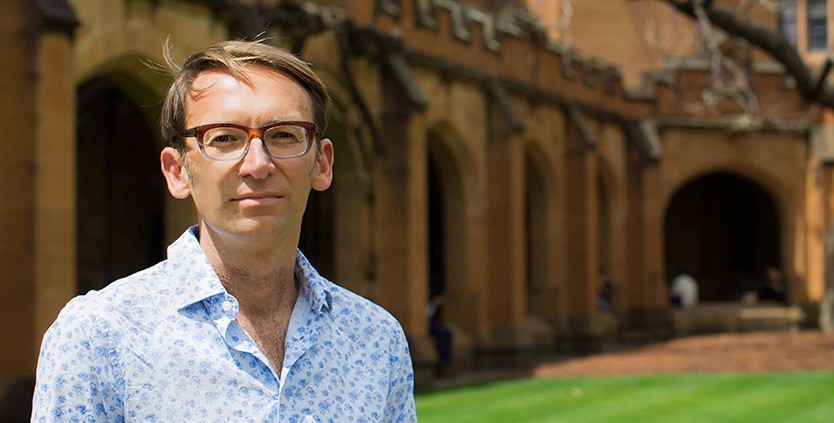
The mathematics of disease
Medical research and advanced mathematics are usually considered separate disciplines. But for one WUN collaboration, bringing maths and biology together could hold the key to understanding how cells in the human body signal to each other, and might potentially unlock the secrets of a range of non-communicable diseases.

WUN Welcomes New Members to the Partnership Board
In the coming months, WUN will see considerable transition in its Partnership Board, with leading figures that have helped shape WUN over the last ten years moving on from their respective universities. WUN thanks these individuals for their dedicated service and wishes them the best of luck in their future endeavours. We also look forward to welcoming their successors and continuing to build on mutual strengths.
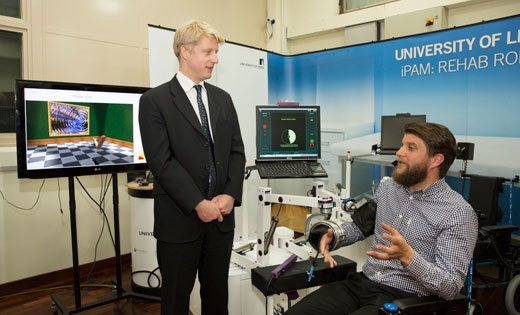
University of Leeds showcases pioneering research for Minister
The new Minister for Universities and Science, Jo Johnson MP, visited world-leading research facilities at the University of Leeds on Monday 15 June 2015. Mr Johnson toured the University’s Institute of Medical and Biological Engineering (iMBE), which has pioneered research in joint replacement technologies, regenerative medicine and tissue engineering, and the National Facility for Innovative Robotic Systems, one of the best equipped robot building labs in the world.
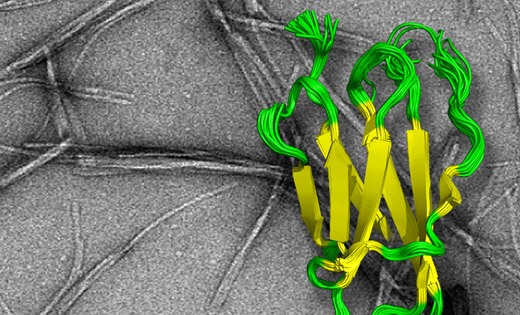
University of Leeds funds £17m structural biology lab
The University of Leeds is investing £17 million in a state-of-the-art laboratory for structural biology research.
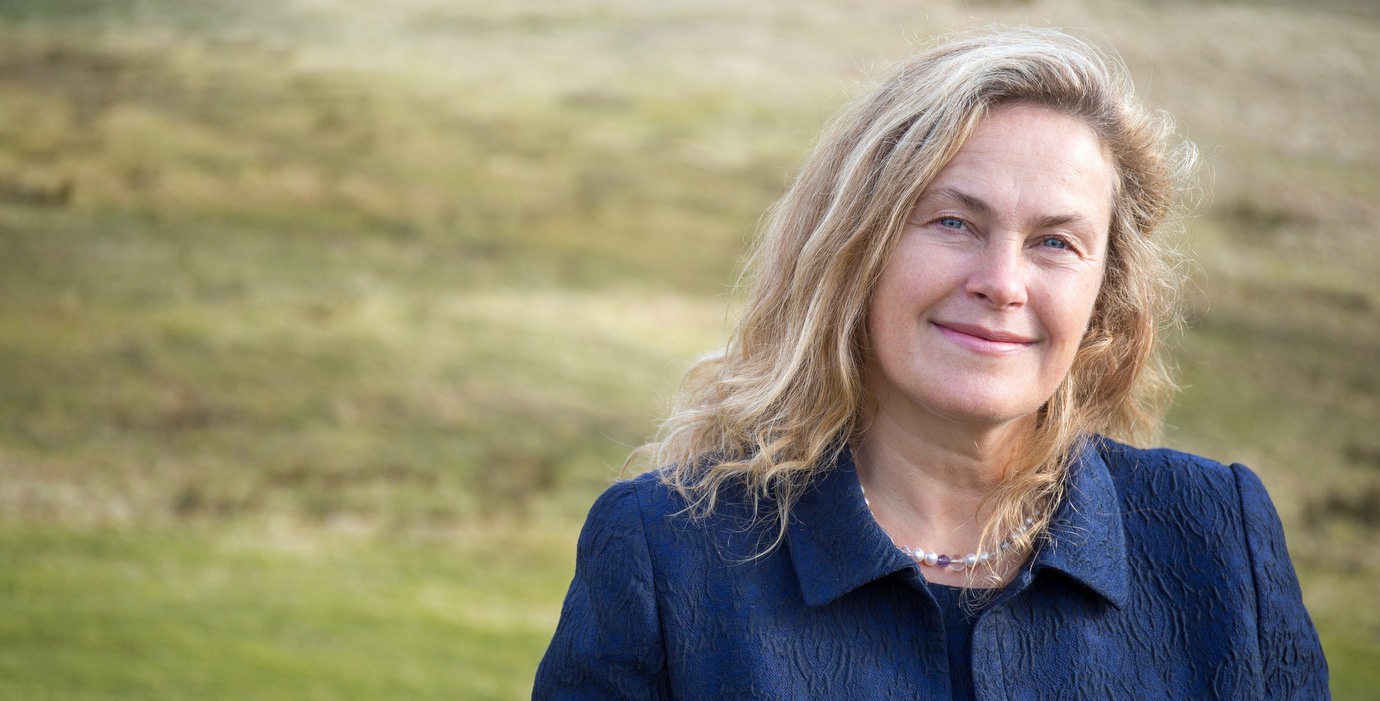
Preventing future pandemics
There has been a significant increase in asthma and allergies in high-income countries over the past few decades. These diseases are also increasingly prevalent in developing countries, which can substantially increase mortality rates since proper medication is often expensive. The causes of asthma and allergies are not well understood, and there is currently neither a cure or effective prevention. At the same time, parasitic infections have decreased and have known immunological effects.
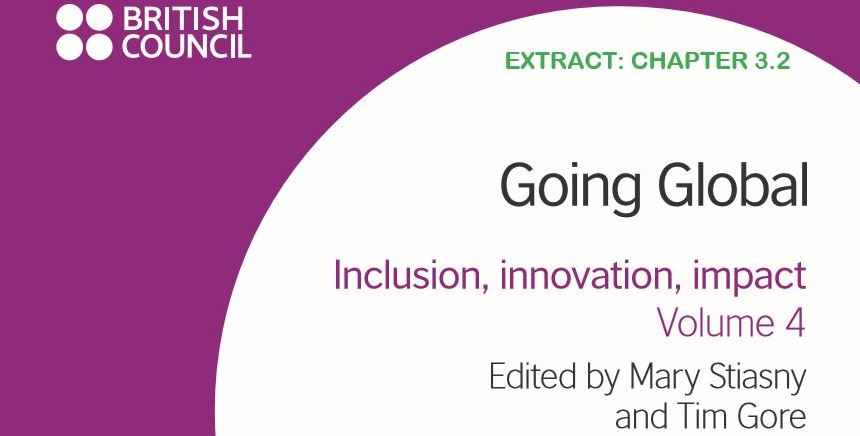
WUN a Voice in International Research and Education Reform
Today’s higher education landscape is changing rapidly as a direct result of globalisation and technological advancement. Key issues include access and affordability, public/private collaboration, technology’s impact on research, and the evolving roles of academics, students and administrators in light of increased internationalisation.

WUN Researcher Finds Future Funding Success
As the world’s population continues to rise, so does the increasing demand for water, energy and food. These three resources are inextricably linked and any shortage or disruption of one will significantly impact the other two. This is known as the water-energy-food nexus.
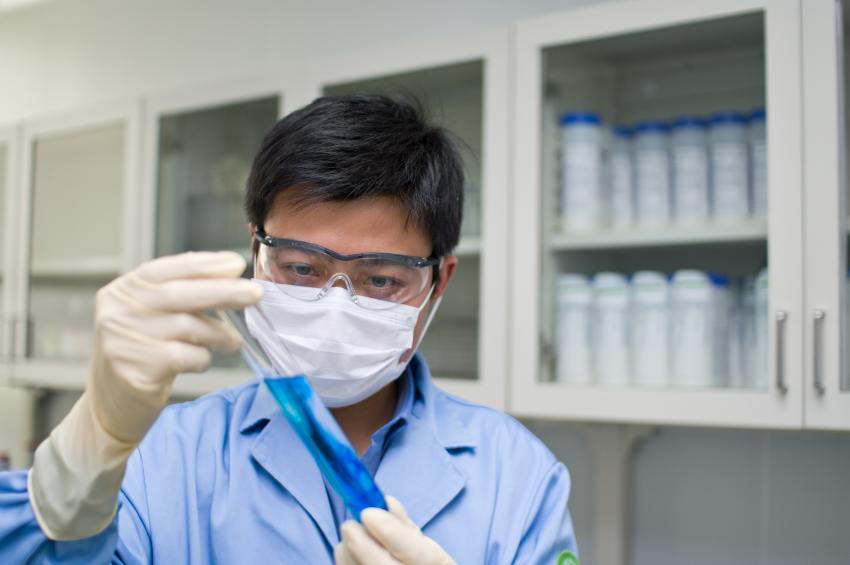
2015 Research Development Fund
WUN is pleased to announce the launch of the 2015 Research Development Fund (RDF). The RDF is an annual competitive grant scheme designed to foster innovative, high quality and sustainable research among member universities.
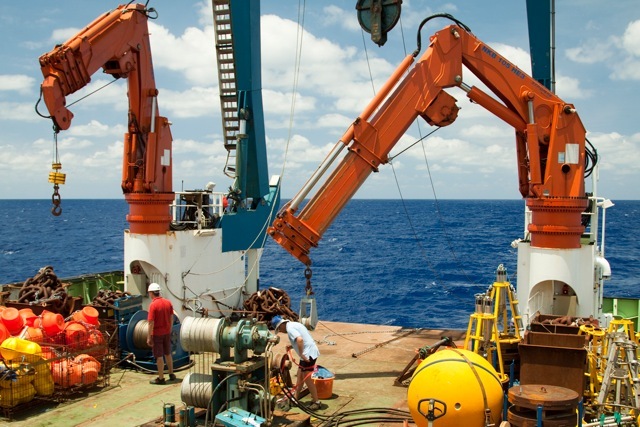
Global climate on verge of multi-decadal change
A new study, by scientists from the University of Southampton and National Oceanography Centre (NOC), implies that the global climate is on the verge of broad-scale change that could last for a number of decades.
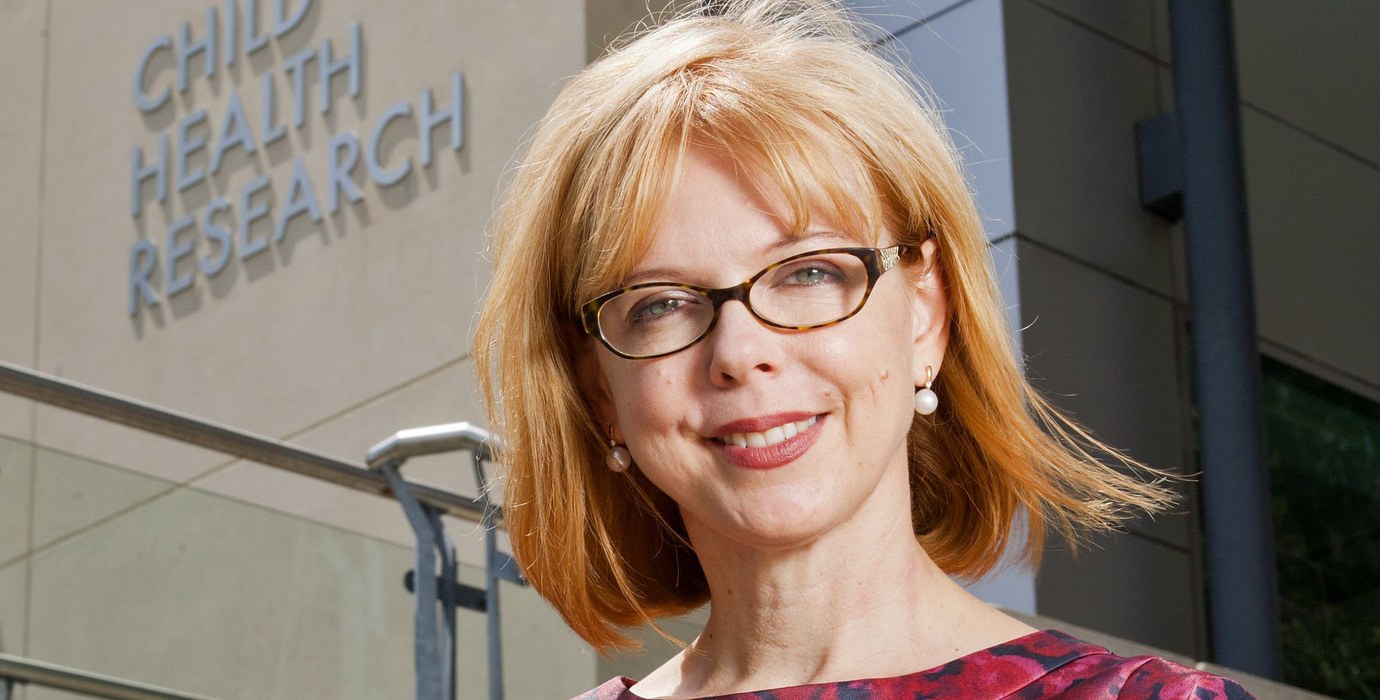
Early-life solutions to the modern health crisis
Non-communicable diseases (NCDs) such as allergies, asthma, cancer, diabetes and obesity are on the rise. Inflammation and immune dysregulation are common features of these conditions, often associated with environmental and lifestyle risk factors such as dietary patterns, environmental pollutants, microbial patterns and stress.
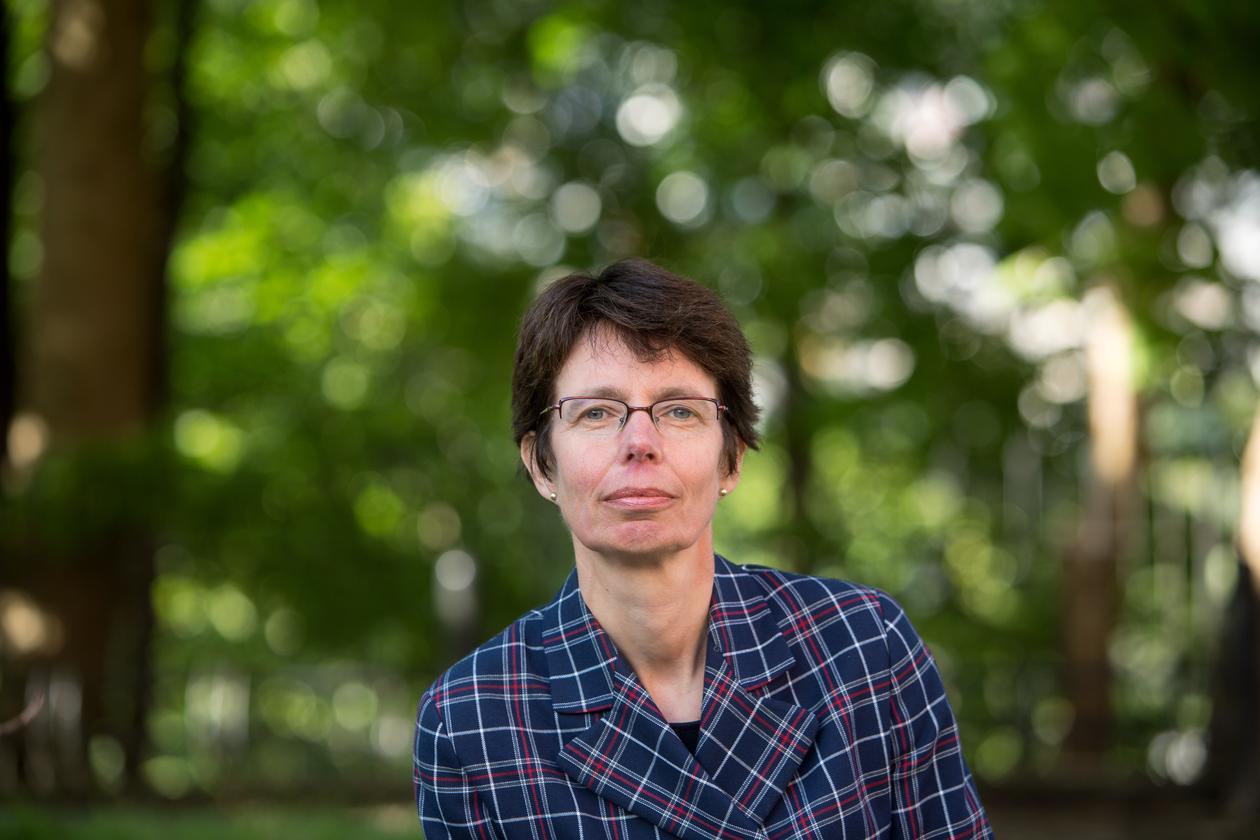
Vice rector of Bergen joins the WUN leadership
Anne Christine Johannessen takes over as chair of the Worldwide Universities Network’s Public Health Global Challenge Steering Group.
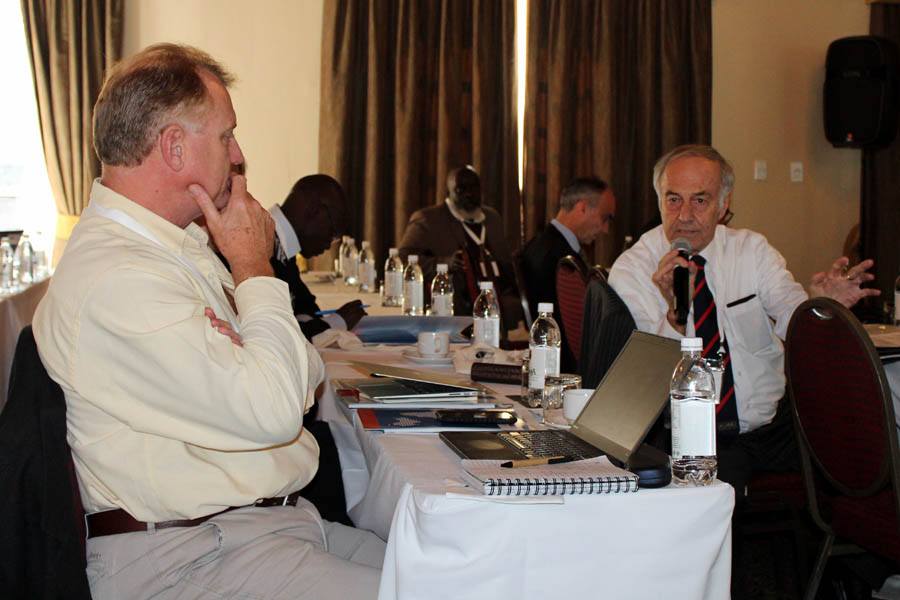
WUN Takes Part in New Research, Knowledge and Information Community
Last week, a new Research, Knowledge and Information Community (RKIC) was launched during ACU SARIMA Conference 2015 held in Johannesburg. The community is part of the Association of Commonwealth Universities’ (ACU) series of new special interest groups.

Maastricht University again ranked the world’s sixth best young university
Maastricht University (UM) has ranked among the top 10 in the Times Higher Education (THE) 100 Under 50 ranking for the third year running, making it the sixth best young university in the world.

Fellowship Opportunities at University of Leeds
The University of Leeds is currently accepting applications for visiting fellows through the Cheney Fellowships scheme.
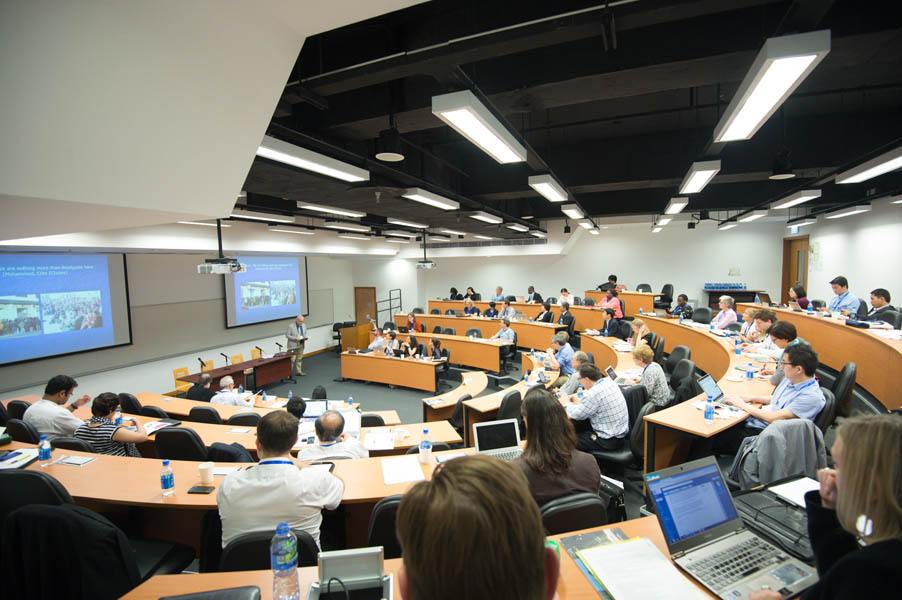
WUN Migration Conference 2015
The WUN Migration Conference 2015 explored the issue of migration through the lens of WUN’s four Global Challenges in a multi-disciplinary, multi-thematic and multi-cultural approach.
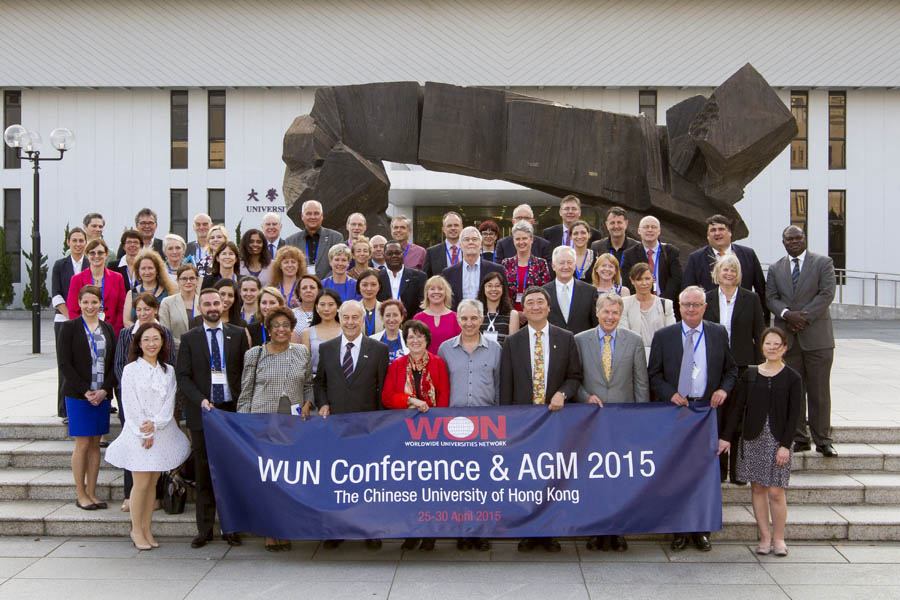
WUN Conference & AGM 2015
The annual WUN Conference and AGM 2015 took place at The Chinese University of Hong Kong over six days from 25-30 April.
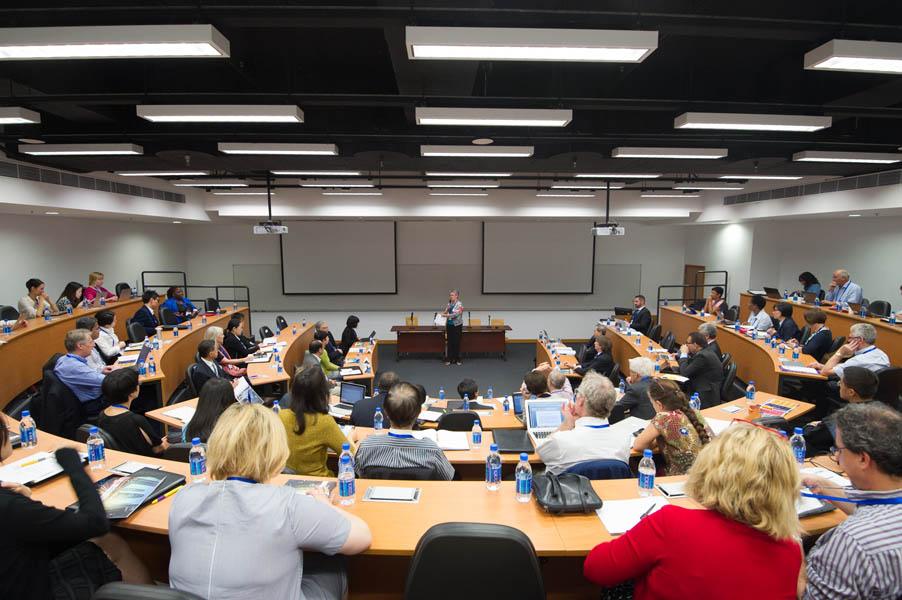
WUN Public Health Global Challenge Conference – Healthy Ageing 2015
The WUN Public Health Global Challenge Conference on Healthy Ageing focused on how lifecourse research might contribute to the promotion of healthy ageing.
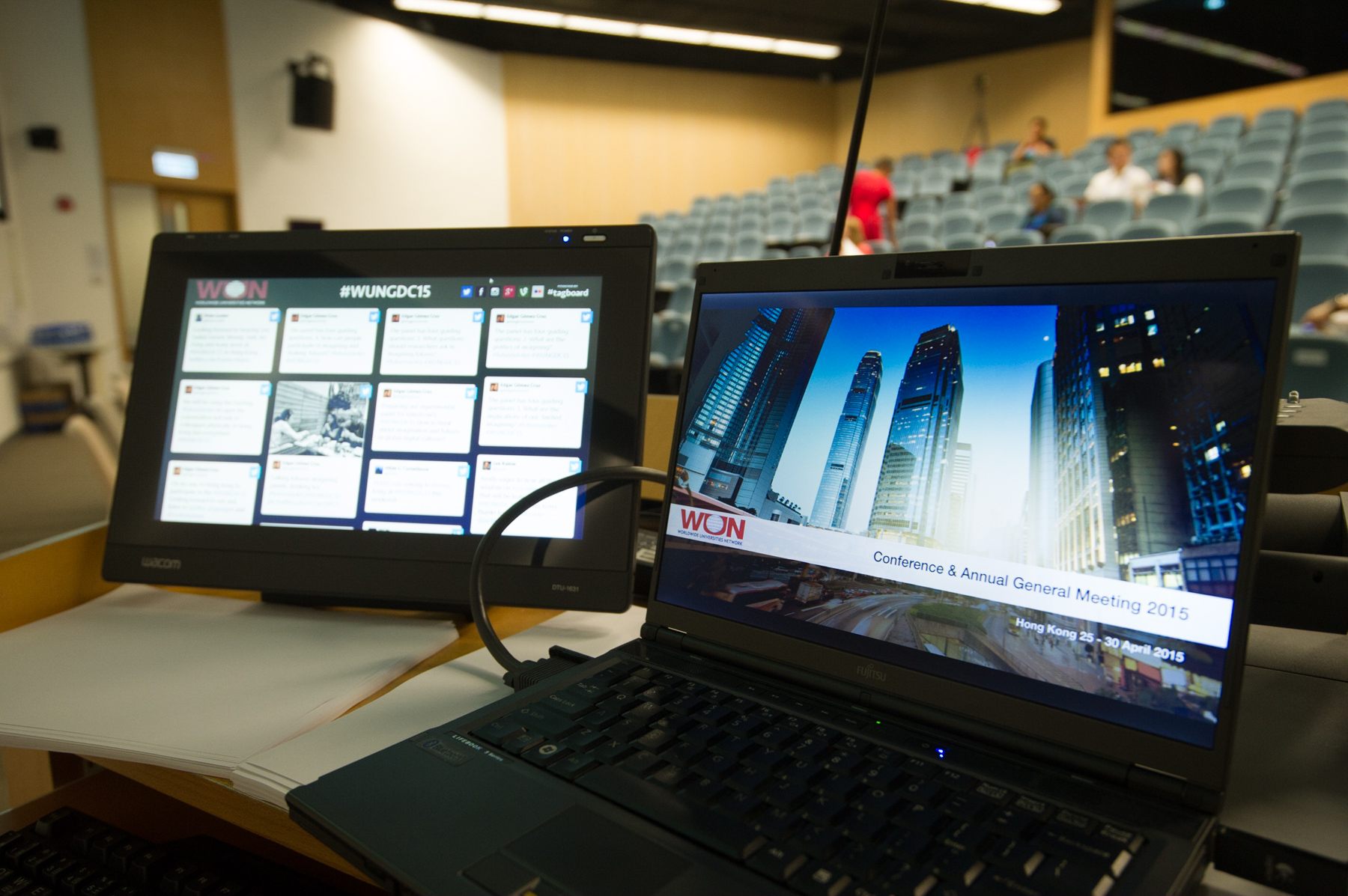
WUN Understanding Global Digital Cultures Conference 2015
The WUN Understanding Global Digital Cultures Conference explored the emergence and development of global digital cultures through a number of themes, including social media, cultural identity and politics.
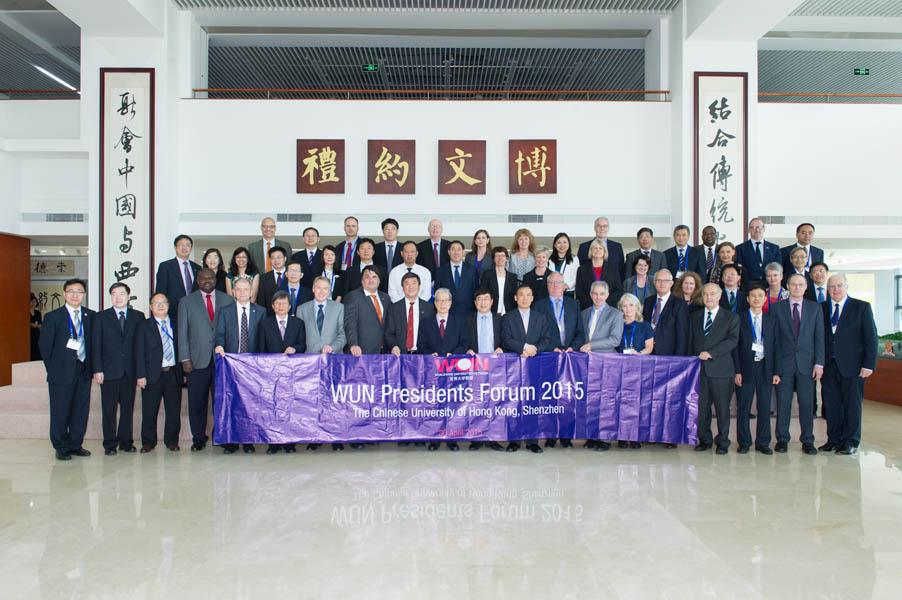
University Leaders Discuss Global Higher Education at Presidents Forum
Academic leaders from across WUN and local Chinese universities came together for the fifth annual WUN Presidents Forum at The Chinese University of Hong Kong, Shenzhen on 30 April.

The Fifth Annual WUN Presidents Forum to Convene at The Chinese University of Hong Kong, Shenzhen
The fifth annual WUN Presidents Forum will convene at The Chinese University of Hong Kong, Shenzhen on 30 April as part of the WUN Conference and AGM 2015.
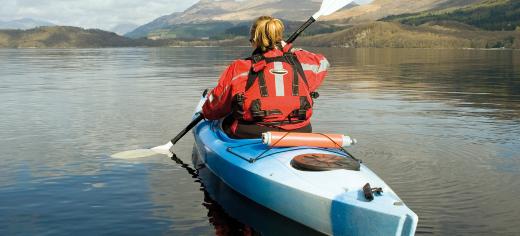
Getting into hot water: Preventing the spread of aquatic invasive species
Hot water could be the answer to stopping aquatic invasive species from “hitchhiking” around Britain on anglers’ and canoeists’ kit, according to a new study.
Invaders like the killer shrimp, zebra mussel and floating pennywort cause extensive environmental damage and have been previously reported to cost the British economy £1.7 billion per year to manage.
The new research, led by the University of Leeds and the Centre for Environment Fisheries and Aquaculture Science (Cefas), has identified that eight of the UK’s worst aquatic invasive species die if they are submersed in hand-hot water for just 15 minutes.
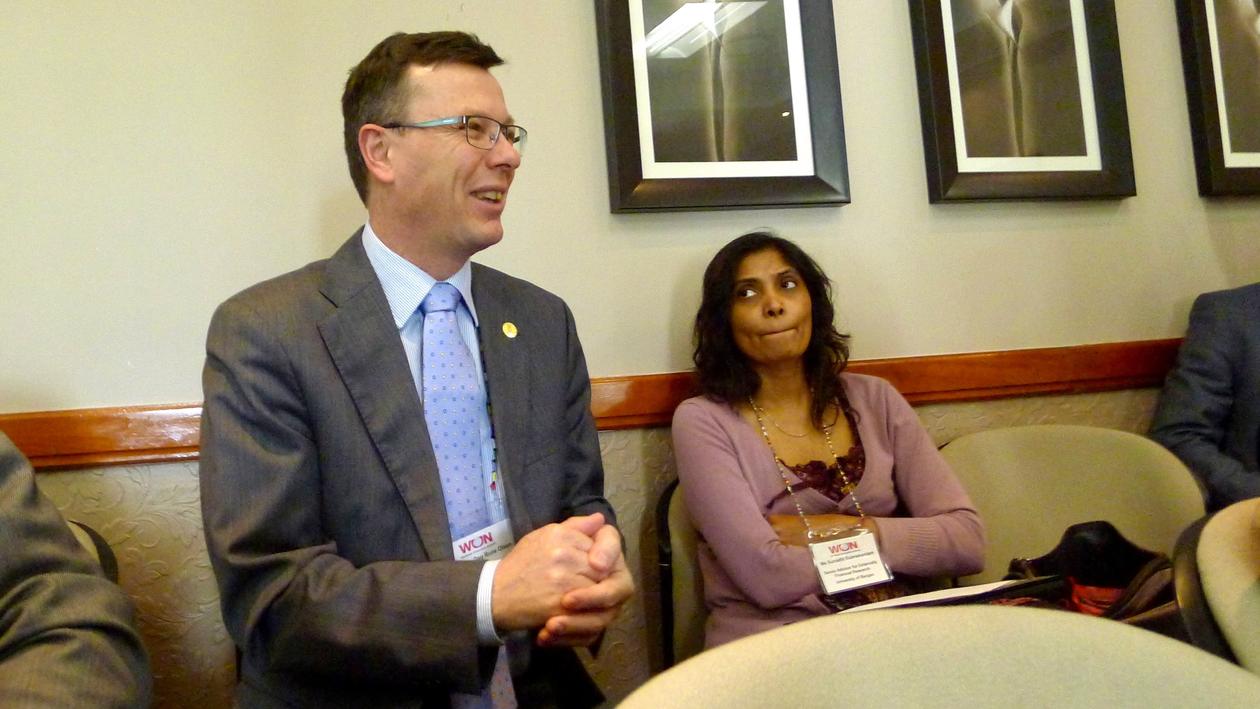
Rector encourages participation in international researcher network
The university leadership and several UiB researchers will participate at the Worldwide Universities Network (WUN) conference in April 2015. Dag Rune Olsen wants to make more UiB researchers aware of the opportunities offered by the network.

The WUN Conference & AGM 2015 Begins in Hong Kong
The WUN Conference and AGM 2015 begins today at The Chinese University of Hong Kong. Spanning six days, this year’s event will run from 25-30 April.
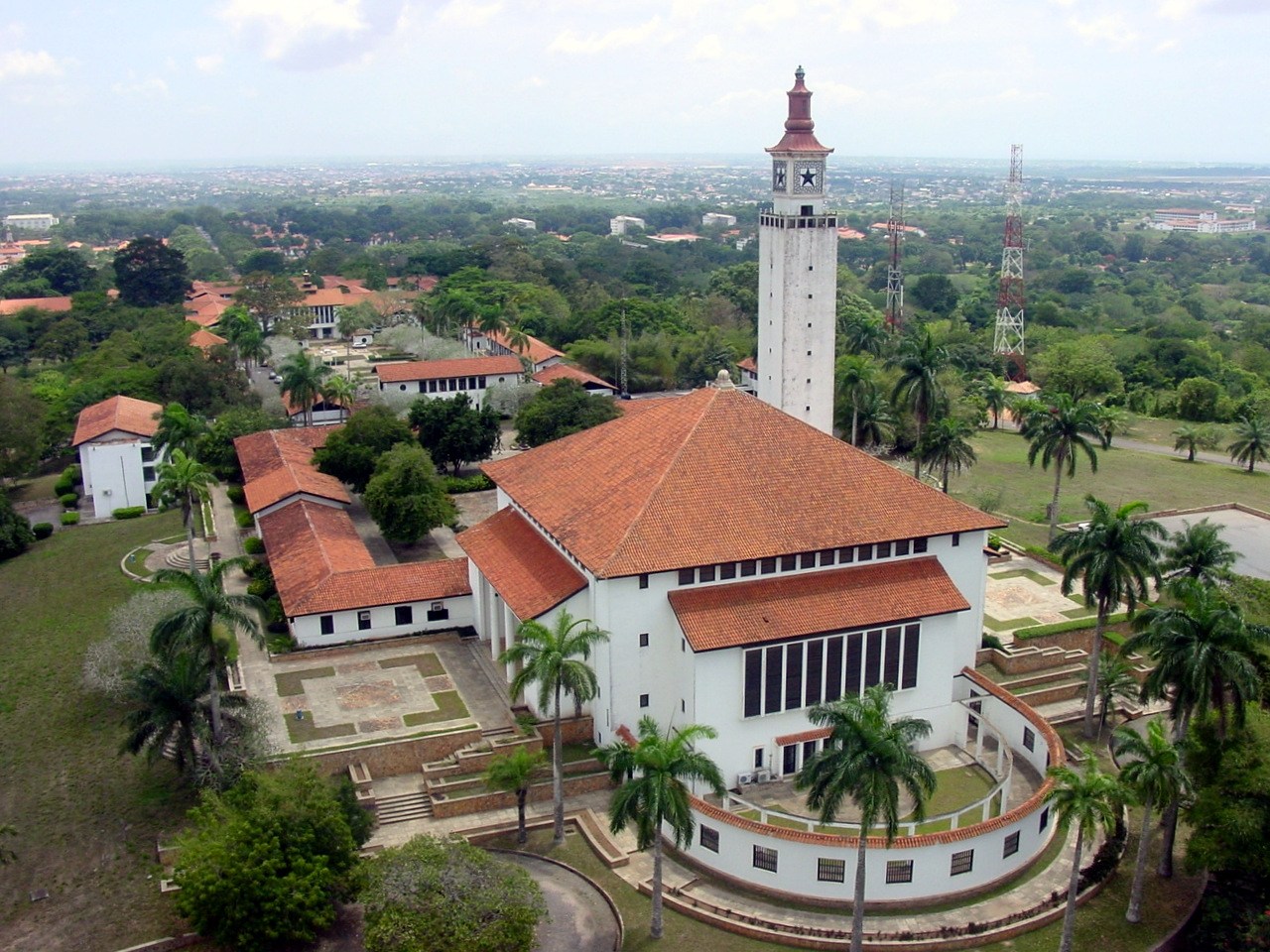
Worldwide Universities Network Extends Its Global Reach Into West Africa
The Worldwide Universities Network (WUN) has extended its global footprint into West Africa with the signing of the University of Ghana to its global network.

WUN Elects Vice Chair/Future Chair of the Partnership Board
The WUN Partnership Board Directors, which includes the 18 member University Presidents and the Executive Director, have elected the Vice Chair 2015-16 and Chair 2016-18 of the Board.
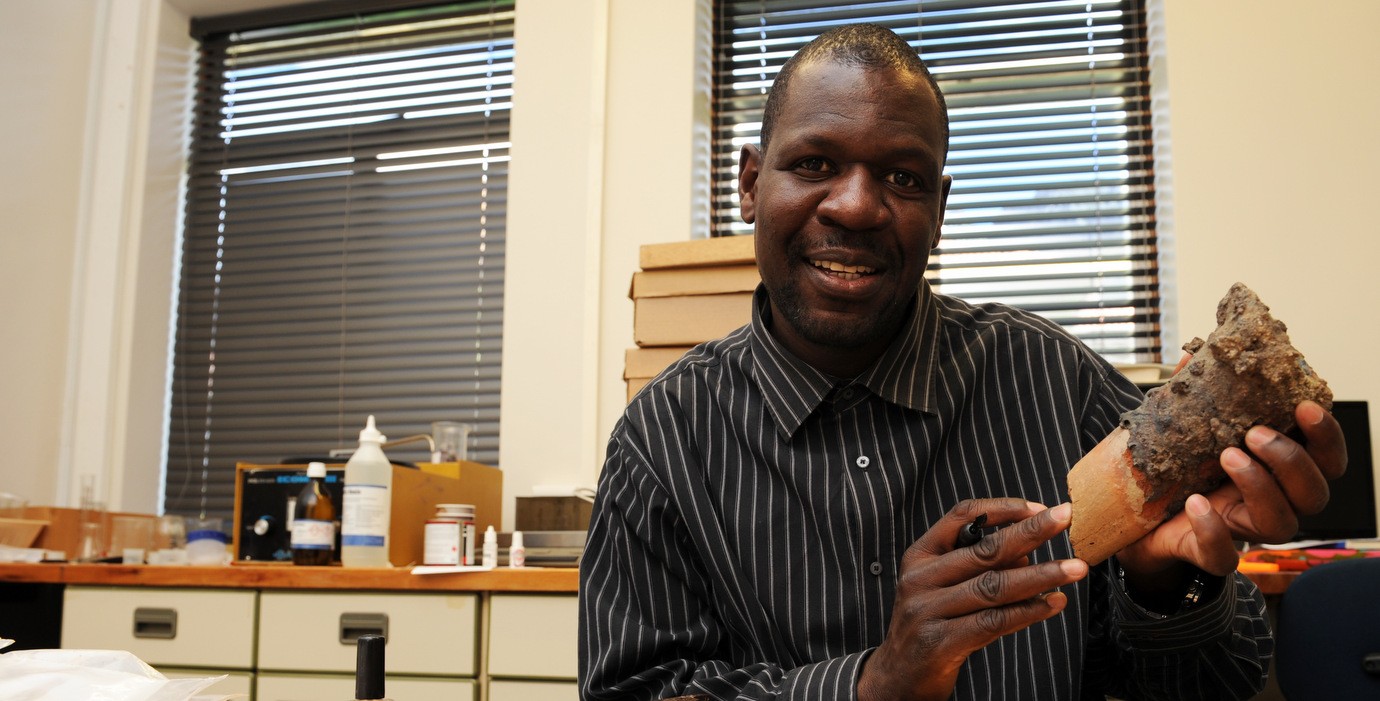
Uncovering 2,000 years of trade
As the world’s two most populous countries, India and China, battle it out for superpower status, the Indian Ocean is growing in prominence as a key geopolitical region. But human memory is short when compared with the history of humankind. Archaeological evidence has unearthed a number of insights indicating that this Indian Ocean connection has been a key region of cultural interaction and trade for approximately 2,000 years.

WUN to Take the Stage at Boao Forum for Asia
The Worldwide Universities Network (WUN) continues to be an influential voice in the global higher education landscape, offering its expertise to governments and policymakers alike. On 29 March, WUN Executive Director, John Hearn once again takes the stage at the Boao Forum for Asia to moderate a session on the future of education, which will feature an interactive discussion between senior leaders from universities around the world.
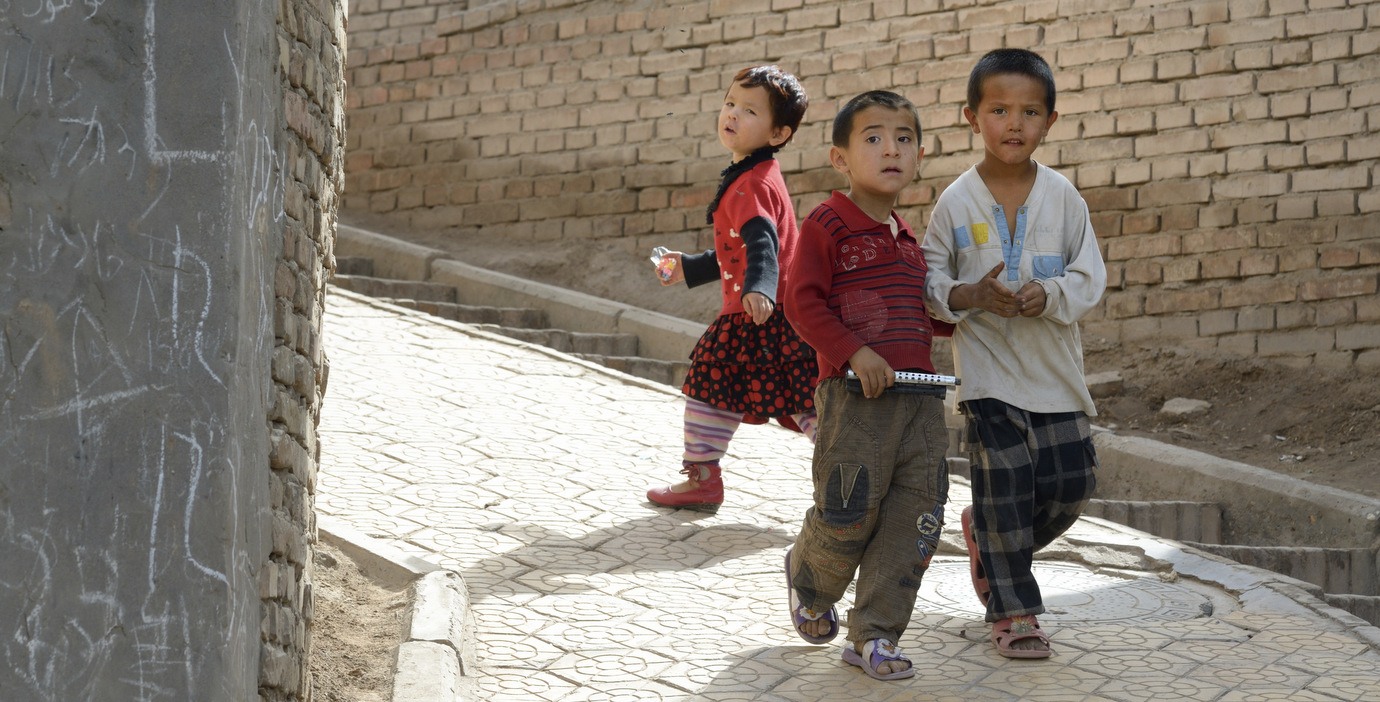
Research Mobility Programme Leads to Joint Success for PhD Students
The mission of WUN is twofold: to support international research collaboration and to foster the next generation of researchers. It appears to have accomplished both in regard to two PhD students who have recently published a joint paper in a special issue of the Journal of Asian Social Work and Policy Review.
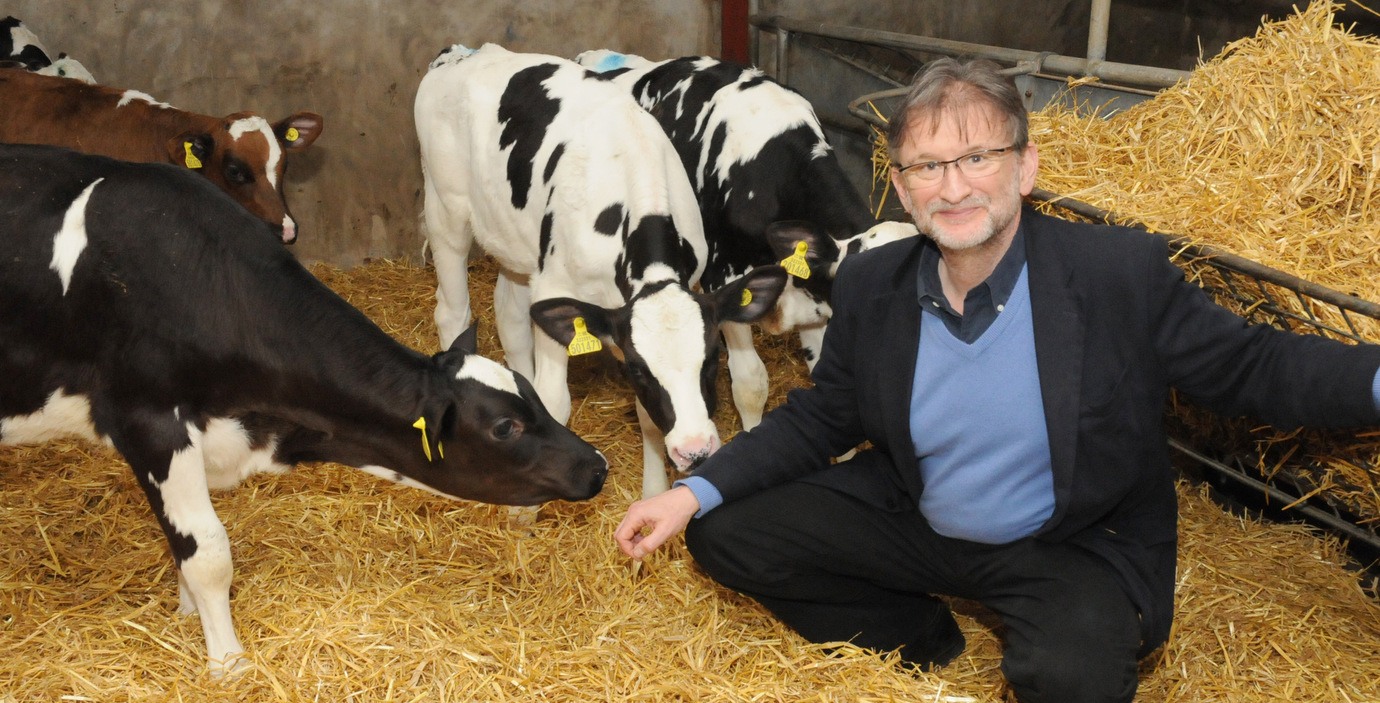
Steps to sustainable livestock
Global food security has become an increasingly important issue as climate change further reduces the amount of land available for farming. Coupled to this is the higher demand for animal protein as developing nations become wealthier, and a higher demand for cereals, making them less attractive as animal feed at both an economic and social level. This has resulted on a greater emphasis on ruminant farming (e.g. cattle and goats) because these animals are capable of converting feed unsuitable for human consumption into high-value protein.
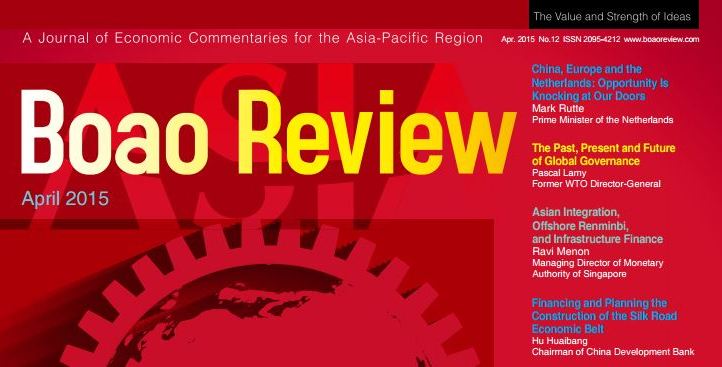
Building the WUN profile in China
Getting heard in the world’s most populous country can be a hard task. As China’s economy continues to drive forward and the nation’s political clout on the world stage grows, more and more international organisations recognise the importance of building a strong profile in China.
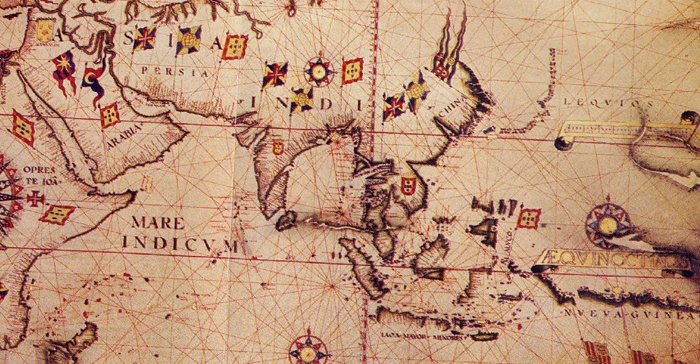
2,000 years of trade across the Indian Ocean
How did African plants and animals get to India? The Indian Ocean Archaeology Network is uncovering the long-term history of trade and interaction across this geopolitical corridor.

The tides they are a changin’
Scientists from the University of Southampton have found that ocean tides have changed significantly over the last century at many coastal locations around the world.

UMass expands its research horizons, joins the Worldwide Universities Network
The University of Massachusetts has taken a large step toward advancing its international research capabilities, announcing in January that it would become one of a handful of schools in North America to join the Worldwide Universities Network.

Meeting Europe’s big data skills gap
Researchers from the University of Southampton will play a major role in establishing a European Data Science Academy (EDSA) – a new online platform for training data scientists across Europe.

Sheffield Students to Participate in Research Mobility Programme (RMP)
Creating opportunities in international research and graduate education is at the core of WUN’s mission. Hence the Research Mobility Programme (RMP), which allows graduate students and early career researchers to spend a period of up to three months at other member institutions within the network. This not only allows them to take advantage of new facilities and resources, but also gives them experience working in different research cultures and an opportunity to establish international connections within their field.
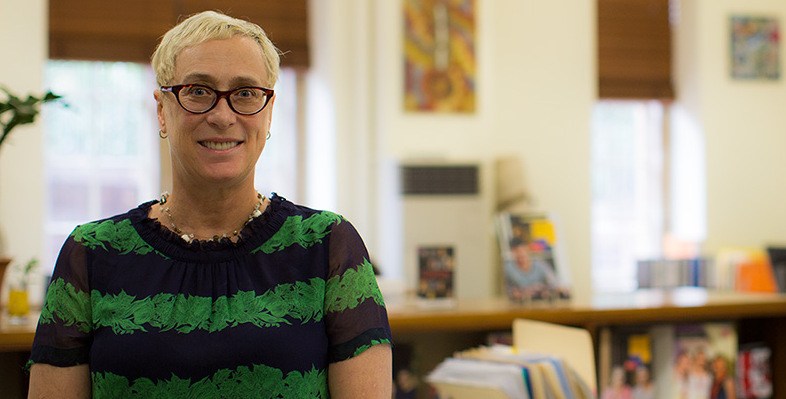
Indigenous research goes global
From climate change to improving public health, the world’s 350 million Indigenous people share a number of urgent challenges in common. Yet while many Indigenous groups are actively involved in forging solutions to the issues they face, there are surprisingly few organisations dedicated to disseminating and sharing their insights.

University of Bristol Pledges Commitment to Sustainable Ruminant Production
The Vice-Chancellor of the University of Bristol, Professor Sir Eric Thomas, officially signed the Global Farm Platform Statement of Intent on Tuesday 10 February 2015.

Research to prevent future pandemics
What is the connection between parasitic infections and allergies? This question is at the core of a new University of Bergen-led research project, which has received seed funding from the Worldwide Universities Network (WUN).

Evidence from warm past confirms recent IPCC estimates of climate sensitivity
New evidence showing the level of atmospheric CO2 millions of years ago supports recent climate change predications from the Intergovernmental Panel on Climate Change (IPCC).

The University of Basel joins Worldwide Universities Network
The Worldwide Universities Network (WUN) today announced that the University of Basel has joined its global research network, raising membership to 18 universities.
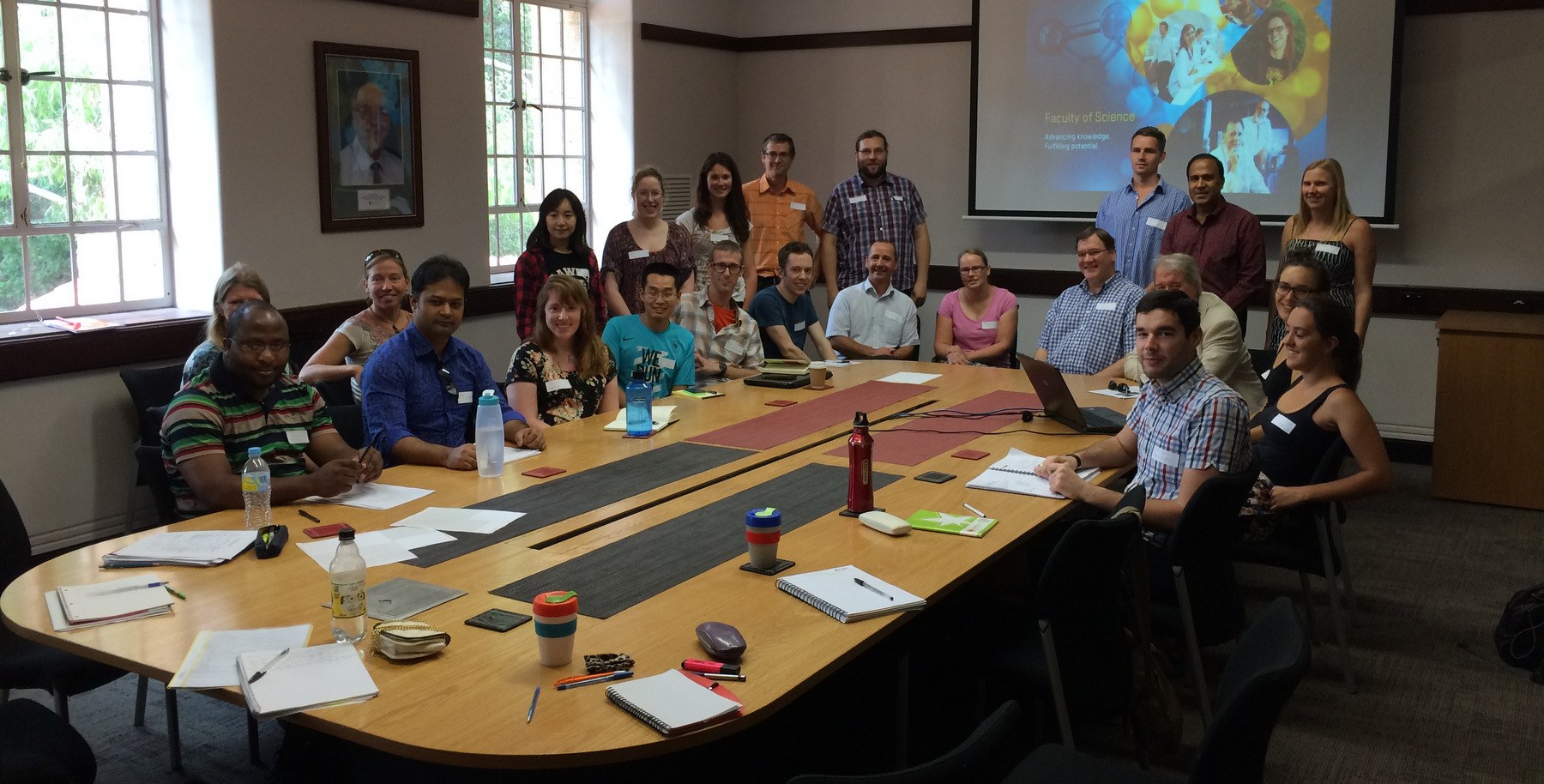
Inaugural WUN Summer School opens in Perth
Students from around the Worldwide Universities Network (WUN) gathered in Perth on Friday for the start of the Inaugural WUN Summer School at the University of Western Australia. The 20 students, representing seven countries and nine WUN universities, will spend the next two weeks sharing their global perspectives on responses to climate change.
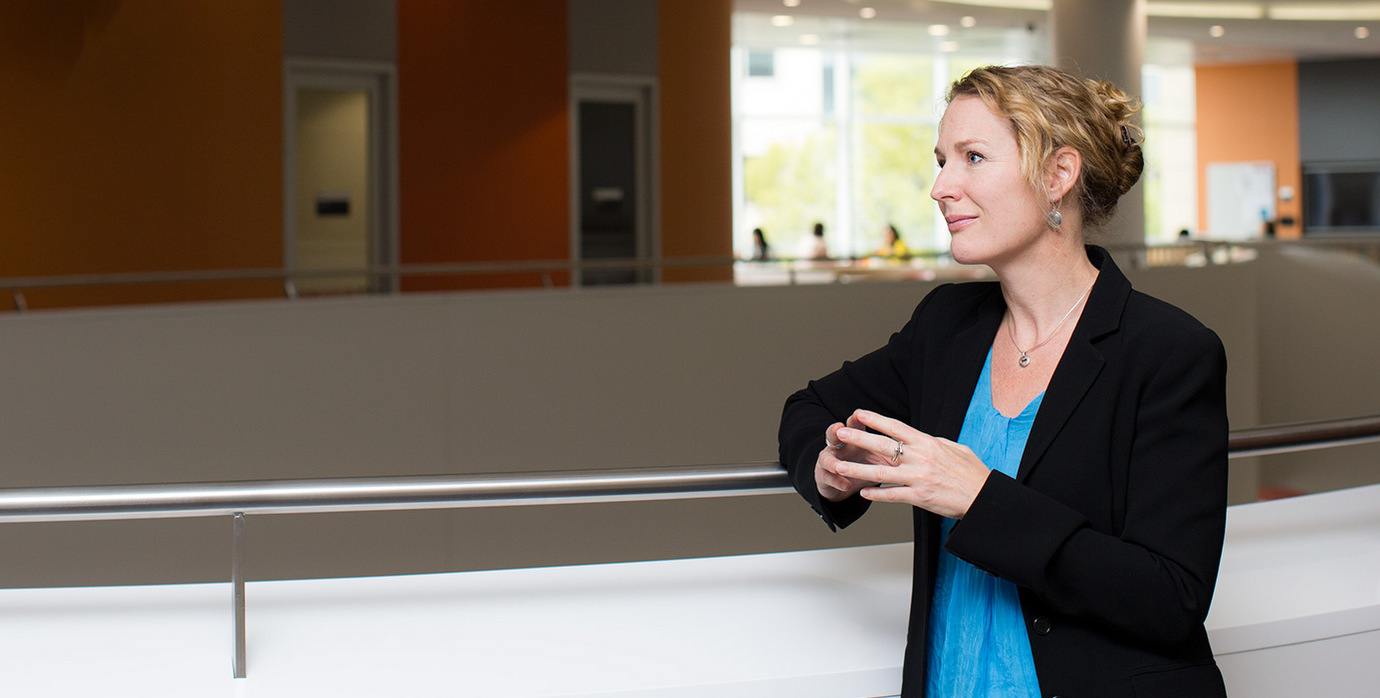
Creating the world’s first health literacy network
Health literacy is a relatively young field of research which focuses on people’s ability to understand health information and make decisions about their own health care. By helping patients to become more health literate, researchers hope to find ways to improve public health outcomes across low, middle and high-income countries.

Bergen and UMass Amherst Study Climate Dynamics in Greenland
Students and researchers from Europe and North America moved the lecture hall to Greenland to learn more about climate dynamics.

WUN welcomes the University Of Massachusetts Amherst
WUN Executive Director, Professor John Hearn announced today that The University of Massachusetts Amherst (UMass Amherst) joins its global research university network, lifting the number of members in the network to 17.

Improving global water services
One of the world’s most vital resources—water—is increasingly at the centre of debate. Its scarcity has intensified the movement toward water as a human right, yet private control over water utilities is simultaneously increasing. Although this tension is only just emerging, experts believe it will rapidly intensify as more investors seek access to fresh water in new countries.

What can the world learn from the way Germany confronted its past?
As the world prepares to mark 70 years since the liberation of Auschwitz, an international exhibition looking at how Germany confronted the Holocaust is unveiled.

Bristol academic to head Rothamsted Research farmland site
Professor Michael Lee, an expert in ruminant nutrition in the School of Veterinary Sciences, has been appointed Head of Site at North Wyke, Rothamsted Research’s site for grassland systems research.

Registration for second University MOOC now open at Bristol
The University of Bristol’s second Massive Open Online Course (MOOC), Cultural Studies and Modern Languages: An Introduction, launches on Monday 16 February 2015. Registration is now open on the FutureLearn website, with the course already reporting a high level of enrolment.

University of Bristol ranked top five for research in the UK
The University of Bristol is ranked among the top five institutions in the UK for its research, according to new analysis of the Research Excellence Framework (REF) 2014 which takes into account the percentage of staff submitted.

Bergen archaeologist featured in National Geographic
In the National Geographic article “Origin of Arts” published in January 2015, Professor Henshilwood and his groundbreaking research at the very tip of Africa, an hour’s drive from Cape Town, is featured in a very fascinating story about the invention of symbolic expression by the first Homo Sapiens and Neanderthals.
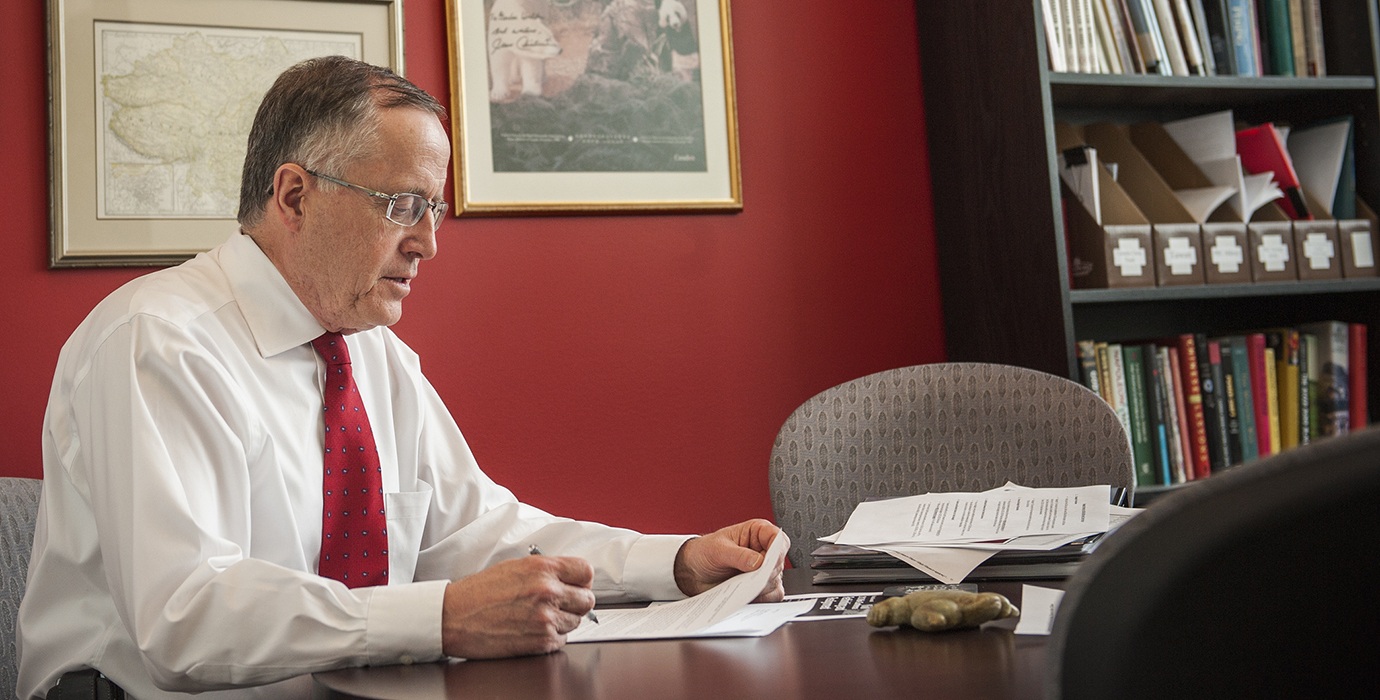
Understanding the impacts of Chinese foreign direct investment
Since the adoption of the “go global” strategy in the early 2000s, China’s total outward foreign direct investment (FDI) stock has increased from US$30 billion to US$610 billion in 2014. The Economist estimates that the flow of Chinese outward investment will be US$264 billion in 2017 alone. Although China remains a relatively new player in outward FDI, this rapidly expanding flow of capital represents a host of opportunities and challenges for policy-makers, businesses and researchers.

University of Southampton awarded £1M to address global marine and maritime challenges
The Southampton Marine and Maritime Institute (SMMI) at the University of Southampton has been awarded over one million pounds to develop students who will help tackle global marine and maritime challenges.

Green vegetables could improve heart’s efficiency, blood supply to organs and reduce diabetes risk
In three independent studies, scientists from the Universities of Southampton and Cambridge have identified how a simple chemical called nitrate, found in leafy green vegetables, can help thin blood ensuring oxygen can be delivered to all corners of the body efficiently. Reducing the thickness of blood may also decrease instances of dangerous clots forming and reduce the risk of stroke and heart attacks.

WUN supporting international research collaboration
The Worldwide Universities Network (WUN) announced today the results of the 2014 round of the annual Research Development Fund, marking a direct investment into international, interdisciplinary research of £165,671 across 17 projects.

Southampton to join forces with Europe and Japan to build high-speed data networks
The University of Southampton is to join forces with the European Commission and the Japanese government to develop new technologies for high-speed networks in densely populated user areas.
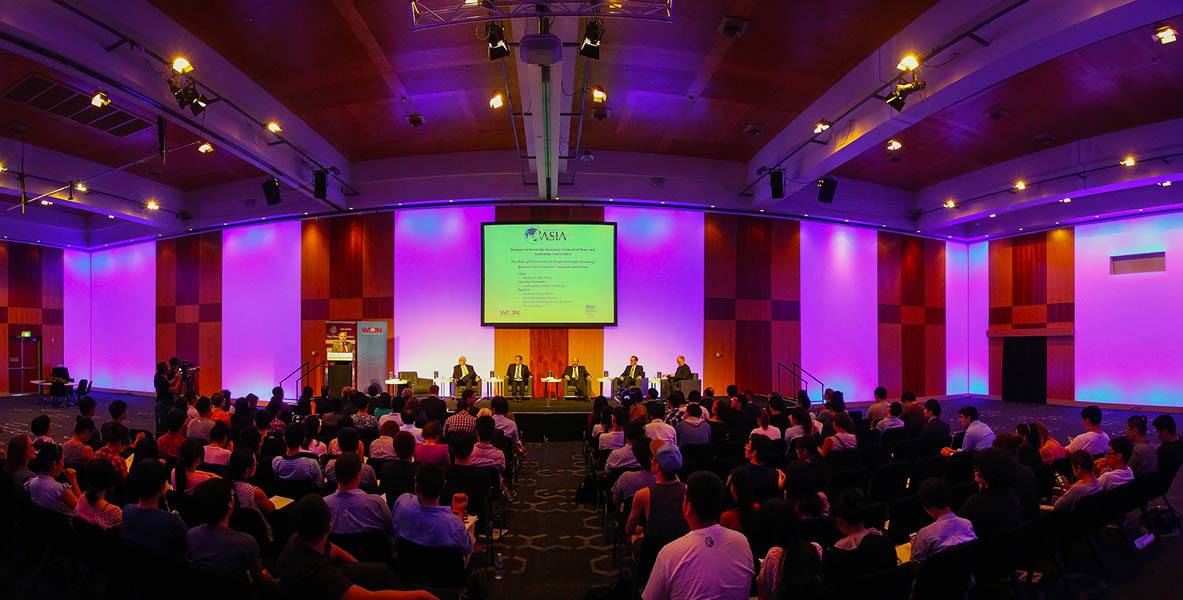
Boao Forum Workshop
Senior leaders from Australian universities came together to discuss Australia-China higher education in a workshop held at Australian Technology Park in Sydney on Tuesday.

New study explains the role of oceans in global ‘warming hiatus’
New research shows that ocean heat uptake across three oceans is the likely cause of the ‘warming hiatus’ – the current decade-long slowdown in global surface warming.

Research confirms how global warming links to carbon emissions
A team of researchers from the universities of Southampton, Bristol and Liverpool have derived the first theoretical equation to demonstrate that global warming is a direct result of the build-up of carbon emissions since the late 1800s when man-made carbon emissions began. The results are in accord with previous data from climate models.
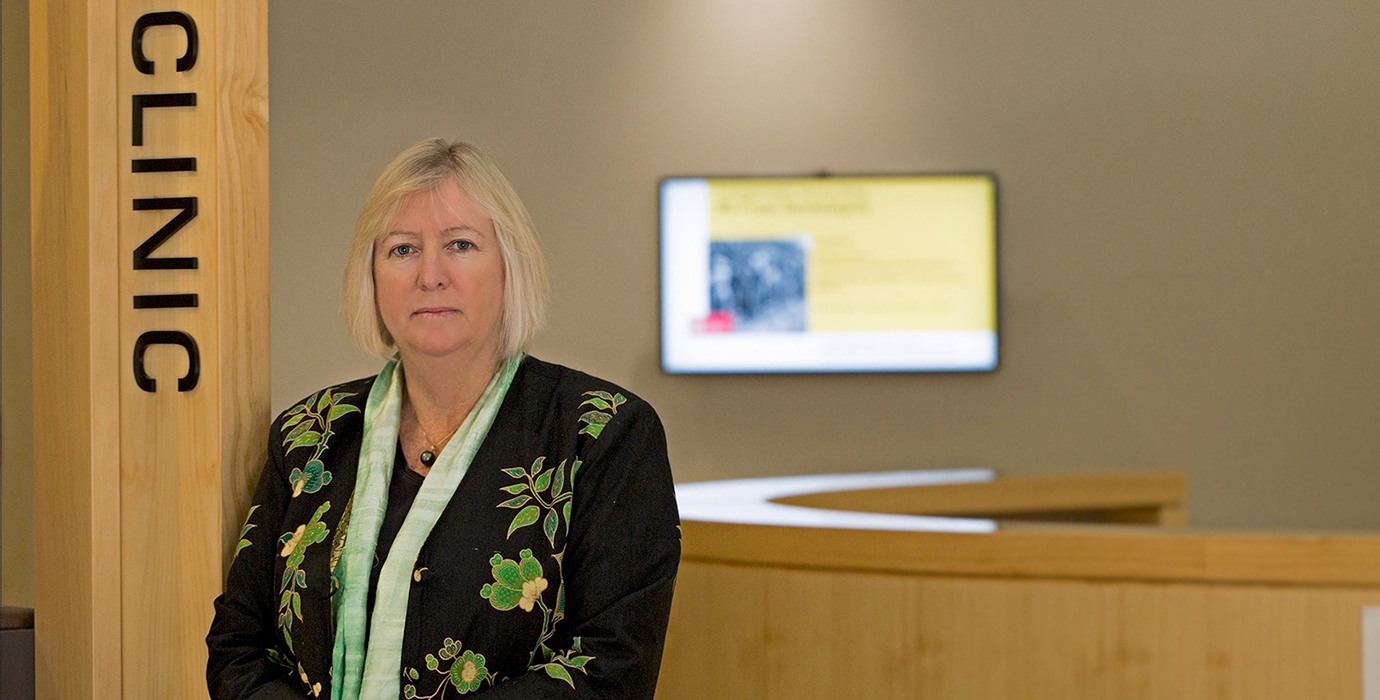
Building better health systems
Caring for the growing number of patients with non-communicable disease is a challenge faced by policy-makers and healthcare providers across the world. To tackle the issue, a team of WUN experts in healthcare system planning have come together to share their unique insights from across Canada, the UK and Australia.

Ancient marine algae provides clues of climate change impact on today’s microscopic ocean organisms
A study of ancient marine algae, led by the University of Southampton, has found that climate change affected their growth and skeleton structure, which has potential significance for today’s equivalent microscopic organisms that play an important role in the world’s oceans.

Stroke damage mechanism identified
Researchers have discovered a mechanism linked to the brain damage often suffered by stroke victims—and are now searching for drugs to block it.
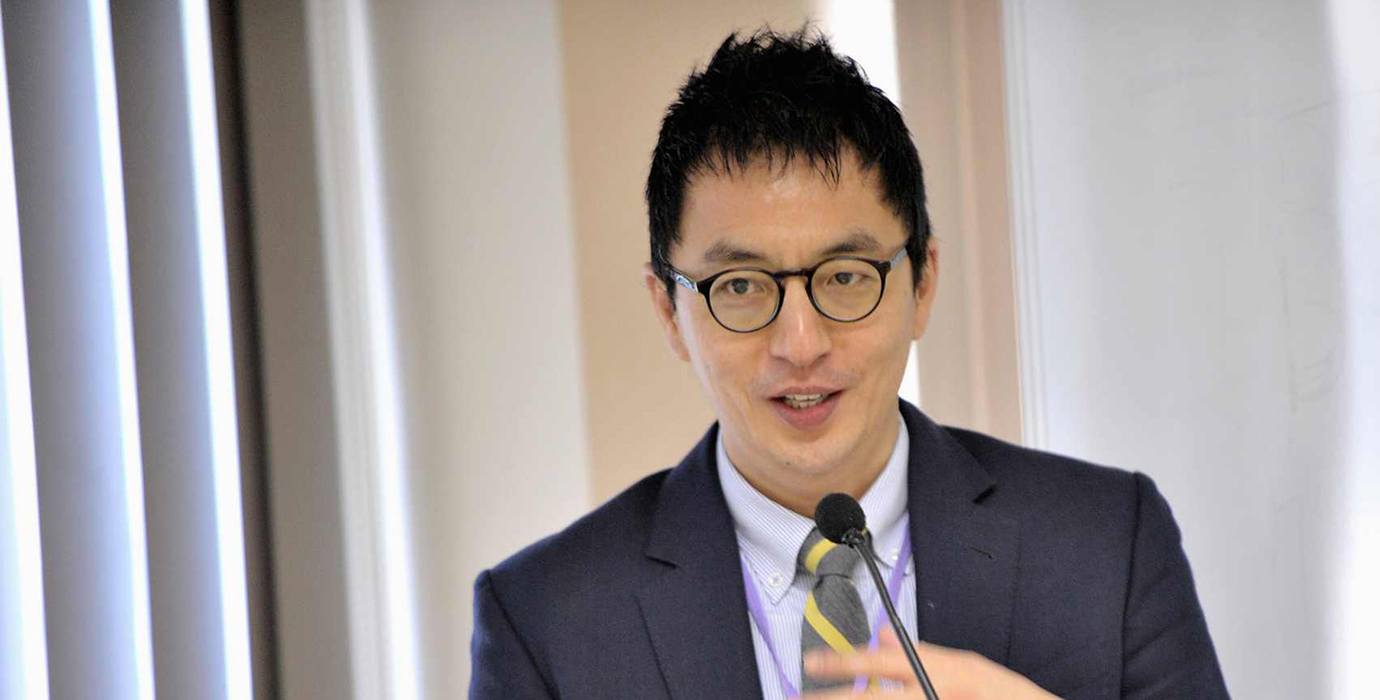
Autism: resources and challenges
Autism Spectrum Conditions (ASCs) are one of the most important emerging health concerns. Approximately one in every 100 children is diagnosed with an ASC, which includes autism, Asperger syndrome and atypical autism.

Quantum leap as Southampton joins £120 million network to develop future quantum technology
The University of Southampton is part of a new £120 million national network of Quantum Technology Hubs, that will put its cutting-edge research in quantum sensors at the forefront of future technologies to drive the UK’s economy.

Boao Forum Workshop: Australian Leaders to Discuss Innovation in Higher Education
Senior leaders from Australian universities will come together to discuss innovation in higher education at a workshop held in early December at Australian Technology Park in Sydney.
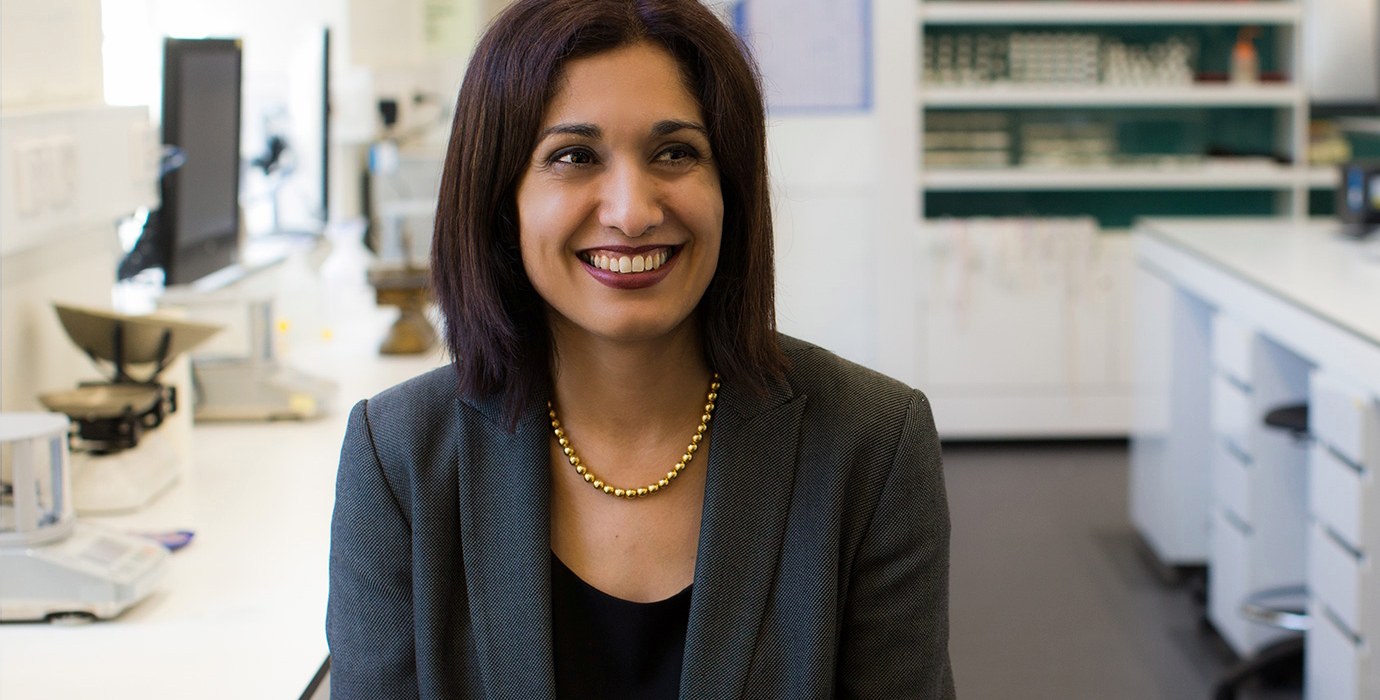
Making the most of medicine
While most medical research focuses on the quest for new treatments, much less attention is paid to how we can make better use of medicines that already exist. Yet up to half of patients don’t take long-term medicines as prescribed, which can result in serious harm or even death.

ACDC visits Greenland
The Advanced Climate Dynamics Courses (ACDC) are yearly international research training schools for PhD students organized by the Bjerknes Centre for Climate Research in Bergen in collaboration with the Norwegian Research School in Climate Dynamics (ResClim).

Work to improve children’s health should start before mother becomes pregnant
Researchers from the Medical Research Council Lifecourse Epidemiology Unit, University of Southampton, believe the key to making future generations healthier could lie before the mother becomes pregnant.

Past climate change and continental ice melt linked to varying CO2 levels
Scientists at the Universities of Southampton and Cardiff have discovered that a globally warm period in Earth’s geological past featured highly variable levels of CO2.

Leeds embarks on biggest ever academic recruitment drive
The University of Leeds is offering 250 new opportunities for academic researchers in its biggest ever recruitment drive. A £100m investment, “250 great minds” (250greatminds.leeds.ac.uk), launched on Wednesday 1 October and will recruit 250 early career academic fellows over the next three years.

Working together on big data
Every day more than 2.5 quintillion bytes of data are created, and its growing every day. What are the possibilities that could be unleashed by analysing and applying that data to solve some of the globe’s most pressing challenges?

Third of countries struggling to meet the needs of ageing population
People around the world are living longer, but social policies to support their wellbeing in later life are lagging behind in many countries. This is according a new report by HelpAge International, developed in partnership with the University of Southampton.

Scientists take part in first ever probe on seabed CO2 stores
Scientists from the University of Southampton and National Oceanography Centre, Southampton contributed to the world’s first ever sub-sea carbon dioxide impact, detection and monitoring experiment relevant to Carbon dioxide Capture and Storage (CCS) in sub-seabed storage reservoirs.

Scientists develop tool to help communities stay environmentally and socially ‘healthy’
Geographers at the University of Southampton have developed a new way to measure the ‘health’ of poor regional communities. They aim to improve the wellbeing of people by guiding sustainable development practices to help avoid social and environmental collapse.

Study tracks global sea levels over the last five ice ages
Land-ice decay at the end of the last five ice-ages caused global sea-levels to rise at rates of up to 5.5 metres per century, according to a new study.

Thinking forward through the past
A major international research project led by the University of Leeds has attracted significant funding from the AHRC to shine new light on forgotten works by Jewish artists.
Performing the Jewish Archive has been awarded £1,534,076 by the Arts and Humanities Research Council (AHRC) under its Care for the Future: Thinking Forward Through the Past theme.

Women and health professionals spark new cycle of improving maternal and newborn health
Demand for better care by women linked with the expansion of basic services, rather than political pressure, has helped to improve midwifery services in low to middle-income countries, according to international research involving the University of Southampton.

WUN Newsletter – August 2014
Read the August 2014 edition of the WUN Newsletter.

New virtual global Centre on Law and Social Transformation in Bergen
A new virtual global Centre on Law & Social Transformation was opened on 22 August as a collaborative effort between the University of Bergen and the Chr. Michelsens Institute in Bergen

Increase in reported flooding a result of higher exposure
A rise in the number of reported floods in the UK over the past 129 years can be related to increased exposure, resulting from urban expansion and population growth, according to new research by the University of Southampton.

Academy of Community Research launched by the University of Leeds
A new academy has been launched by the University of Leeds’ specialised Care-Connect Sector Hub. The academy is a national programme of support to assist communities to gain a greater understanding of research through learning, provided by experts at the University.

Leeds University’s new partnership will boost life science businesses in the North
The University of Leeds and Bionow have agreed a formal collaboration to support the UK life science sector in the North. Built around the University’s world-class strength in interdisciplinary biomedical research and Bionow’s industry network of over 1,000 biomedical companies, the partnership will offer opportunities across three key areas; collaboration; employment support and building influence.

Innovation: the key to business success
The University of Leeds has developed a three week online course exploring commercial innovation, how innovations emerge and, how ideas become reality.

Crunching Numbers: WUN Big Data Workshop
The Data Science (Big Data) Exploratory Workshop will be hosted by the University of Rochester on 22 August 2014, and will provide an opportunity to explore where partners’ interests are sufficiently aligned to warrant deeper collaboration. WUN members will explore where WUN has the greatest impact in this burgeoning field of scientific exploration.

Harmful drinkers would be affected 200 times more than low risk drinkers if a Minimum Unit Price was
A new study of liver patients by the University of Southampton shows that a Minimum Unit Price (MUP) policy for alcohol is exquisitely targeted towards the heaviest drinkers with cirrhosis.

Study finds Europe’s habitat and wildlife is vulnerable to climate change
New research has identified areas of the Earth that are high priorities for conservation in the face of climate change.

Rising temperatures hinder Indian wheat production
Geographers at the University of Southampton have found a link between increasing average temperatures in India and a reduction in wheat production.

Researchers develop a Wikipedia of fact-checking during natural disasters
ew web application for gathering evidence during natural disasters, which will enable more effective emergency response. Accurate information can be life-saving in extreme situations, such as earthquakes and tsunamis. However,

Map reveals worldwide impacts of climate change
Scientists from the University of Southampton have helped to create a new map, which shows the impact climate change could have on the whole planet by the end of the century, if carbon emissions continue to increase.

Bergen archaeologist among world’s most cited researchers
Professor Christopher Henshilwood from the University of Bergen is already a holder of an advanced grant from the European Research Council. Now he has also been named as one of the most cited researchers in the world. According to the Highly Cited Researchers 2014 ranking, collected by the media and publishing company Thomson Reuters, he is among the world’s top one per cent of most cited researchers in the social sciences and the humanities.

LifeLab gets royal seal of approval
The University of Southampton welcomed HRH The Countess of Wessex to LifeLab on Friday 27 June to officially open the facility that aims to empower school students to take more control over their health.

Green planning needed to maintain city buildings
Green spaces in towns and cities need extra consideration as they may be damaging buildings in the area, according to new research from the Universities of Southampton and Surrey.

Southampton based business incubator named number one in Europe
The University of Southampton based SETsquared incubation centre has been named the number one university business incubator in Europe and second best in the world.

Self-repairing mechanism can help to preserve brain function in neurodegenerative diseases
New research, led by scientists at the University of Southampton, has found that neurogenesis, the self-repairing mechanism of the adult brain, can help to preserve brain function in neurodegenerative diseases such as Alzheimer’s, Prion or Parkinson’s.

WUN building bridges for international student mobility
Representatives from WUN international exchange and study abroad offices met at the 2014 NAFSA Conference in San Diego, USA.

Rise and fall of prehistoric penguin populations charted
A study of how penguin populations have changed over the last 30,000 years has shown that between the last ice age and up to around 1,000 years ago penguin populations benefitted from climate warming and retreating ice. This suggests that recent declines in penguins may be because ice is now retreating too far or too fast.

New sensor to detect harmful bacteria on food industry surfaces
A new device designed to sample and detect foodborne bacteria is being trialled by scientists at the University of Southampton.

University of Southampton professor receives top honour from Royal Geographical Society
John Dearing, Professor of Physical Geography at the University of Southampton, has been given the prestigious Murchison Award (2014) by the Royal Geographical Society (RGS).

Professor honoured for research which has transformed the debate on high streets
The University of Southampton’s Professor Neil Wrigley has been presented with the Outstanding Impact in Business award by the Economic and Social Research Council (ESRC) for his research which has transformed thinking on food retail development and the future of UK high streets.

University of Southampton features in national campaign to highlight value of universities
The University of Southampton is featuring in a UK-wide campaign next week to highlight the value and importance of university research to our everyday lives.

WUN fosters the next generation of researchers
WUN announced it will fund sixteen young researchers from member institutions to spend periods of up to three months at partner institutions across the network through its Research Mobility Program (RMP).

Deep sea fish remove one million tonnes of CO2 every year from UK and Irish waters
Deep sea fishes remove and store more than one million tonnes of CO2 from UK and Irish surface waters every year, according to a new study led by the University of Southampton.

2014 Research Development Fund
WUN is pleased to announce the launch of the 2014 Research Development Fund.

WUN workshop explores China’s relations with Latin America
On 21st May 2014, the WUN Global China Group, together with the University of Chicago and the University of Sydney hosted a forum entitled “Feeding the masses: China-Latin America agriculture connections through time.”

WUN Newsletter – May 2014
WUN Newsletter – May 2014

Fruit fly research to provide new insight into our body clock and its biological impact
New research at the University of Southampton into how animals keep time through their internal circadian rhythms could help us understand why we sleep and how we cope with jet lag.

University of Southampton scientists honoured
Three scientists from the University of Southampton have been recognised for their contribution to the advancement of medical science by election to the Fellowship of the Academy of Medical Sciences.

Experts call for urgent defence of deep-ocean
A University of Southampton oceanographer is working with experts from around the globe to warn against lasting damage to the deep-ocean, caused by fishing, oil and gas development, industrial-scale mining, waste disposal and land-based pollution.

Sheffield: No 1 for student experience
The University of Sheffield is pleased to announce that: we have been voted number one for student experience!

Ground breaking hip and stem cell surgery in Southampton
Doctors and scientists in Southampton have completed their first hip surgery with a 3D printed implant and bone stem cell graft.

Hone your research skills to satisfy your curiosity
The University of Southampton has launched a Massive Open Online Course (MOOC) to help people improve their research project skills and share ideas.

Mobile phone data helps combat malaria
An international study led by the University of Southampton and the National Vector-borne Diseases Control Programme (NVDCP) in Namibia has used mobile phone data to help combat malaria more effectively.

Aspirin could combat permanent hearing loss caused by cancer drug
A new Cancer Research UK trial, involving the University of Southampton, investigating whether high doses of aspirin can help prevent permanent hearing loss, a common side effect among cancer patients given the chemotherapy drug cisplatin, launches today (8 May).

National award for University multidisciplinary team
A multidisciplinary team from the University of Southampton has won a national prize for their innovative research into the future of sociology in the digital age.

Southampton professor receives prestigious Fellowship of the Royal Society
Professor Tim Leighton from the University of Southampton has been awarded a Fellowship of the Royal Society, the UK’s national academy of science, it is announced today.

When it comes to health, WUN is at the front of the pack
12 of WUN’s 17 member universities were among the top 100 in the The Times Higher Ed’s World University Rankings of Clinical, Pre-Clinical and Health Schools.

Genetic mix could benefit colonising plants and animals
Recently evaluated evidence suggests that organisms bred from different genetic lines have evolutionary advantages over more closely related members of the same species when colonising new environments.

Mapping climate and energy measures
A WUN-funded research project aims to better understand the relationship between energy production and climate measures. The goal is to give decision-makers better tools to create climate policies that also take into account the world’s growing energy requirements.

WUN’s global family gathers in Cape Town for annual conference
Finding novel ways to address complex global issues such as climate change and public health was the recurring theme of this year’s WUN Annual Conference and AGM, held in Cape Town, South Africa from 28 March – 3 April 2014.

Bergen grows with WUN
The following news story appeared on the front page of the University of Bergen’s news website on 3 April 2014.

New city wall discovered at ancient Roman port
Researchers from the universities of Southampton and Cambridge have discovered a new section of the boundary wall of the ancient Roman port of Ostia, proving the city was much larger than previously estimated.

Everest trek shows how some people get type II diabetes
Scientists have gained new insights into the molecular process of how some people get type II diabetes, which could lead to new ways of preventing people from getting the condition.
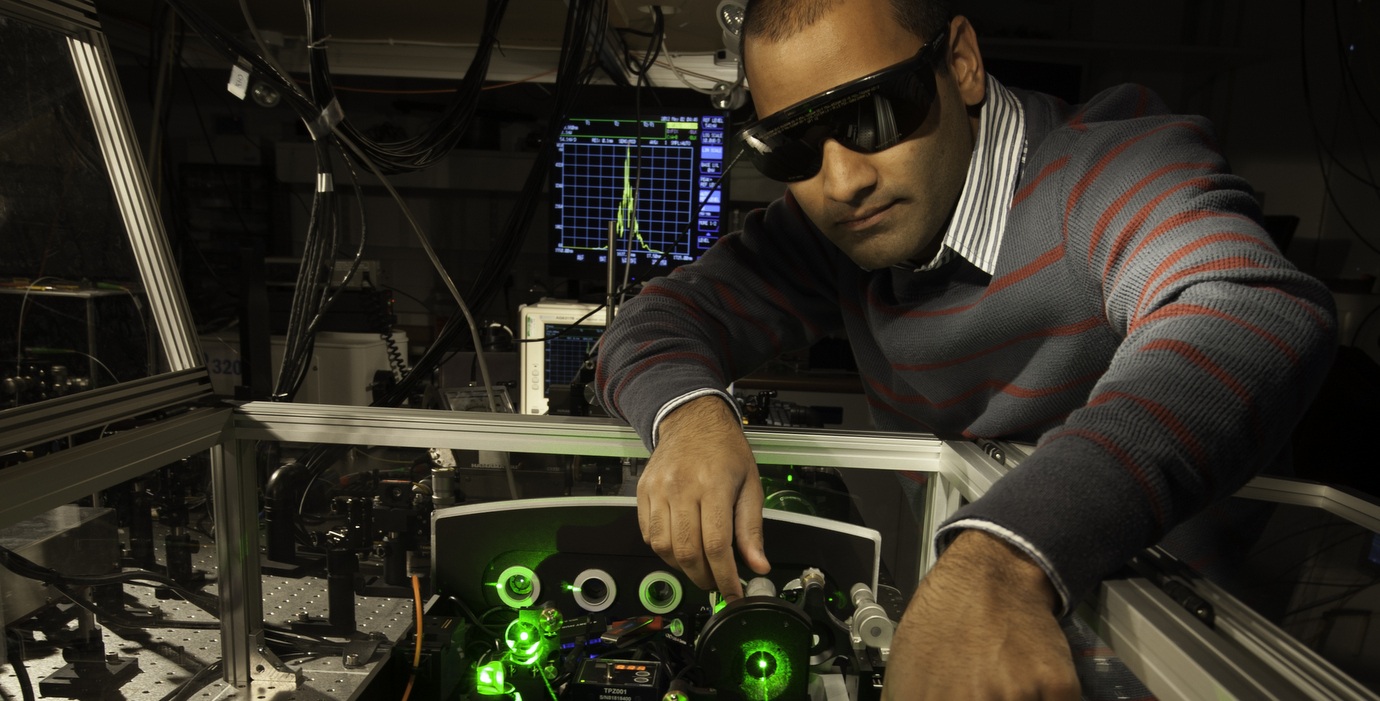
Global Research Networks: Experiments in Internationalization
In the spring 2014 edition of the IIE Networker Magazine, WUN Executive Director, Professor John Hearn writes about the convenient and inconvenient truths of international higher education.

Devil in disguise: A small coral-eating worm may mean big trouble for reefs
New research from the University of Southampton has identified a coral-eating flatworm as a potential threat for coral reefs.

Launch of WUN collaborative MOOC on globalisation of higher education and research
As we preluded in October last year, WUN stepped into the world of MOOCs (Massive Open Online Courses) in late March with the launch of the Globalizing Higher Education and Research for the 'Knowledge Economy' course taught by Professor Susan Robertson of the University of Brsitol and Professor Kris Olds of the University of Wisconsin-Madison.

Unexpected results in cancer drug trial
Research from the University of Southampton has shown a drug, used in combination with chemotherapy to treat advanced colorectal cancer, is not effective in some settings, and indeed may result in more rapid cancer progression.

Southampton Professor wins prestigious award
Professor Cyrus Cooper of the University of Southampton has been awarded The 2014 ESCEO-IOF Servier Pierre D. Delmas Prize for his distinguished body of work in the epidemiology of musculoskeletal disorders.

Assessing how people adapt to climate change in deltas: case studies in Asia and Africa
Researchers from the University of Southampton are leading an international project to understand the effect of climate change on people living in deltas in South Asia and Africa, and how they respond.

Damaging effects of biochar on plant defence casts doubt on geoengineering claims
In the first study of its kind, research undertaken at the University of Southampton has cast significant doubt over the use of biochar to alleviate climate change.

University of Southampton announces UK’s first Regius Professorship in Computer Science
The University of Southampton is pleased to announce that Nick Jennings, Professor of Computer Science and a Chief Scientific Advisor to the UK Government, has been appointed as its first Regius Professor in Computer Science.

Leading minds gather in Cape Town to explore threats and solutions at the intersection of public health and climate change
Scientists, practitioners, and representatives of community organisations, government bodies and industry will gather in Cape Town on Saturday 29 and Sunday 30 March to discuss the challenges that lie at the intersection of public health and climate change and to discuss solutions that will have meaningful impact, particularly in Africa.

Early pregnancy alcohol linked to heightened premature and small baby risk
Research by the University of Leeds has linked drinking alcohol during the first three months of pregnancy to a higher risk of having a premature or unexpectedly small baby.

Climate change will reduce crop yields sooner than we thought
A study led by the University of Leeds has shown that global warming of only 2°C will be detrimental to crops in temperate and tropical regions, with reduced yields from the 2030s onwards.

David Willetts champions competition and collaboration in science and technology
In a keynote address to newly elected Fellows of the American Association for the Advancement of Science in Chicago, the Rt Hon David Willetts encouraged a spirit of competition and collaboration in science and technology, and underlined the importance of researcher mobility.

Blood test may help predict whether a child will become obese
Scientists have found that a simple blood test, which can read DNA, could be used to predict obesity levels in children.
Researchers at the Universities of Southampton, Exeter and Plymouth used the test to assess the levels of epigenetic switches in the PGC1a gene – a gene that regulates fat storage in the body.

Children’s activity levels reflect the activity levels of their mothers
The study, from the Medical Research Council Units and the Universities of Southampton and Cambridge, showed that mothers’ activity levels differed depending on her level of education, number of children and weekly working hours. It also showed that many mothers were not meeting the government’s recommended amount of physical activity per week.

Discover the ancient port of Rome with online learning from the University of Southampton
The University of Southampton has launched a Massive Open Online Course (MOOC), giving people the opportunity to explore Portus, the ancient port of Rome.

Southampton scientist to help design and build the world’s largest telescope
Professor Anna Scaife, from the University’s Astronomy Group, will join other UK scientists, engineers and industries in supporting the design of the Square Kilometre Array (SKA), which will be the largest and most sensitive radio telescope in the world.

New study to help identify and treat silent disease
A new study to identify patients with undiagnosed lung disease is to begin in West Hampshire.

New wireless network to revolutionise soil testing
A University of Southampton researcher has helped to develop a wireless network of sensors that is set to revolutionise soil-based salinity measuring.

Lost voices of the Holocaust: rediscovering music from a forgotten world
Music by a Jewish victim of the Nazis feared lost forever is being performed for the first time since the Holocaust, at the University of Leeds Clothworkers Concert Hall on Friday, March 14. Chad Gadya (One Little Goat), by Dovid Ajzensztadt, was uncovered in South Africa by a University of Leeds researcher.

SMMI teams with Singapore to transform marine and offshore research
The Southampton Marine and Maritime Institute (SMMI) at the University of Southampton has officially launched a joint laboratory in Singapore with the Institute of High Performance Computing (IHPC) at A*STAR, Singapore’s Agency for Science, Technology and Research, to focus on maritime and offshore engineering research and development.

Livestock can produce food that is better for the people and the planet
WUN Global Platforms Researchers publish comment piece in ‘Nature’

Southampton professor takes lead role with Food Standards Agency
Professor Guy Poppy, of the University of Southampton and one of the UK’s leading experts on food systems and food security, has been appointed by the Food Standards Agency (FSA) as its Chief Scientific Adviser.

‘Big Data’ research at the University of Leeds
Leeds’ Pro-Vice-Chancellor for Research and Innovation, Professor David Hogg, says the University is poised to be a leader in Big Data research.

University of Leeds to be a leader in data analytics and research
Two multi-million pound grants will make the University of Leeds a major centre for ‘Big Data’ analysis – and a national resource that can be used by academics.

Global launch of online Masters degree in English Language Teaching
An online Masters degree in English Language Teaching is being launched worldwide thanks to a collaboration between the University of Southampton and the British Council.

Scientists highlight the importance of nutrients for coral reefs
A new publication from researchers at the University of Southampton and the National Oceanography Centre, Southampton highlights the importance of nutrients for coral reef survival.

WUN Newsletter – February 2014
WUN Newsletter – February 2014

University of Twente’s Tissue Regeneration research group moving to Maastricht
University of Twente’s Tissue Regeneration research group, led by Prof. Clemens van Blitterswijk, moving to Maastricht

First ‘university professor’ appointed at Maastricht University
First ‘university professor’, professor of Nanobiology Peter Peters, appointed at Maastricht University

Penn State announces new President

Pennsylvania State University, one of WUN's founding members, announced on Monday a new President to take the helm from 12 May, 2014.
Eric J. Barron will become Penn State's 18th President, taking over from Rodney Erickson who steps down after a two-and-a half-year tenure.

Better training needed to help new teachers promote healthy lifestyles to children
Research by the University of Southampton suggests new teachers could be better trained to help them promote health and lifestyle issues to children in schools.

New alternate-reality game the first to explore digital provenance
Researchers from Electronics and Computer Science at the University of Southampton in collaboration with the Mixed Reality Lab at the University of Nottingham are examining how people can relate to the concept of digital provenance of objects through the free ‘The Apocalypse of MoP’ ARG.

The ‘choosy uterus’: new insight into why embryos do not implant
Fertility experts at the University of Southampton and University of Warwick have found new insights into why some fertilized eggs can embed in a uterus and why some do not.

Sir Alan Langlands to be new Chair of N8 Research Partnership
The Vice-Chancellor of the University of Leeds, Sir Alan Langlands, has been appointed as the new Chair of the N8 Research Partnership.

A new burst of life to wine production
Scientists from the University of Western Australia and University of Leeds have teamed up to explore the process responsible for the ability of the vine to develop buds that can not only survive winter but can make the rapid transition to new life once the good weather returns.

Climate change threatens to cause trillions in damage to world’s coastal regions if they do not adapt to sea-level rise
The study, led by the Berlin-based think-tank Global Climate Forum (GCF) and involving the University of Southampton, presents, for the first time, comprehensive global simulation results on future flood damages to buildings and infrastructure in coastal flood plains.

Professor Philip Nelson appointed Chief Executive of leading research council
Minister for Universities and Science David Willetts has announced the appointment of Professor Philip Nelson as chief executive and deputy chair of the Engineering and Physical Sciences Research Council (EPSRC).

University of Southampton receives Regius Professorship
The University of Southampton has been awarded a rare professorship, bestowed by The Queen, to mark its excellence in the field of Computer Science.

WUN universities among the world’s best when it comes to global vision
Three WUN member universities have been recognised for their commitment and achievements in internationalisation in the Times Higher Ed’s ranking of the 25 most international universities in the world.

New research facility designed to improve patient care
Researchers in Southampton now have the benefit of a dedicated, brand new facility to develop and support pioneering research into patient safety and essential care.

Solent energy efficiency project aims to cut energy use in the home
The University of Southampton is part of an innovative £10m project, which has just received major funding to help reduce energy use in the home.

New marine research centre in Bergen
The Centre for Geobiology (CGB) is one of four Norwegian Centres of Excellence (SFF) at the University of Bergen (UiB). The centre is one of the world’s leading environments for basic research on the deep ocean layers.

How the purple and pink sunscreens of reef corals work
New research by the University of Southampton has found a mechanism as to how corals use their pink and purple hues as sunscreen to protect them against harmful sunlight.

Here comes the sun to lower your blood pressure
Research carried out at the Universities of Southampton and Edinburgh shows that sunlight alters levels of the small messenger molecule, nitric oxide (NO) in the skin and blood, reducing blood pressure.

New research to support the huge potential of tidal power
New research from a global group of scientists and engineers, including from the University of Southampton, has been published in a special issue journal of the Royal Society. The work is in support of tidal power, which has the potential to provide more than 20 per cent of the UK’s electricity demand.

Tough limits on global greenhouse gas emissions could reduce some climate change damage by two-thirds
Tough limits on global emissions of greenhouse gases could avoid between 20 and 65 per cent of the damaging effects of climate change by 2100, according to new research contributed to by Professor Robert Nicholls and Dr Sally Brown of the University of Southampton, published in the journal, Nature Climate Change.

Major funding boost to train the engineers and scientists of tomorrow
Postgraduate training at the University of Southampton in engineering and scientific fields, important to the UK’s economy, has received a major funding boost through three new Centres for Doctoral Training (CDTs).

Jellyfish experts show that increased blooms are a consequence of periodic global fluctuations
Scientists have cast doubt on the widely held perception that there has been a global increase in jellyfish.The results of the study, which includes lead co-author Dr Cathy Lucas, a marine biologist at the University of Southampton, appear in the latest issue of Proceedings of the National Academy of Science (PNAS manuscript # 2012-10920R).

More oesophageal cancer patients benefit from pre-op chemo than previously thought
Researchers from the University of Southampton looked at the records of over 200 patients** with a type of oesophageal cancer known as adenocarcinoma treated at Southampton General Hospital.

Antarctic fjords are diversity hotspots in a rapidly warming region
The team, led by Dr Laura Grange, a researcher at University of Southampton, and Professor Craig Smith of University of Hawai’i at Mānoa, document their discovery this month in the scientific journal PLOS ONE.

Arctic climate research receives major funding boost
What will happen to the Greenland Ice Sheet if the Arctic sea ice covers disappears? To answer this question, researchers at the University of Bergen and Uni Research are to receive between NOK 50 and 60 million from the European Research Council (ERC) over a five year period.